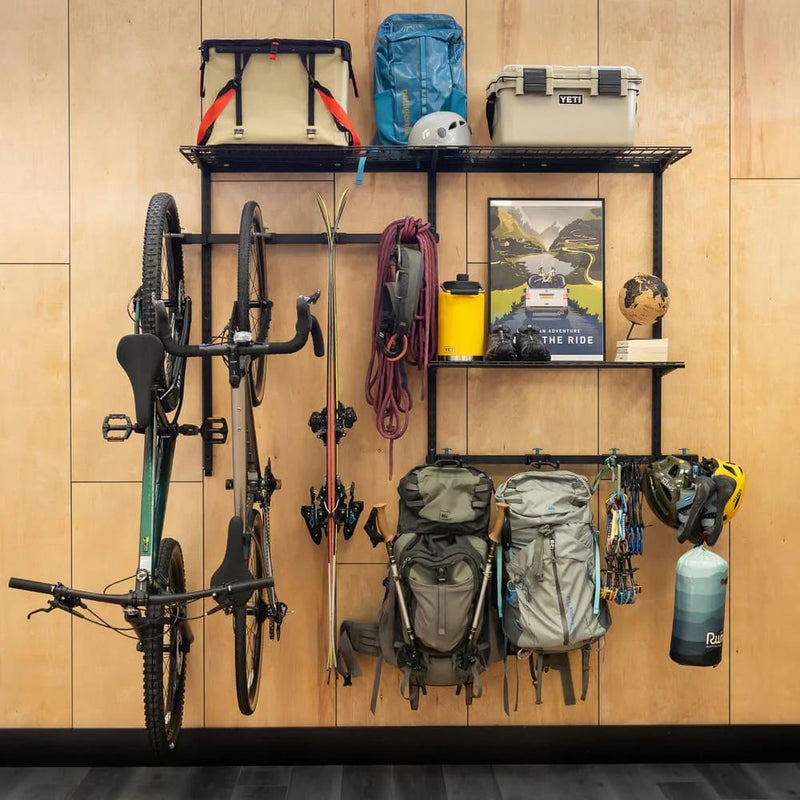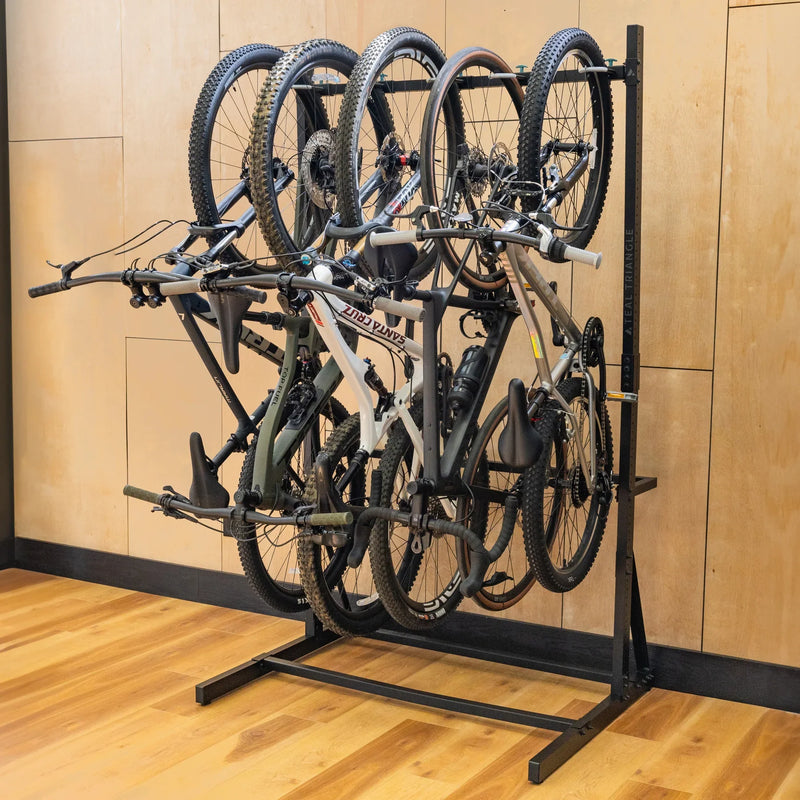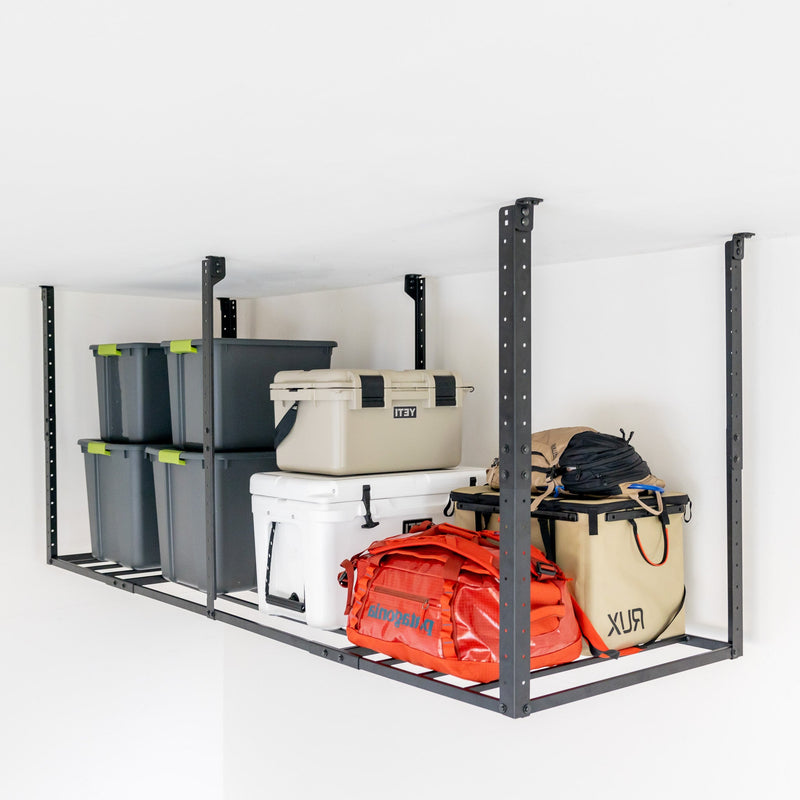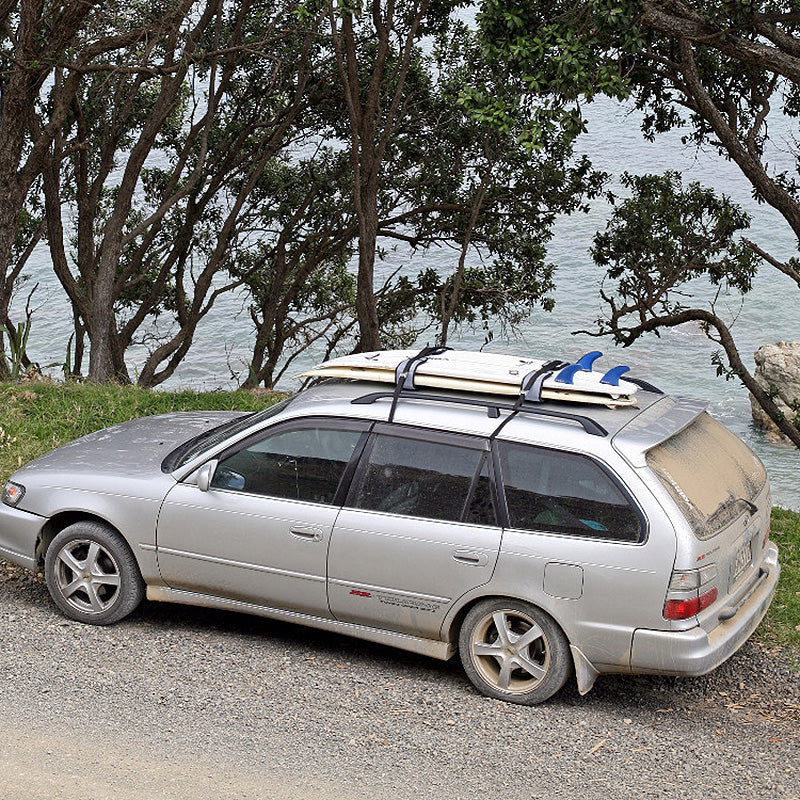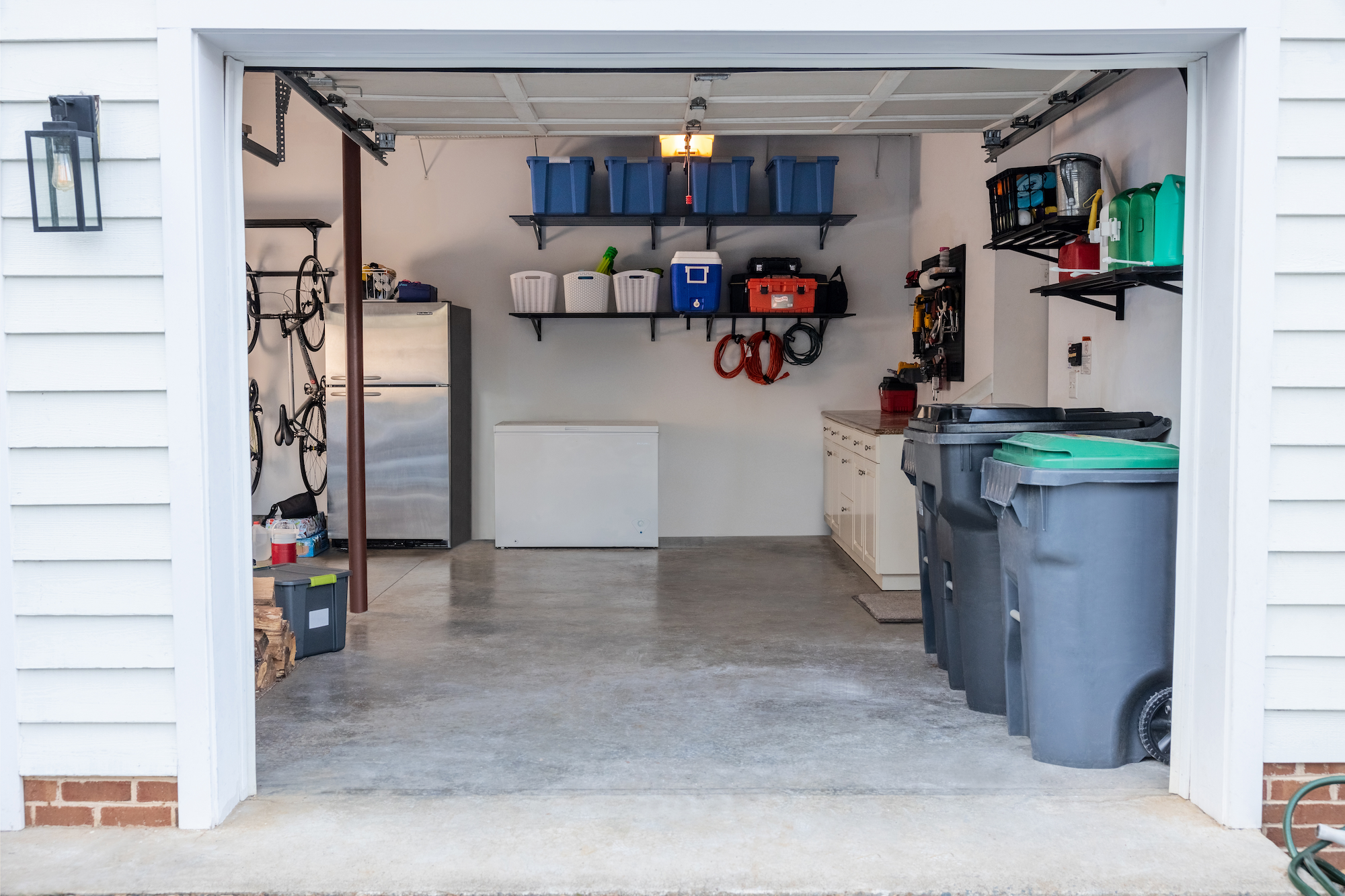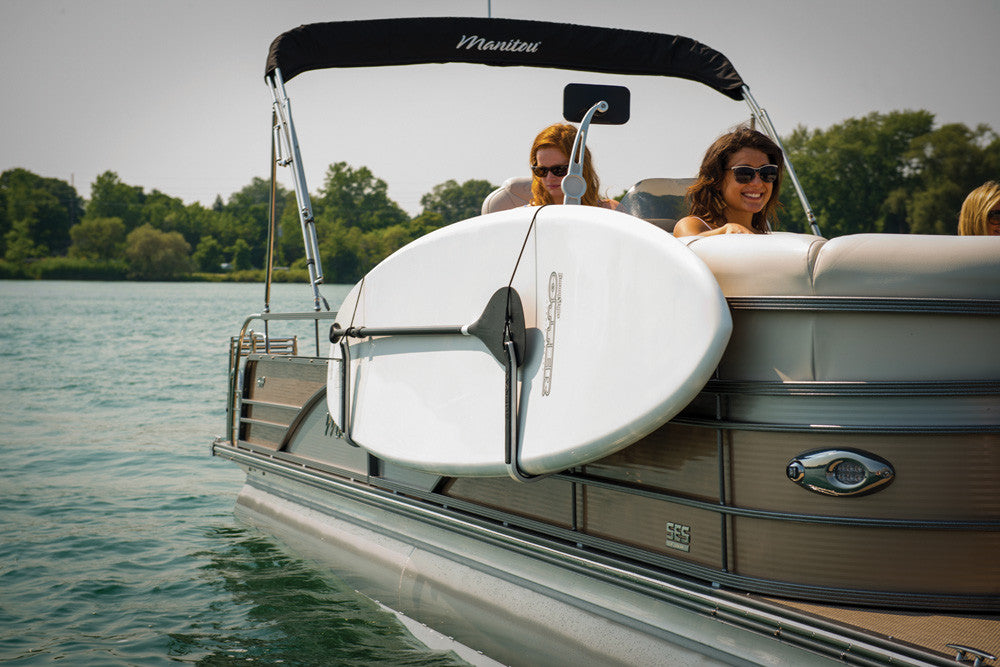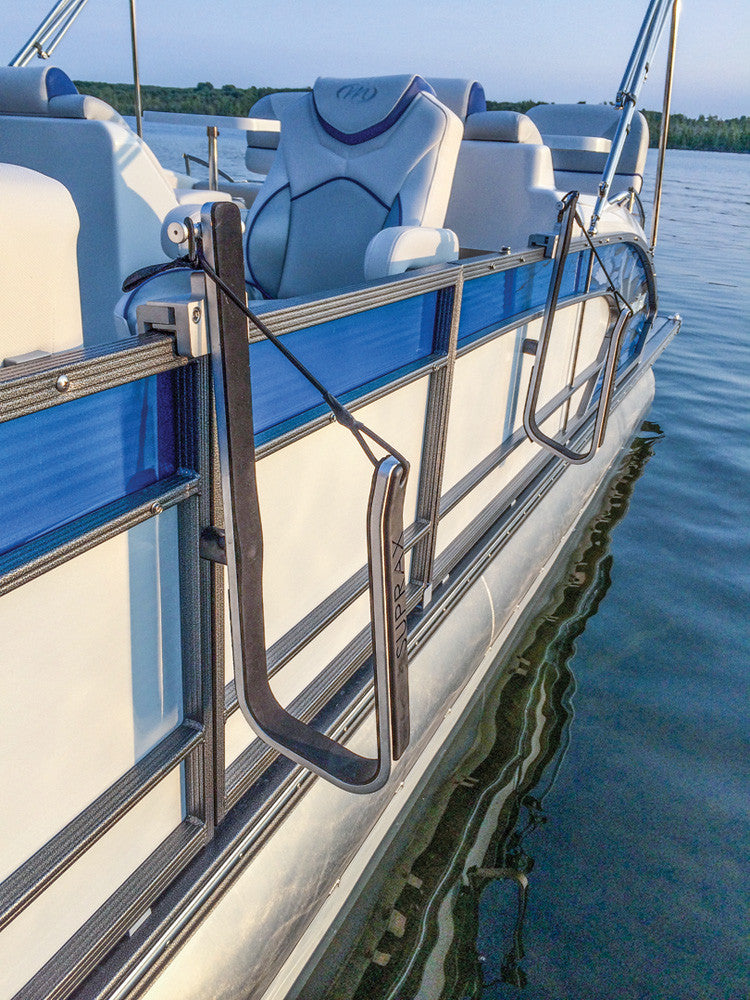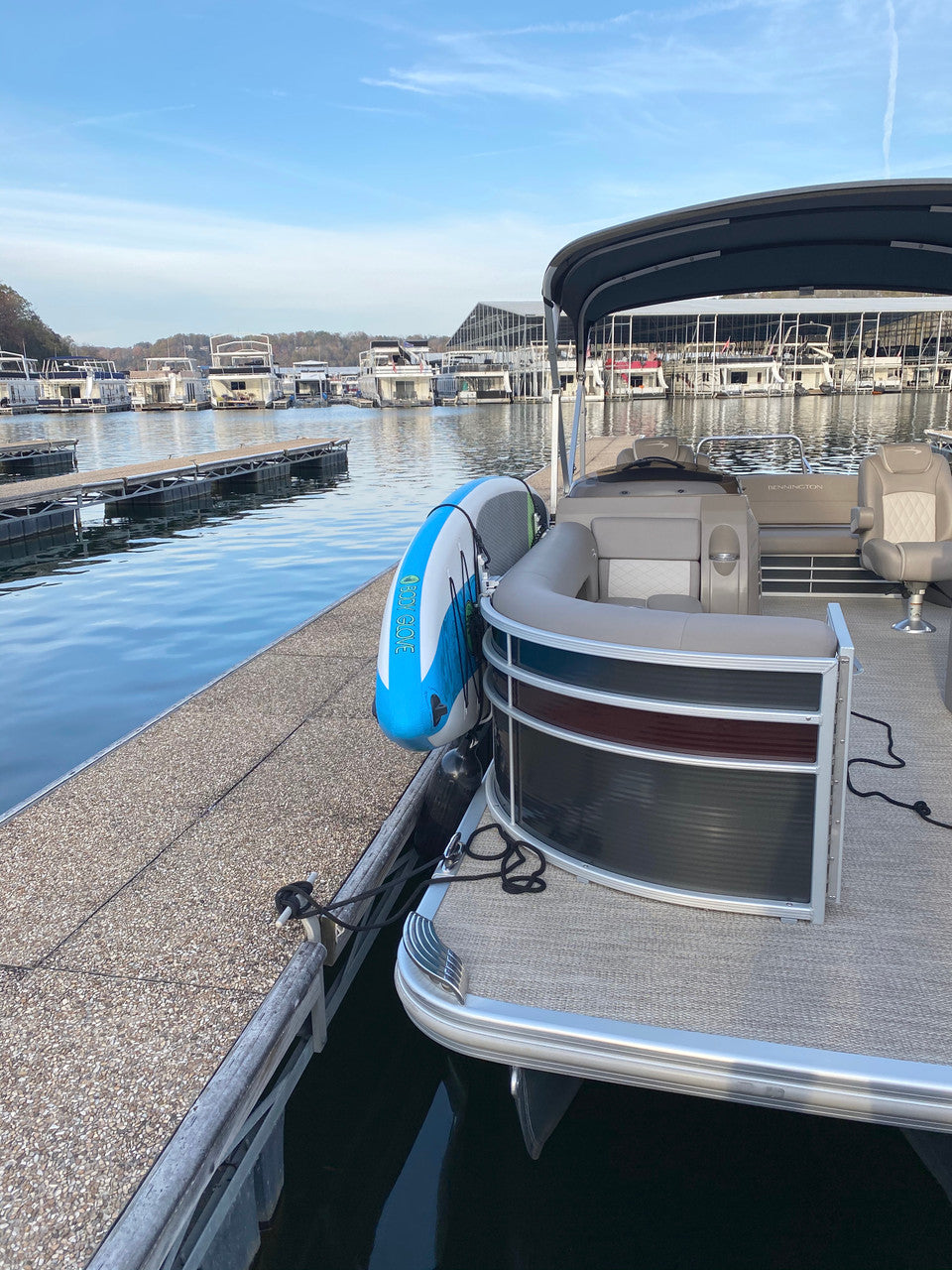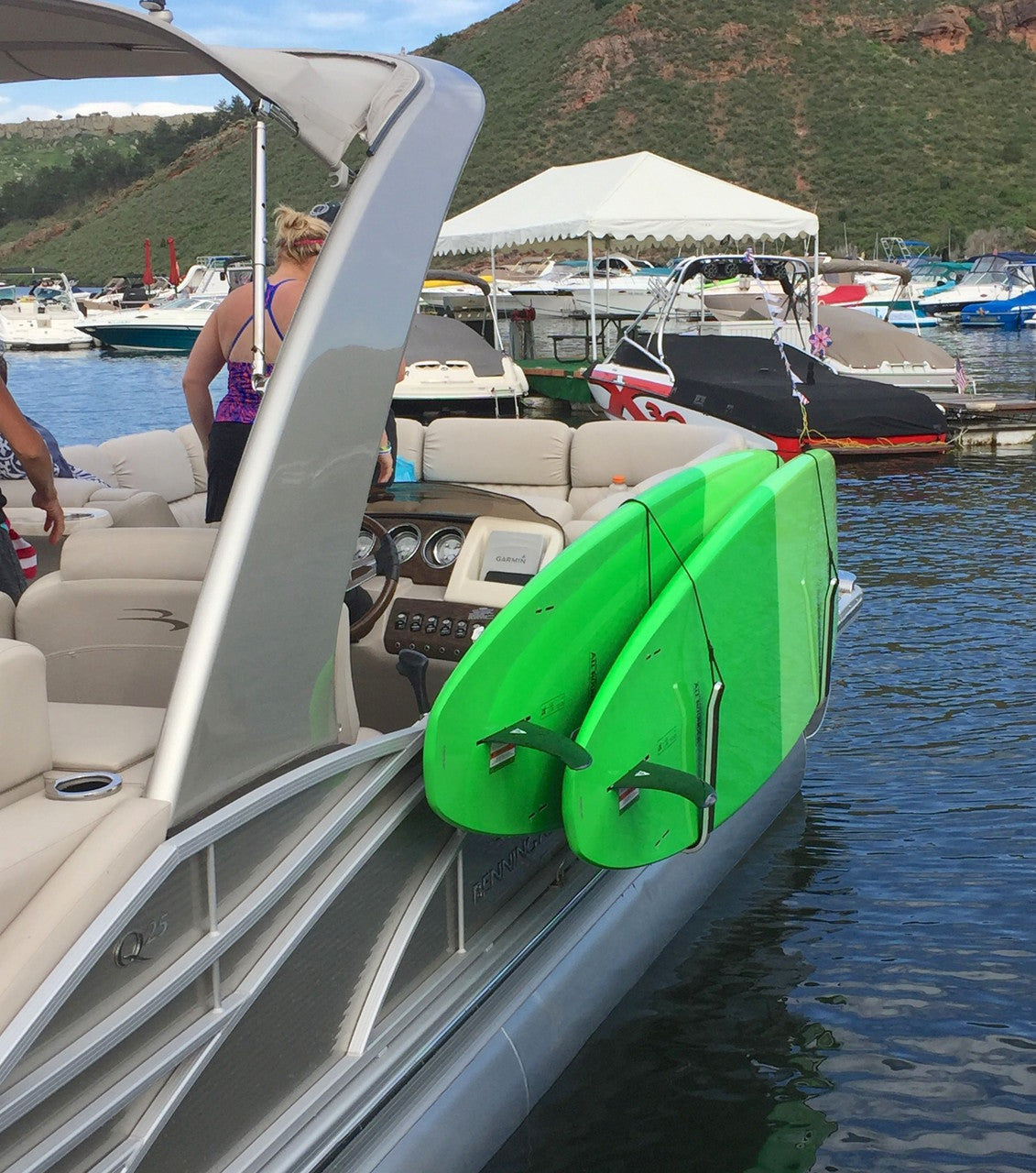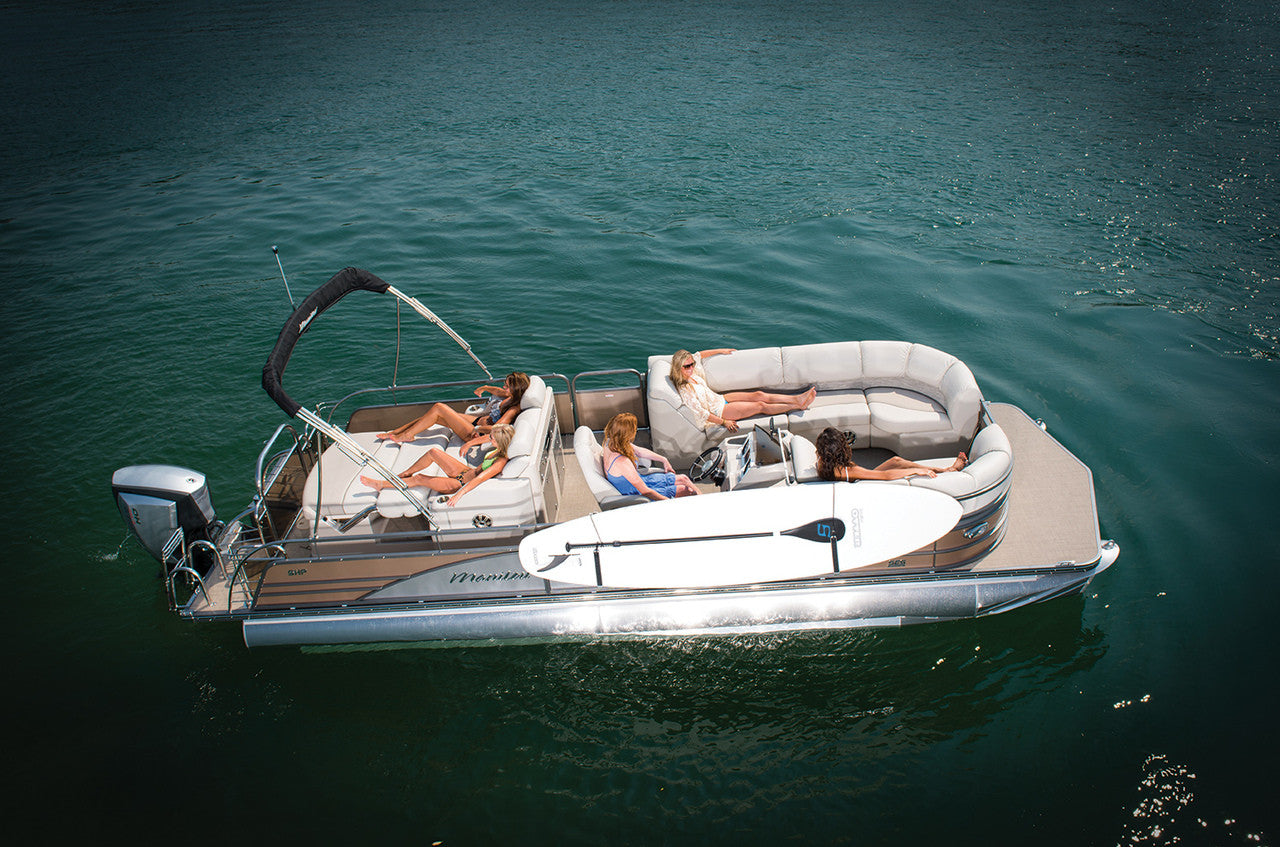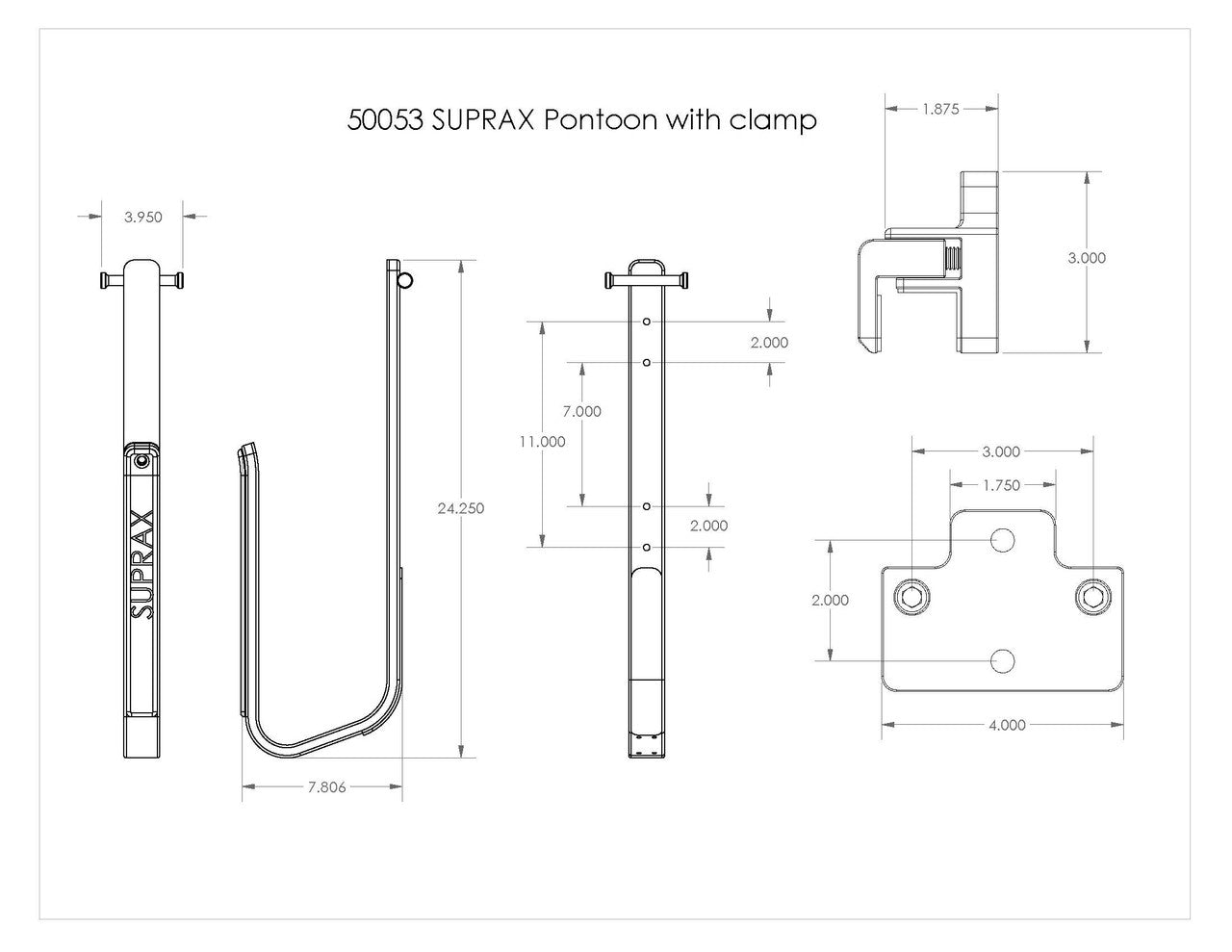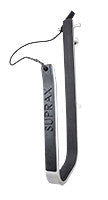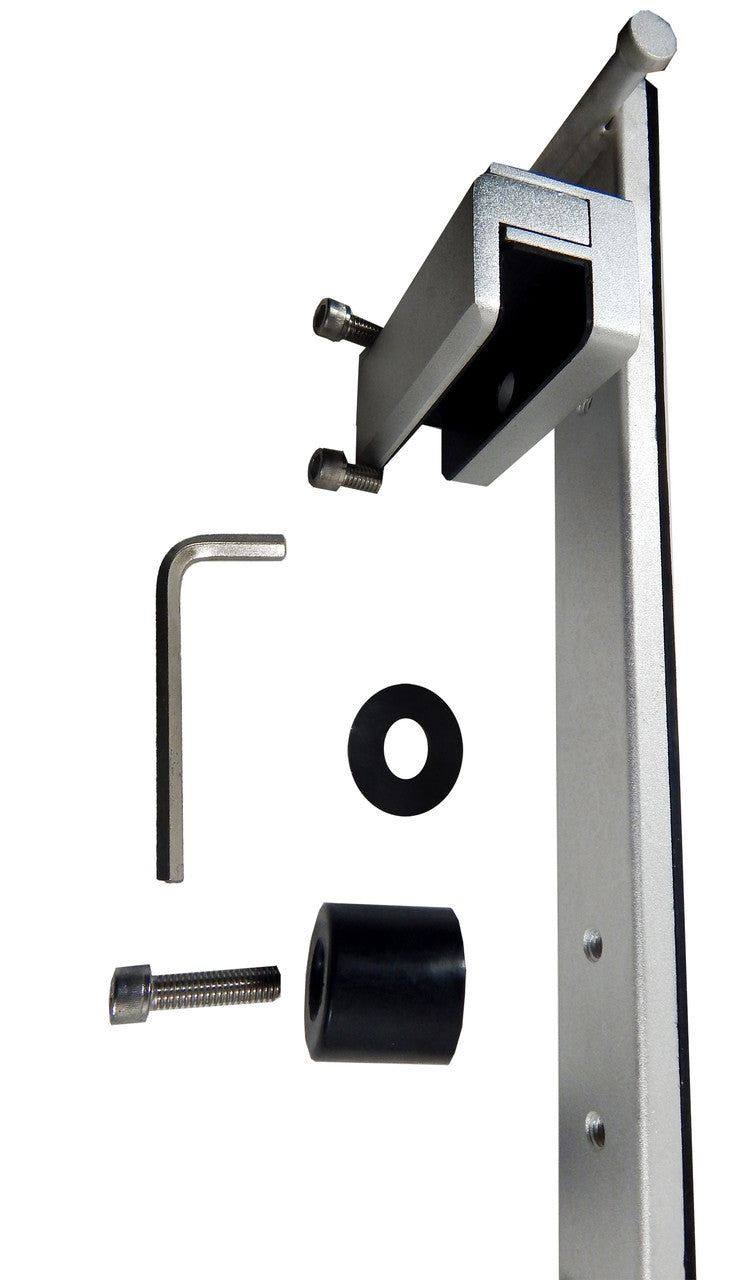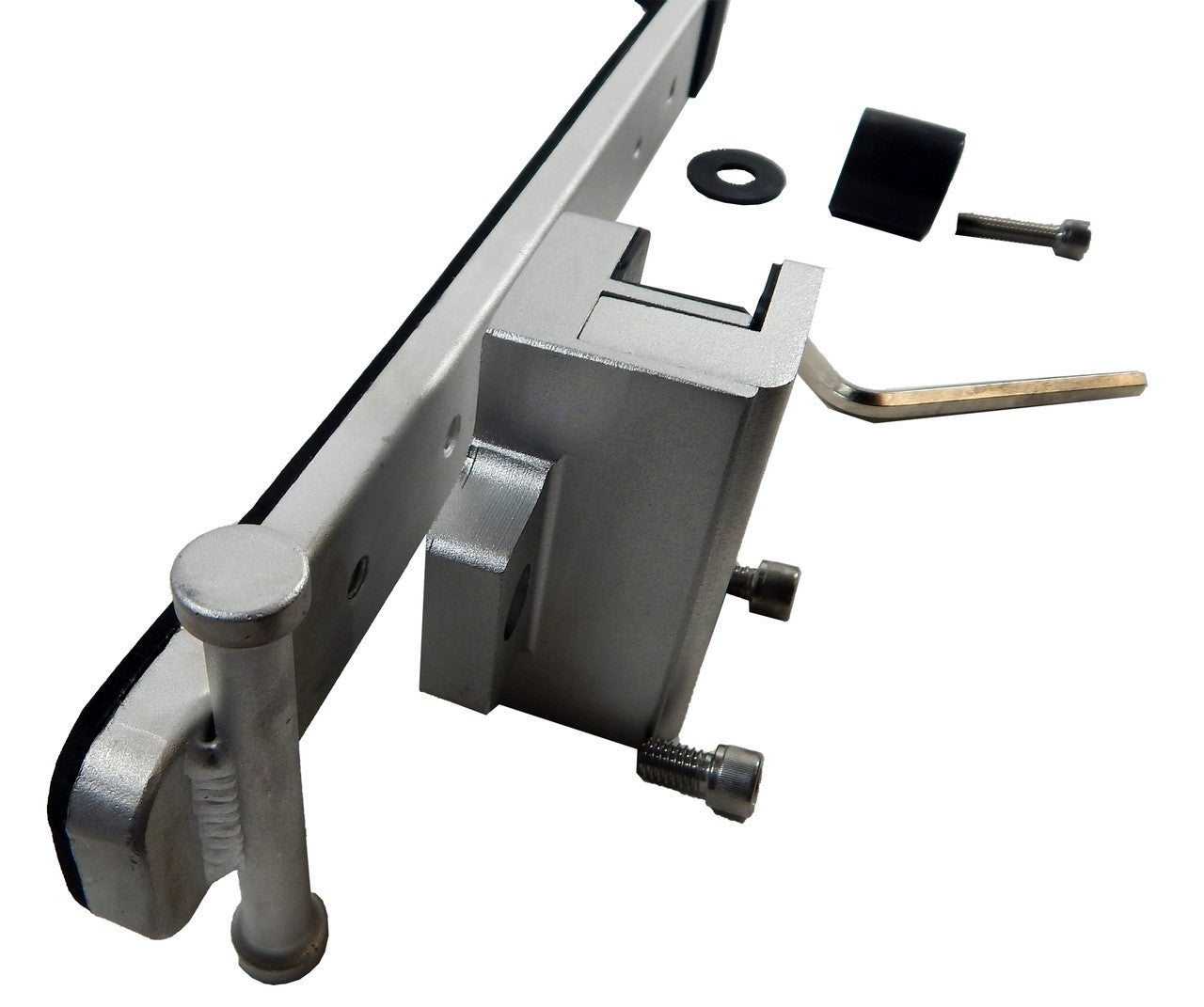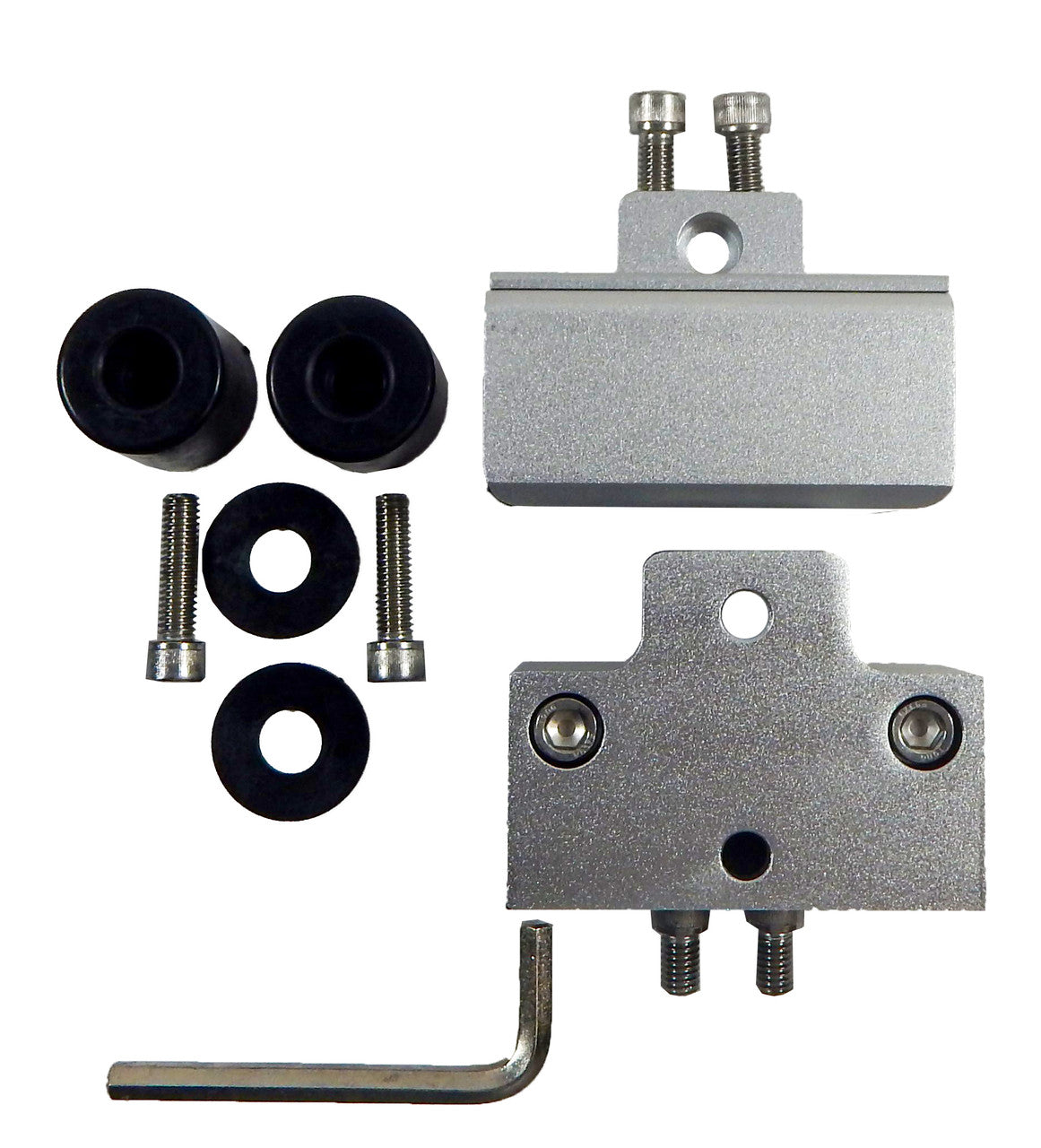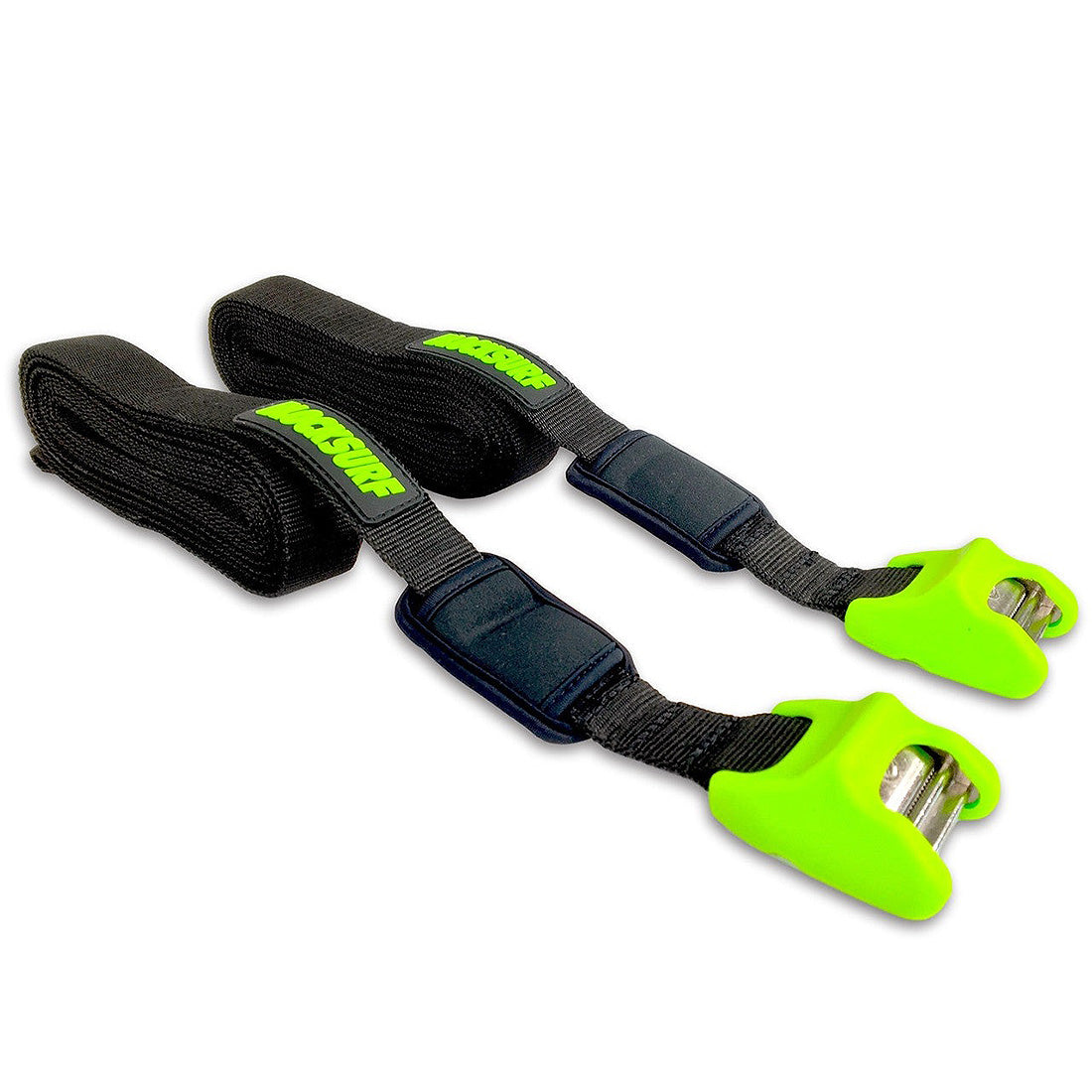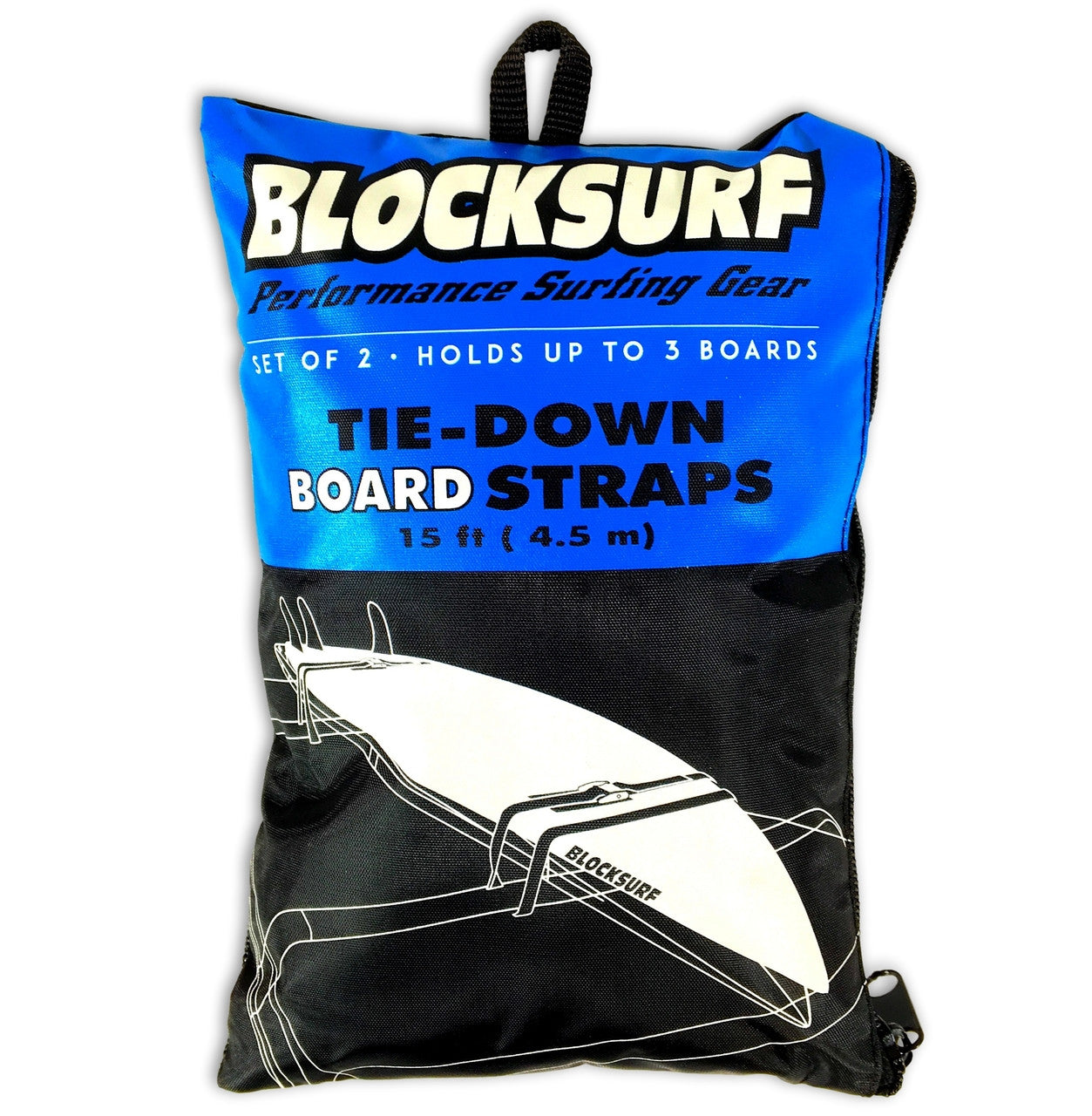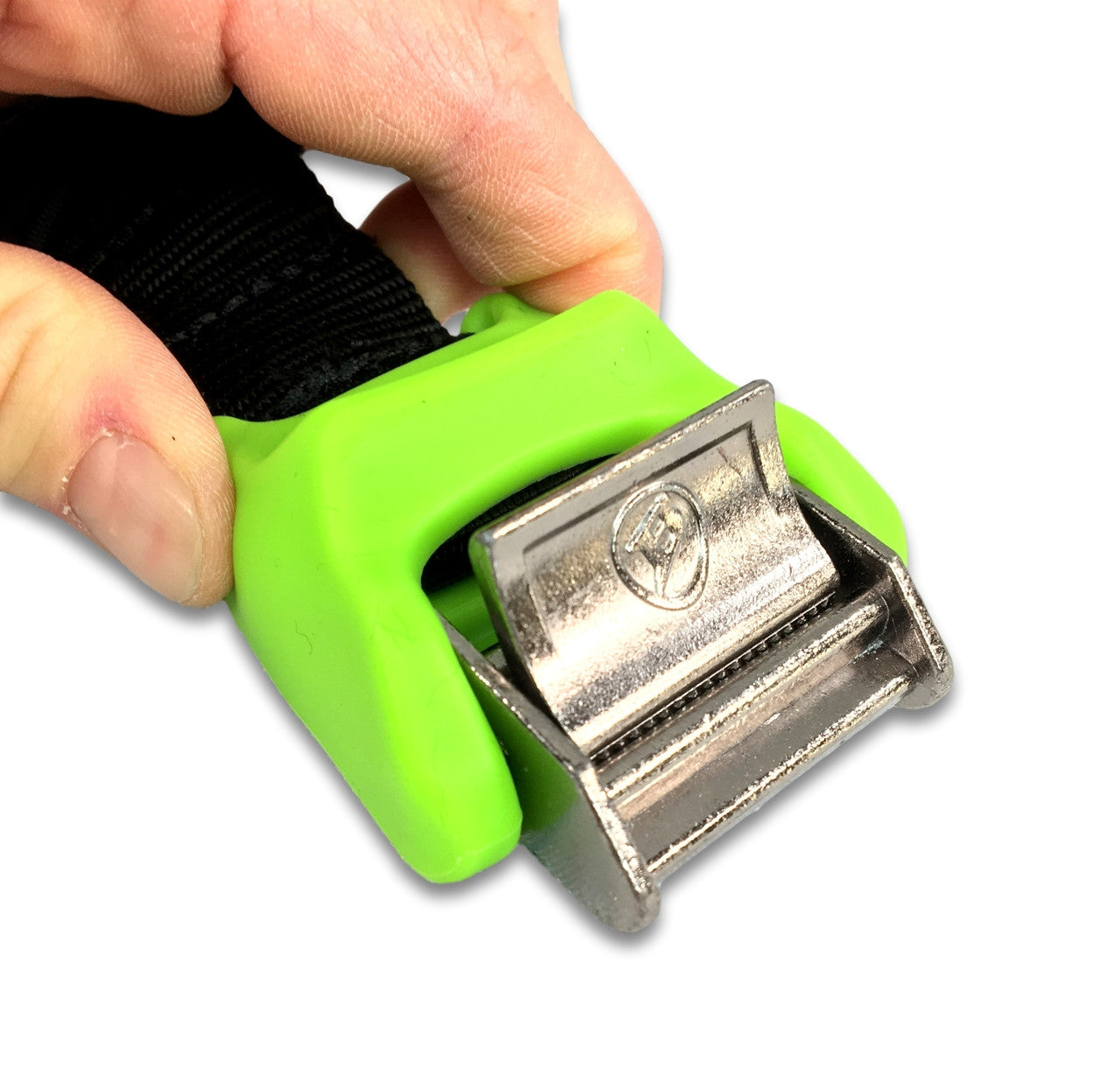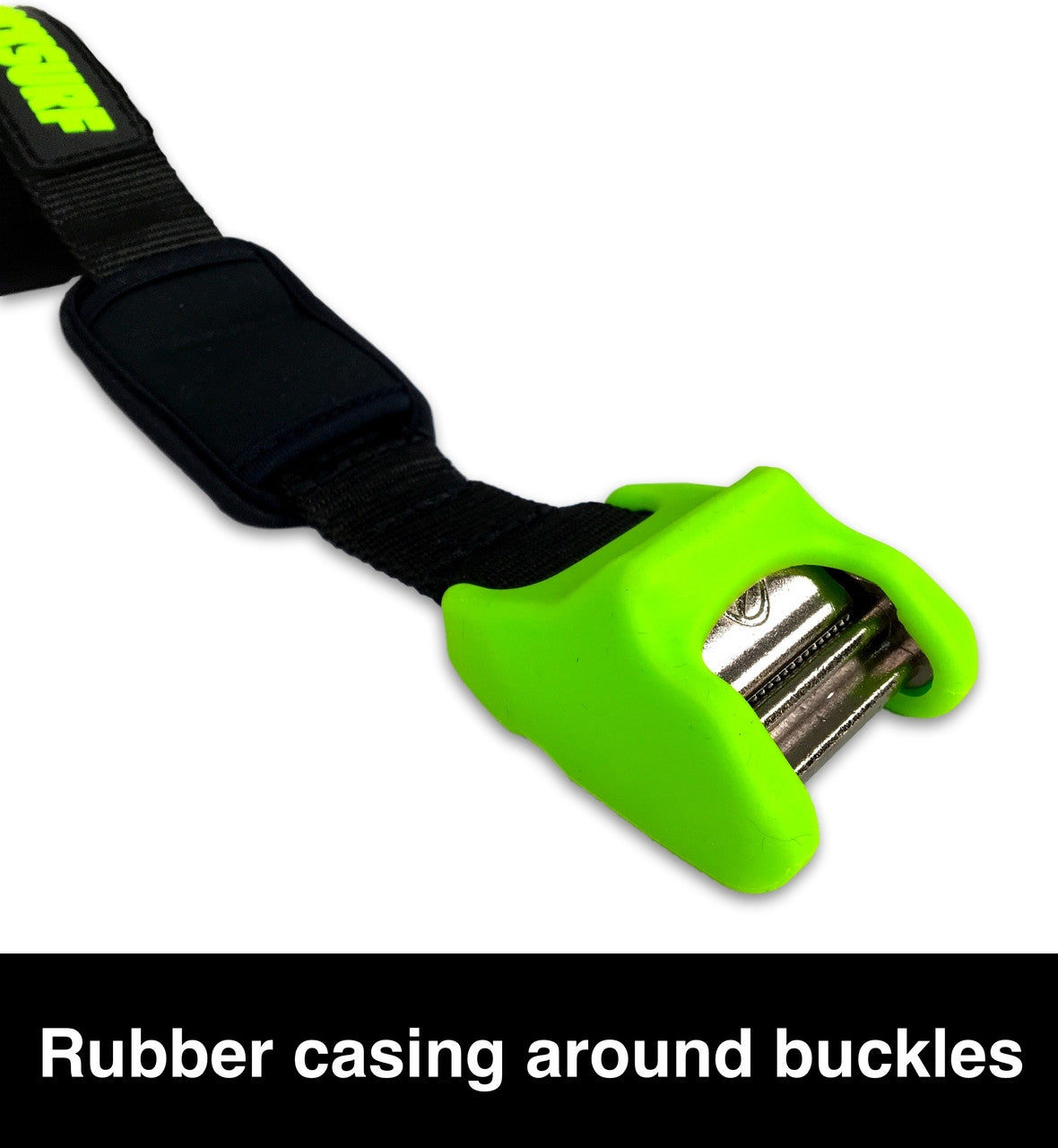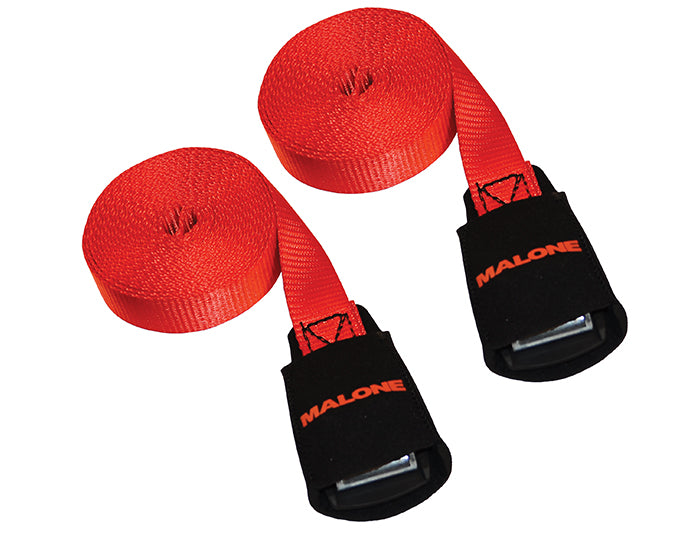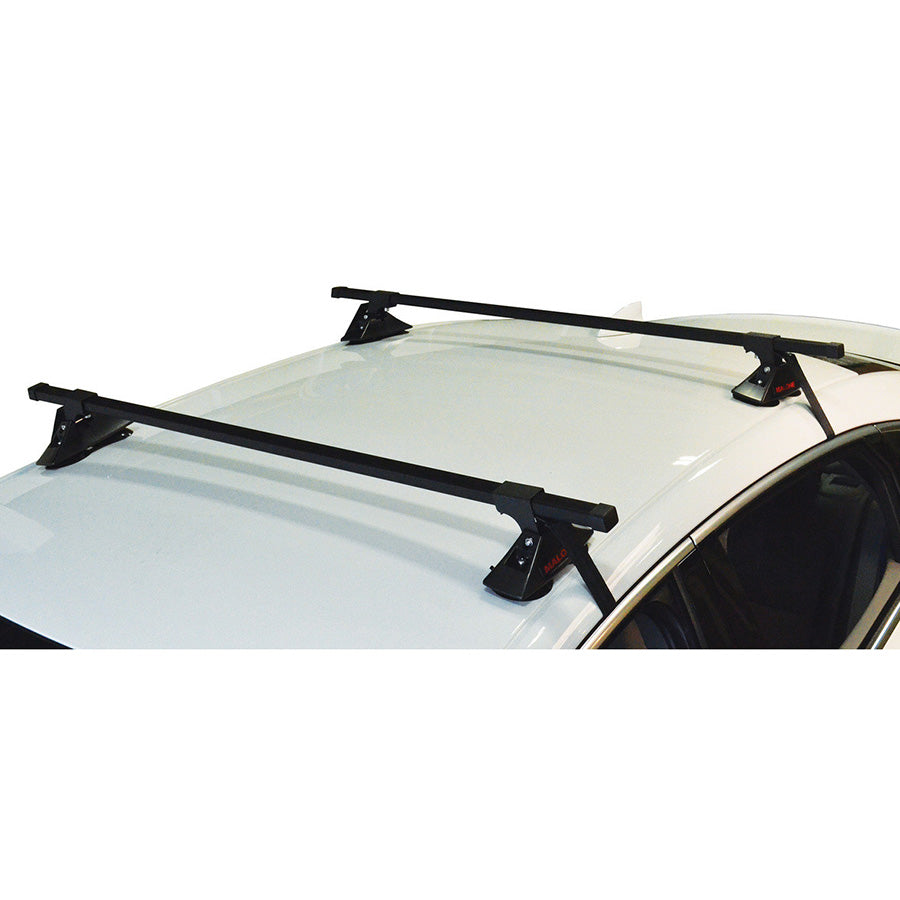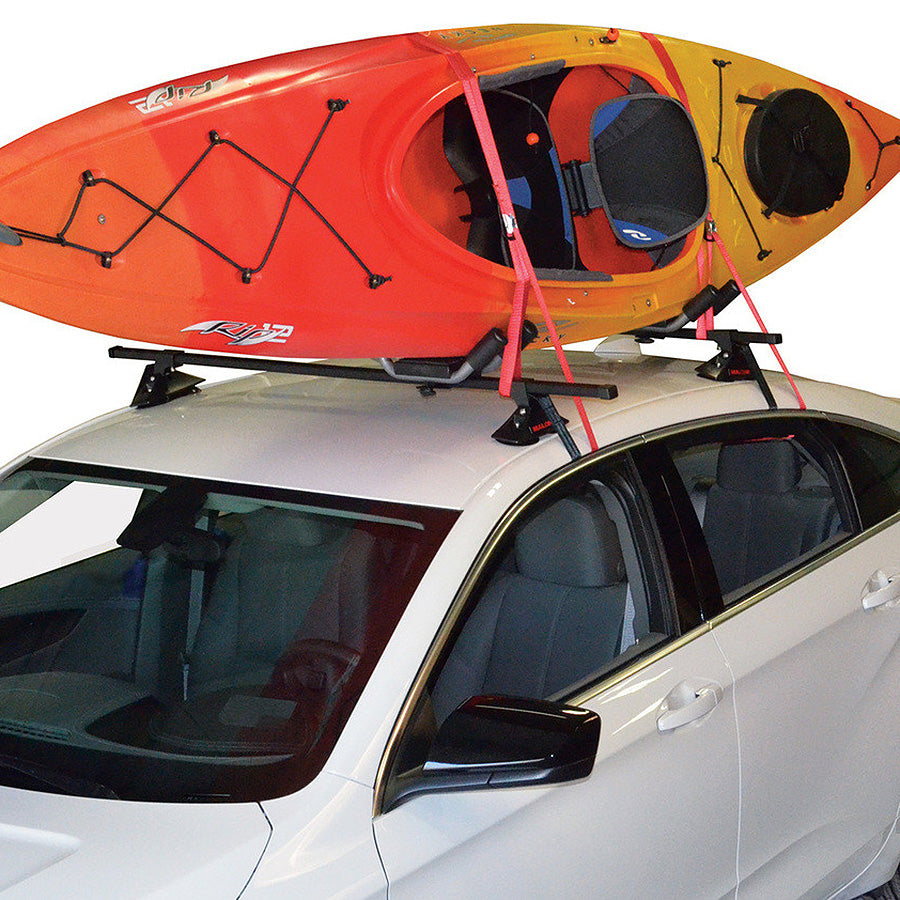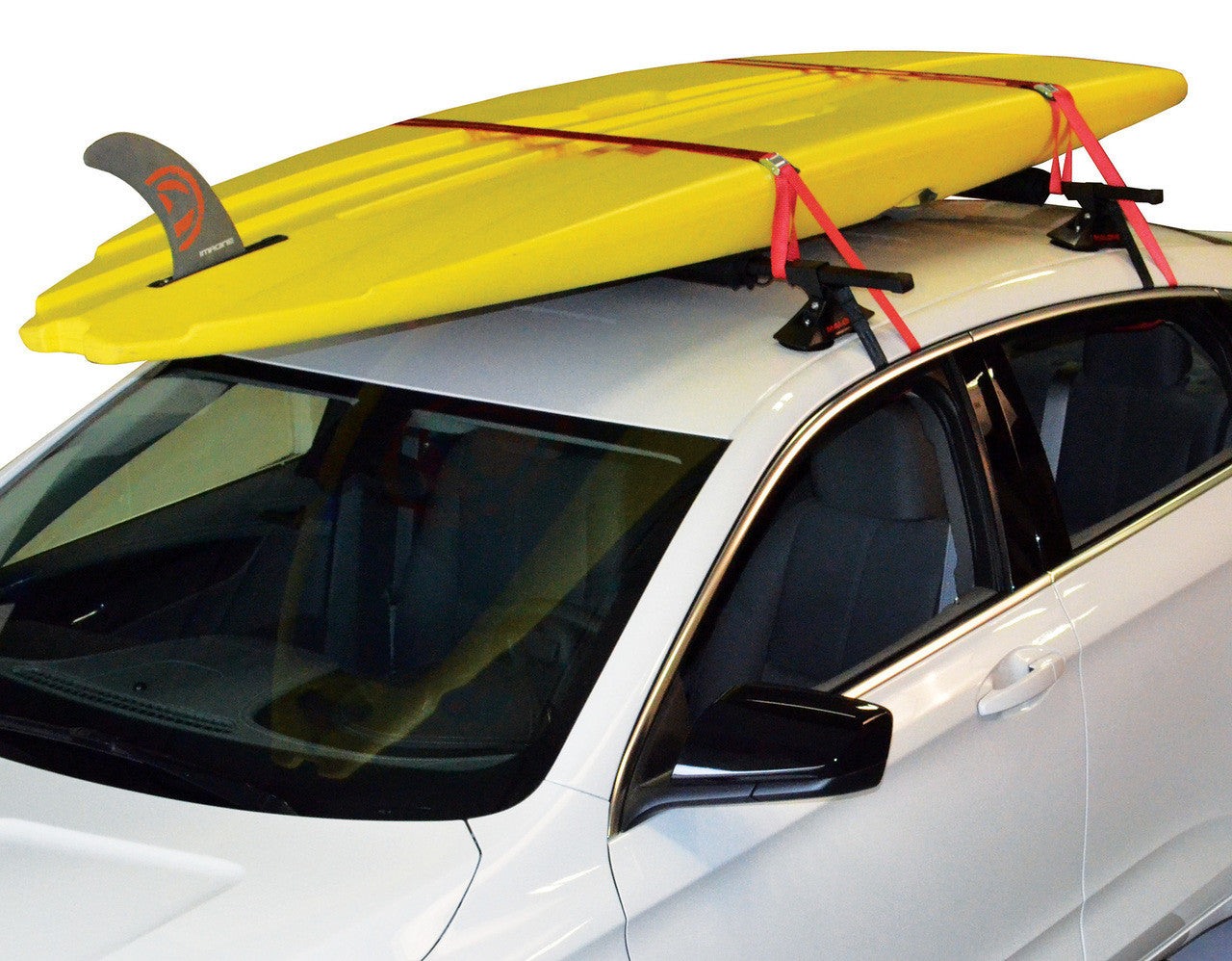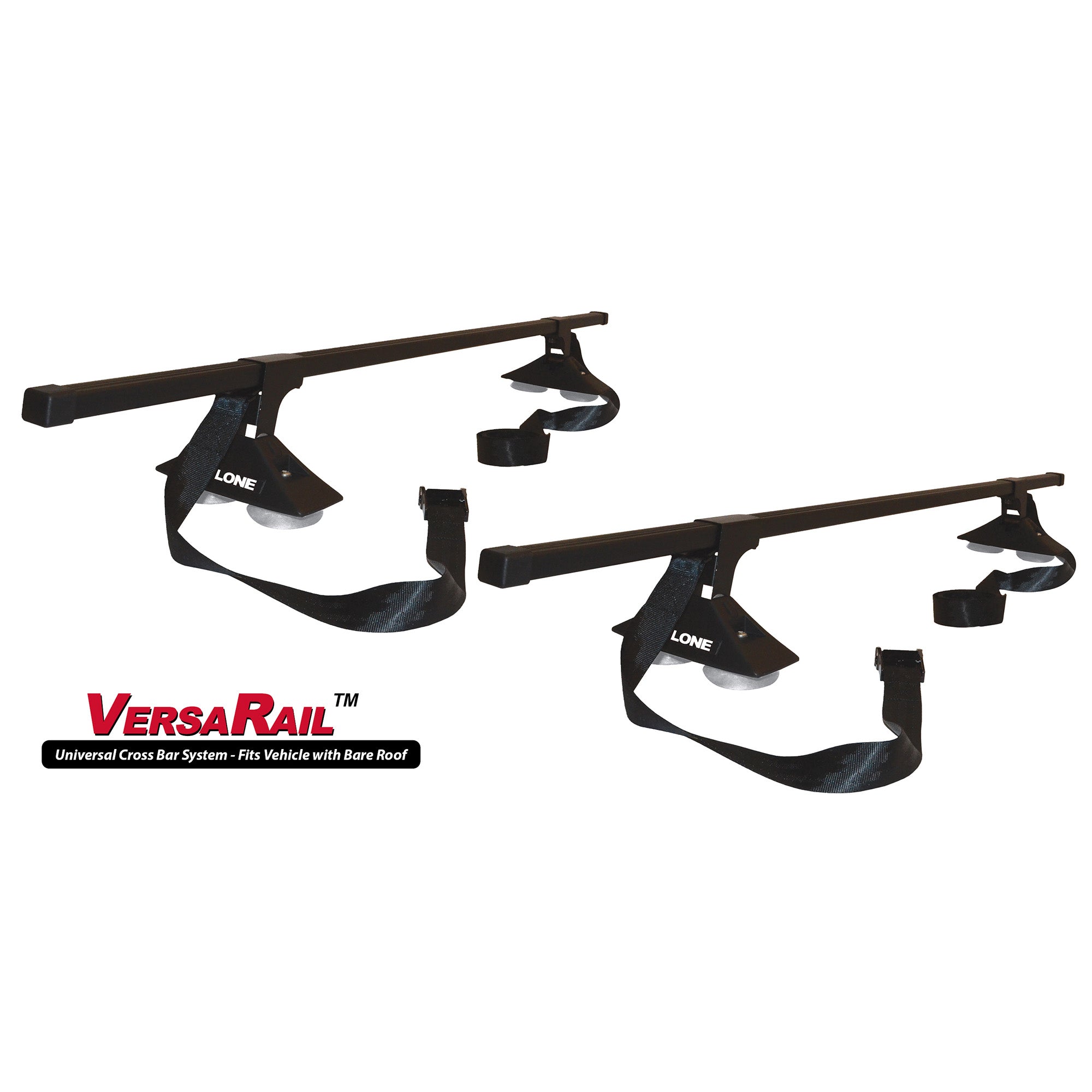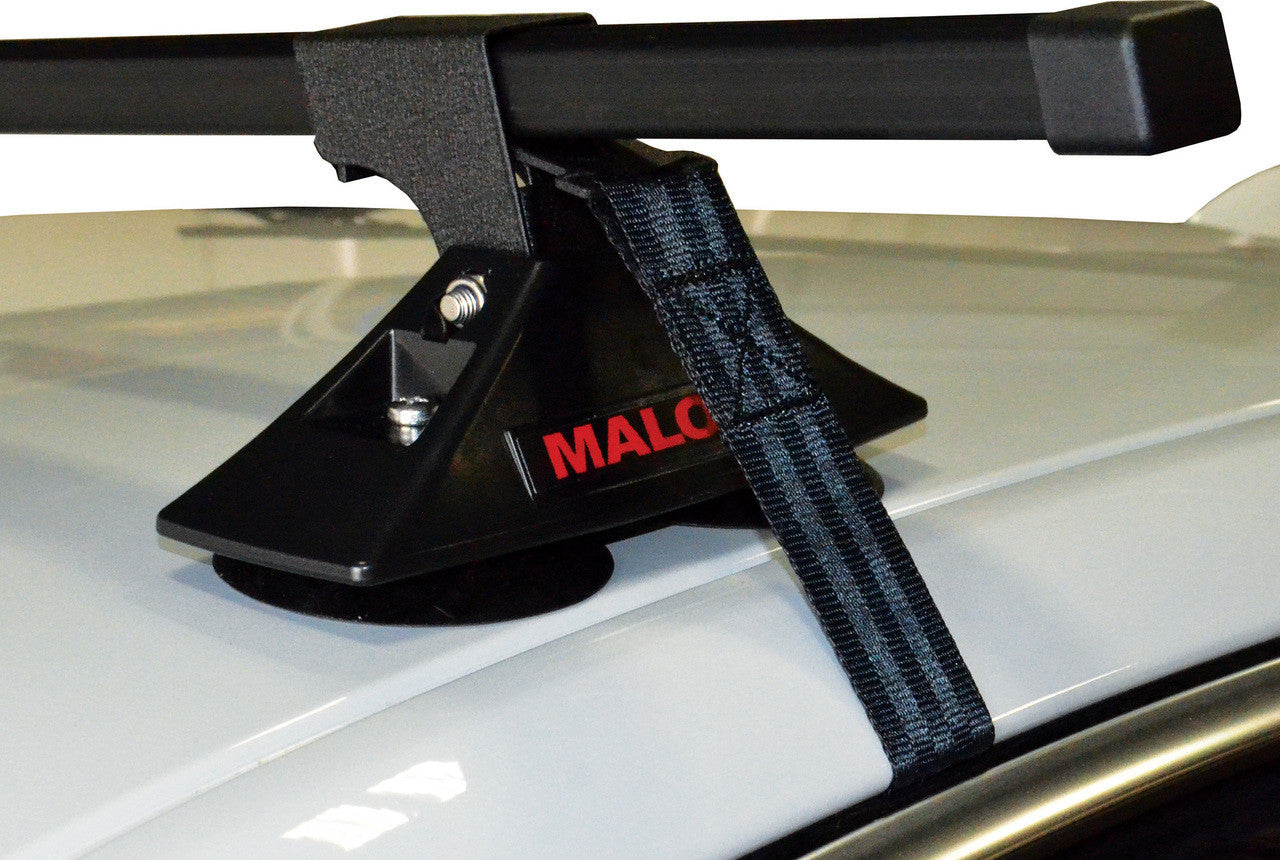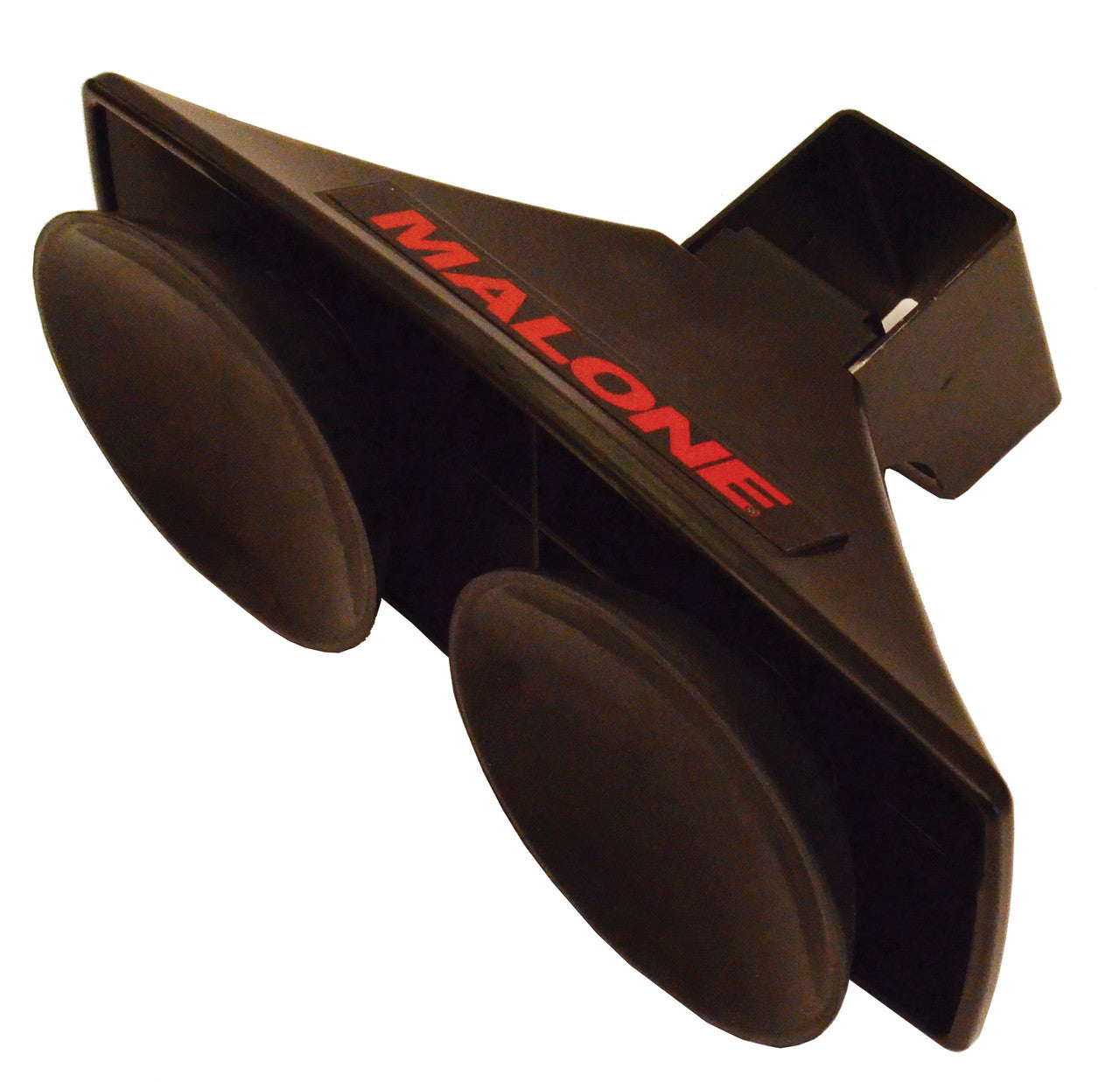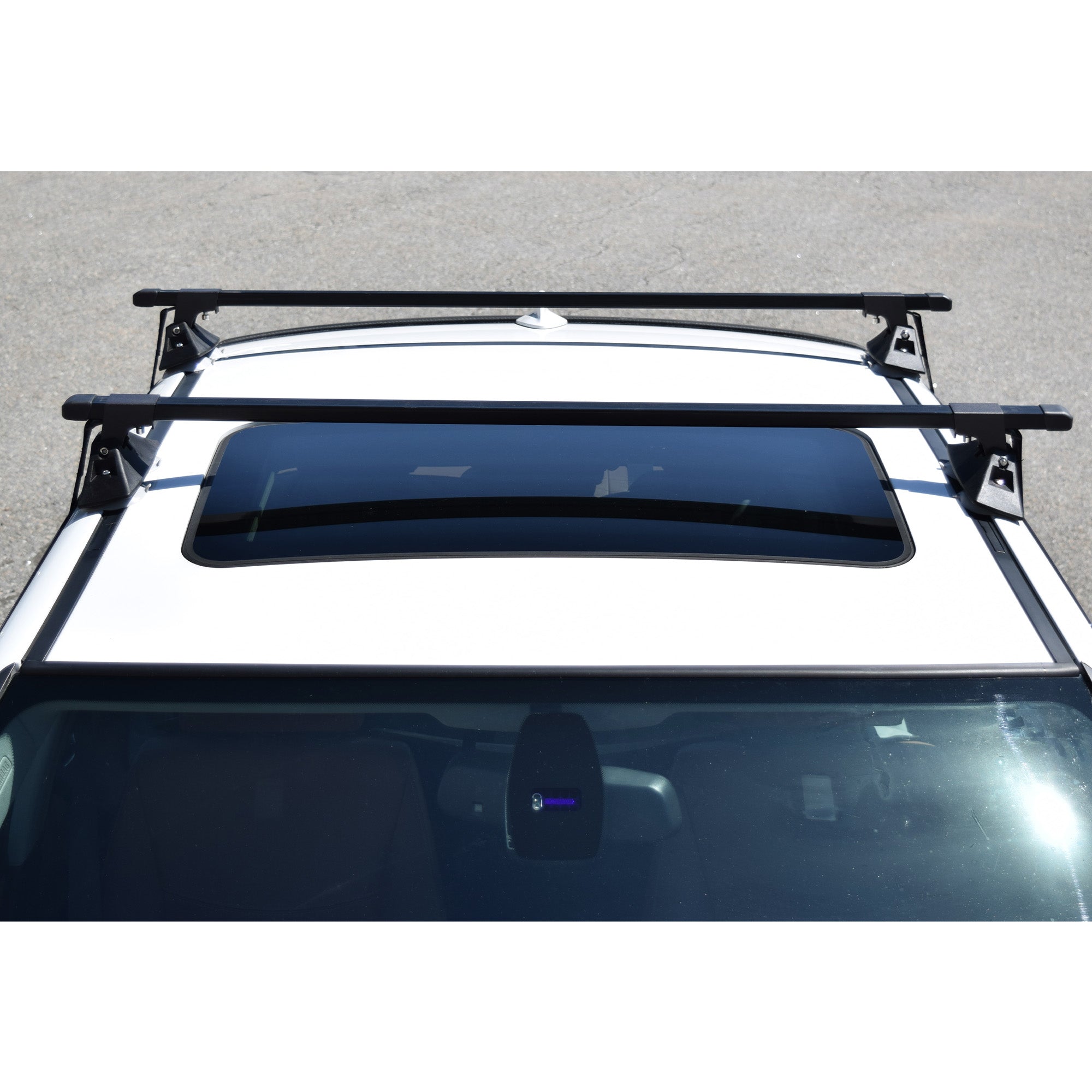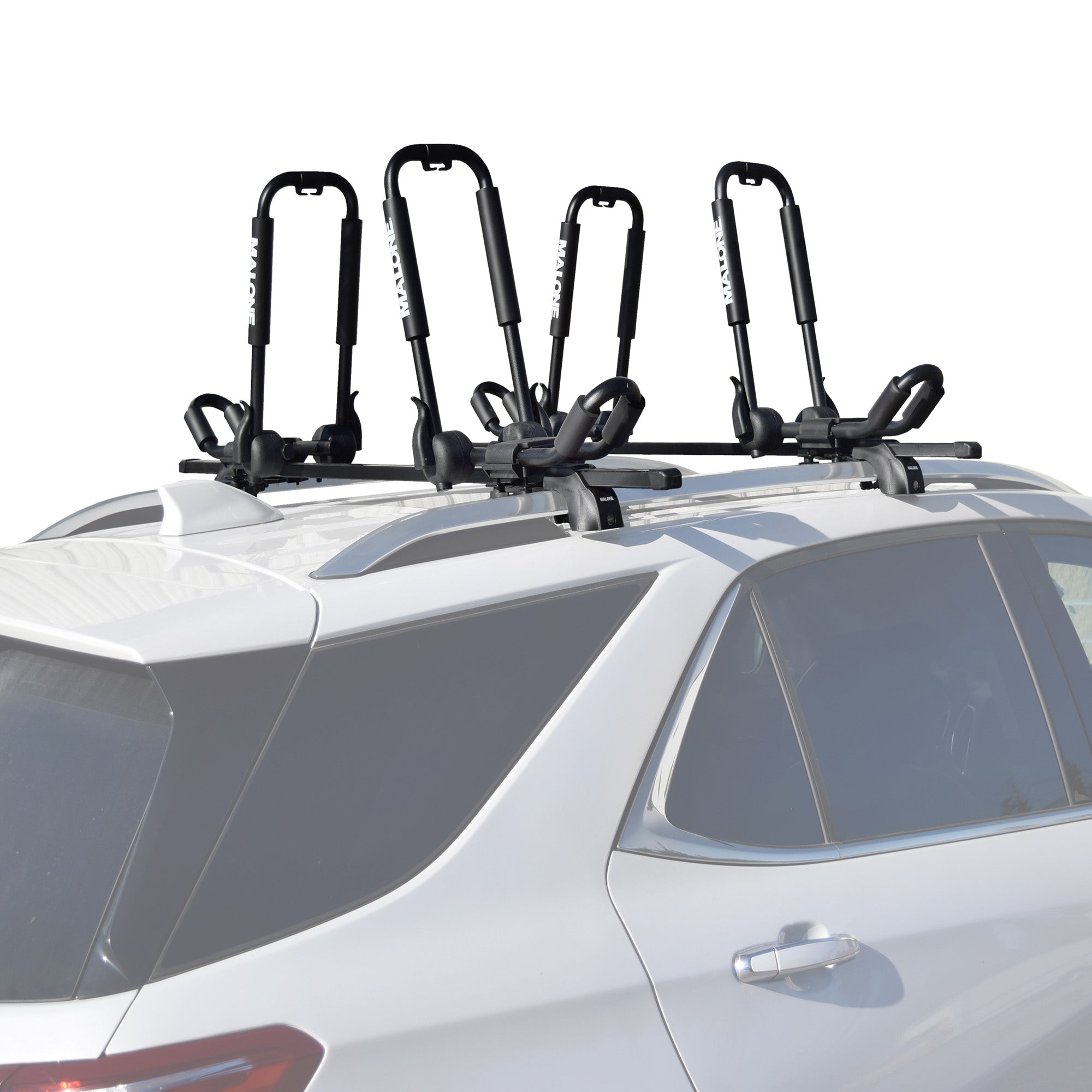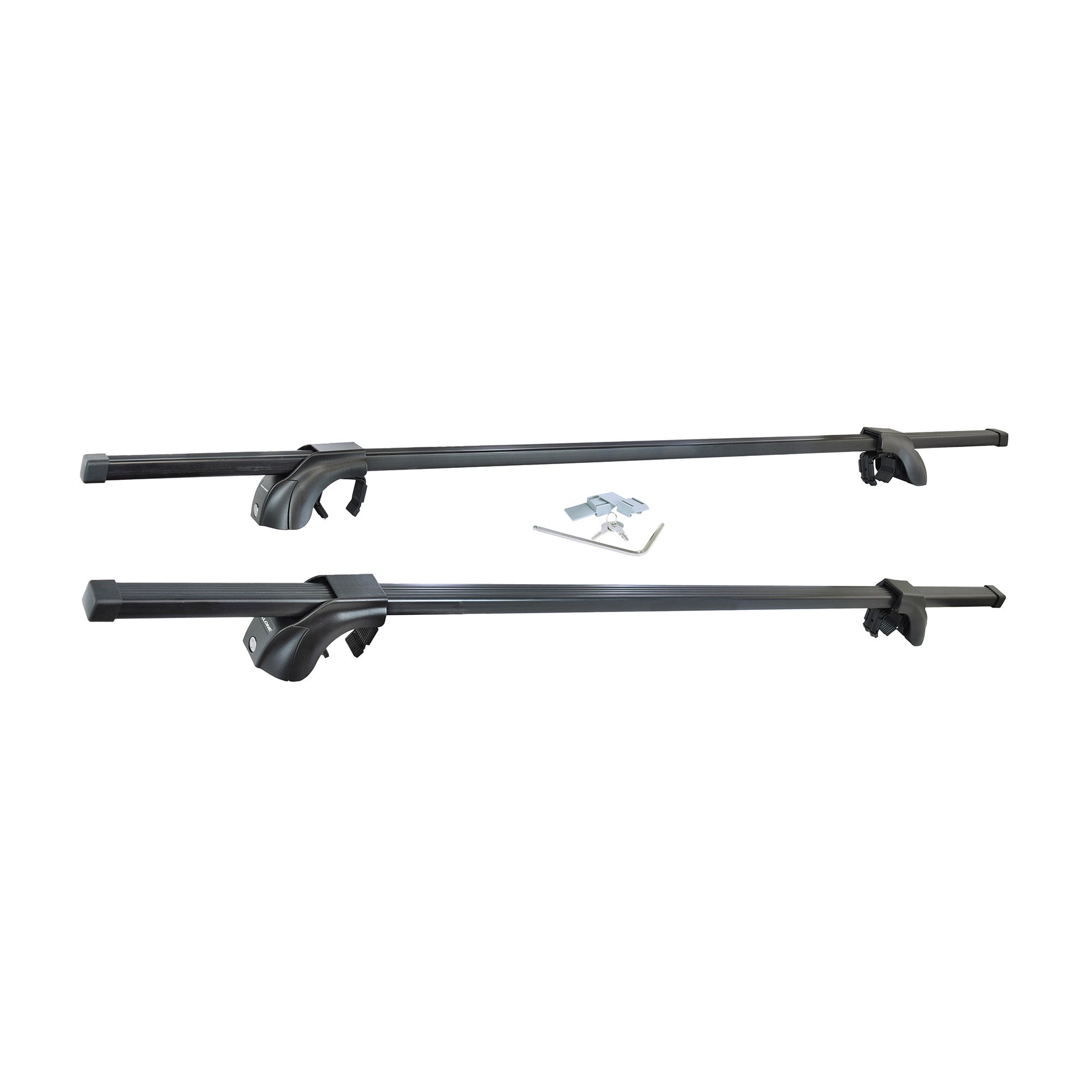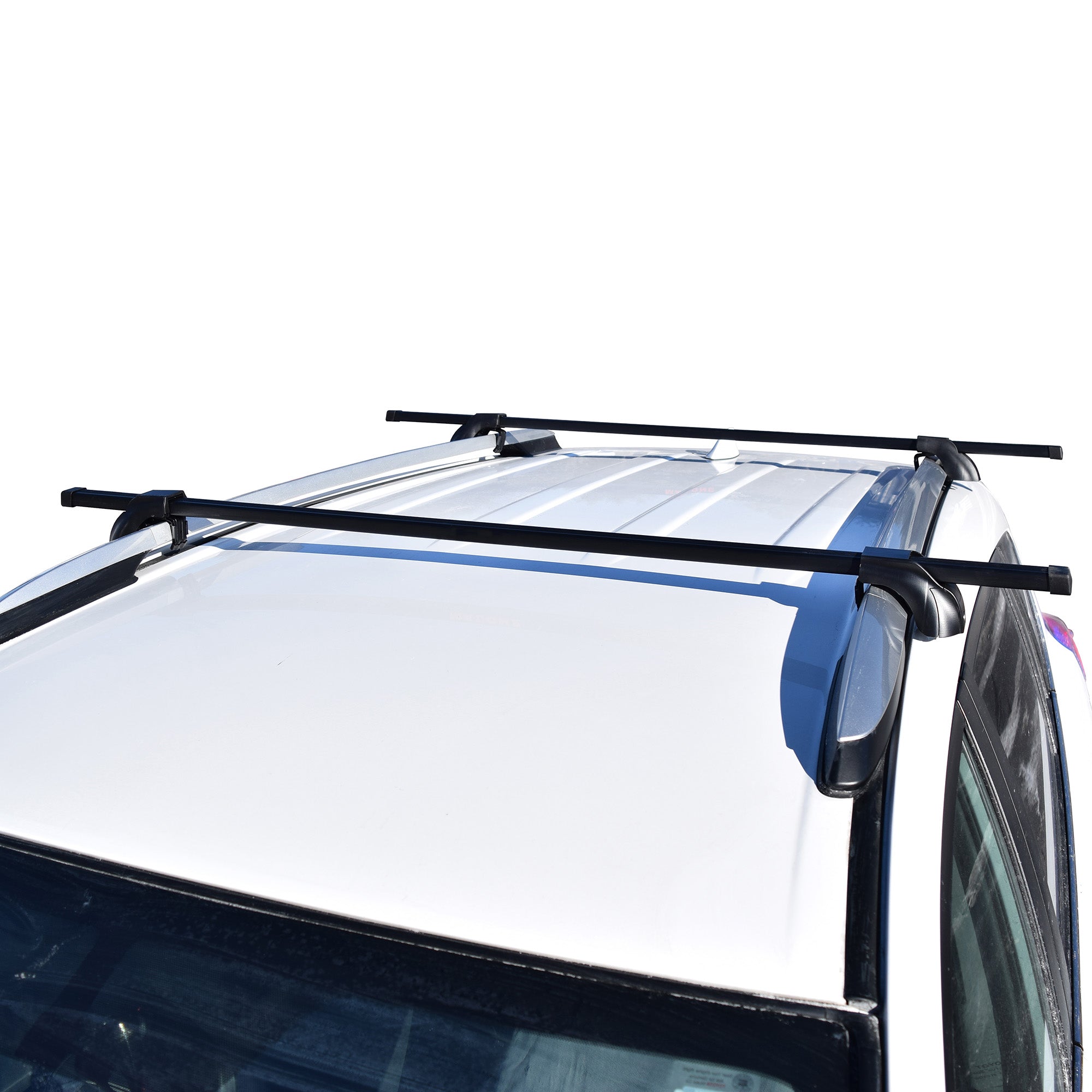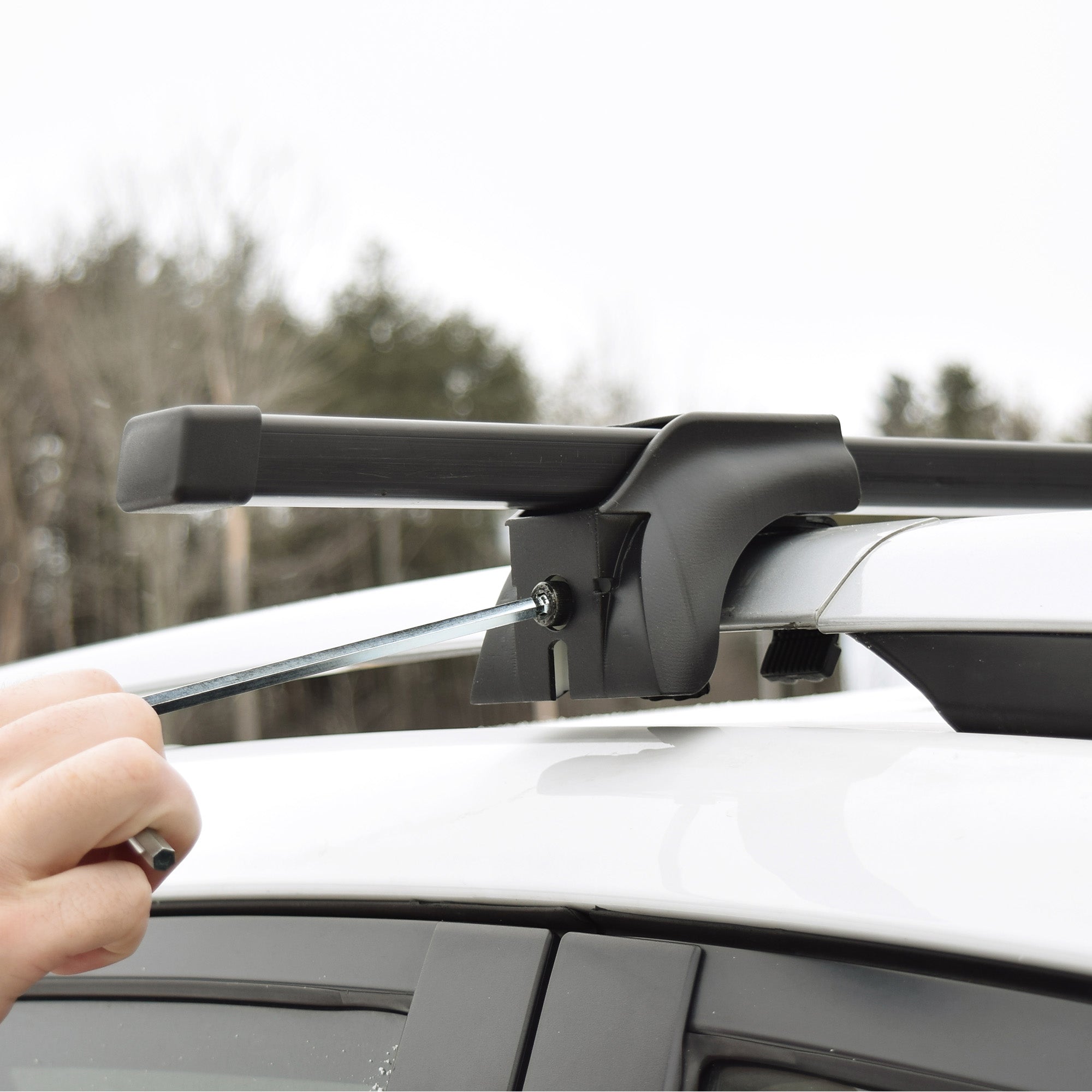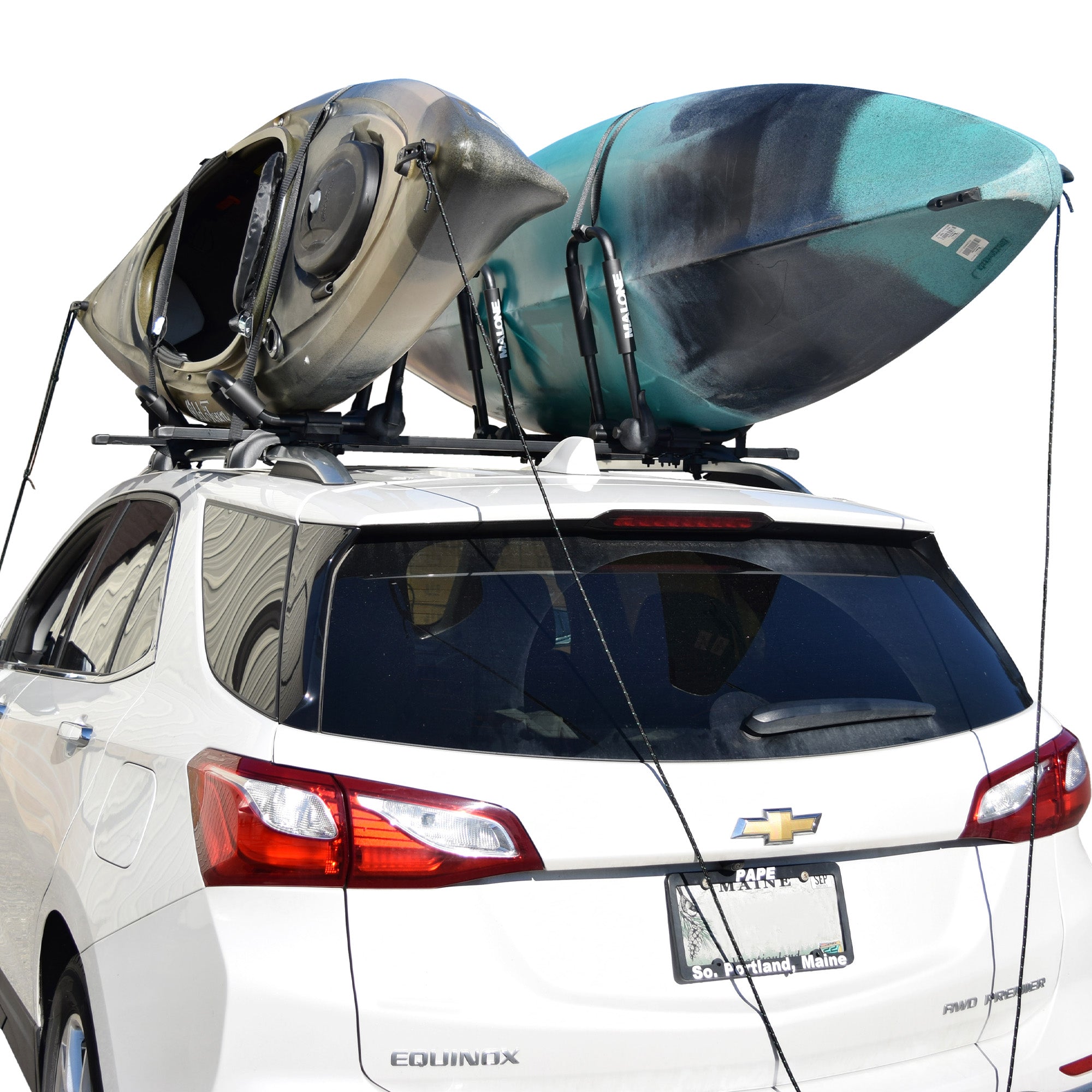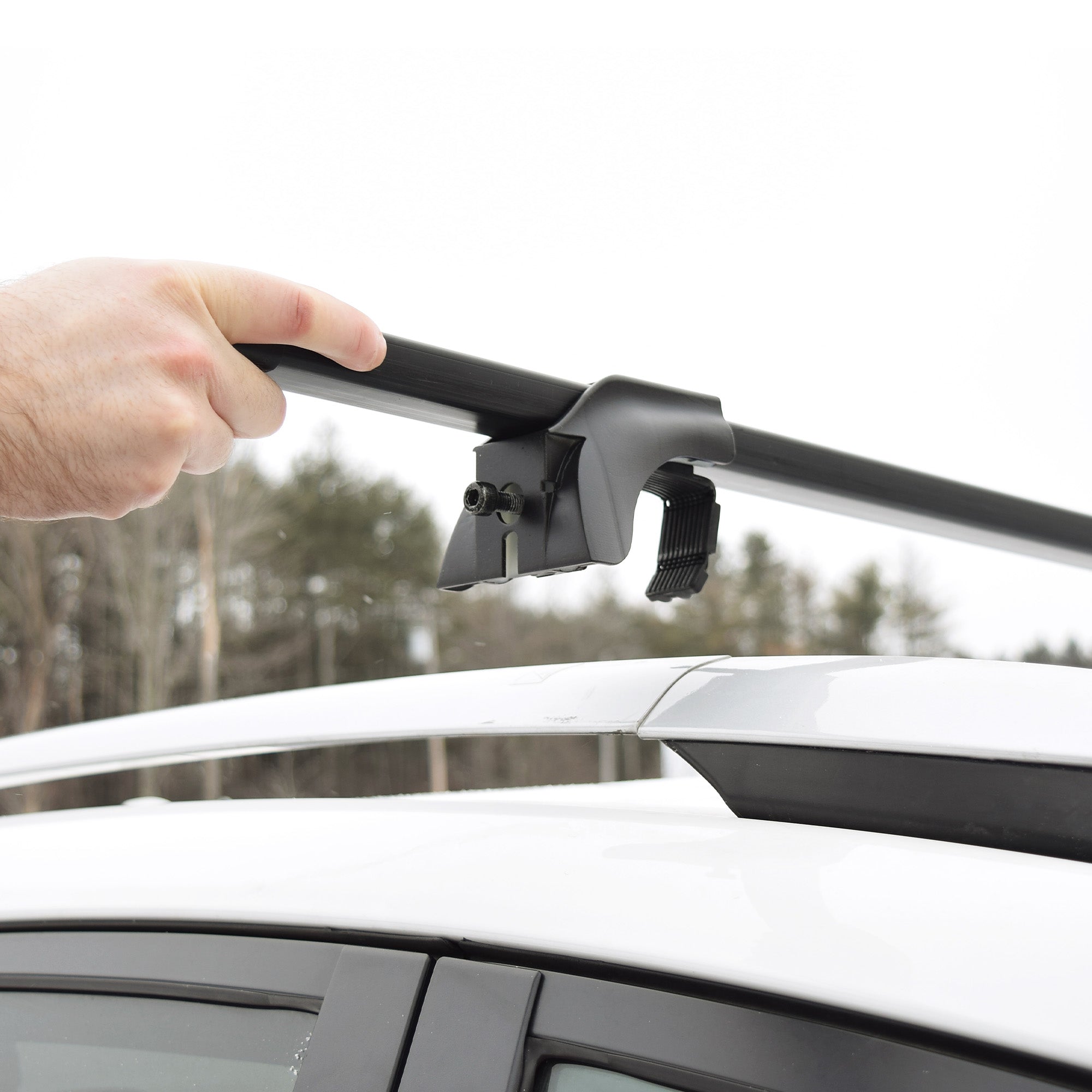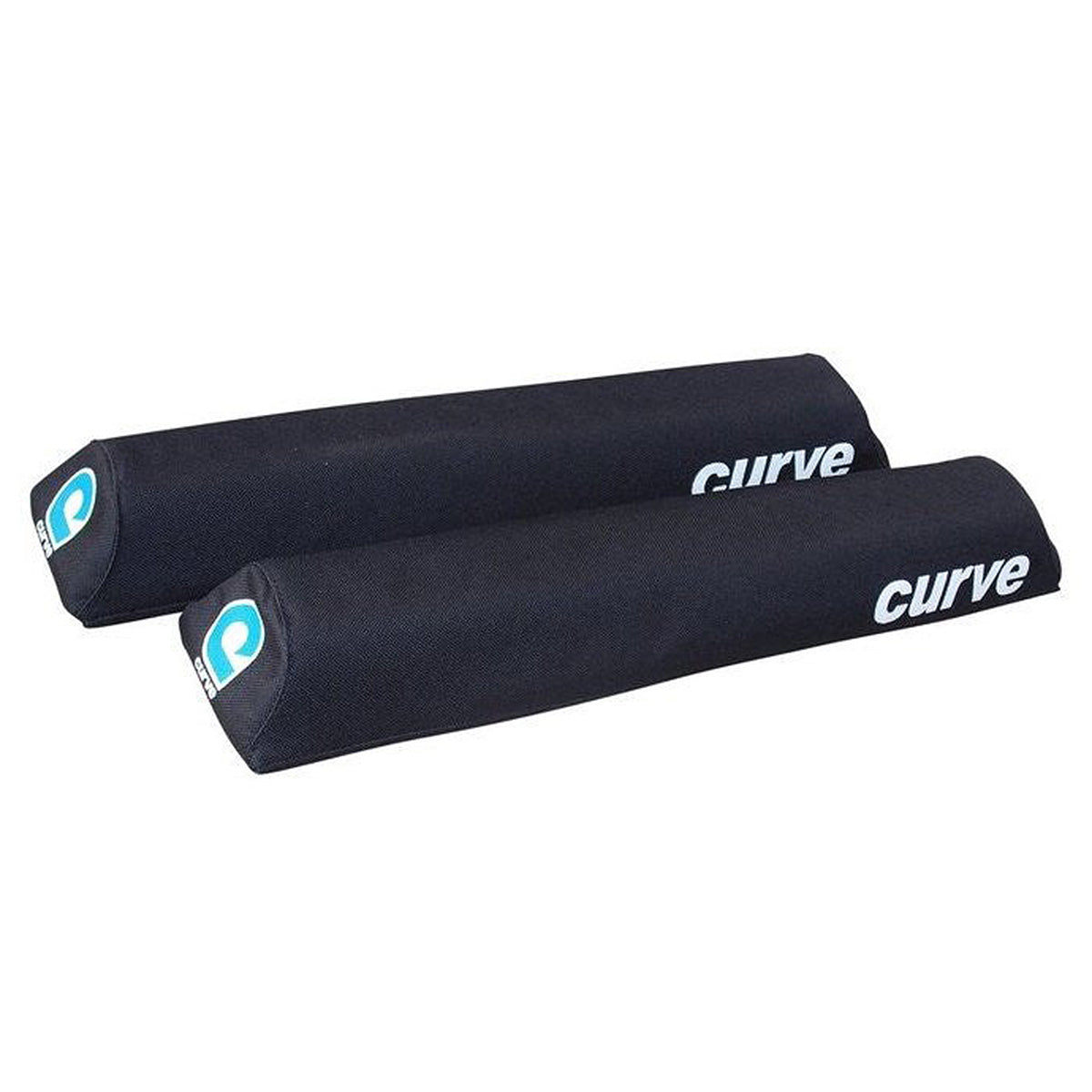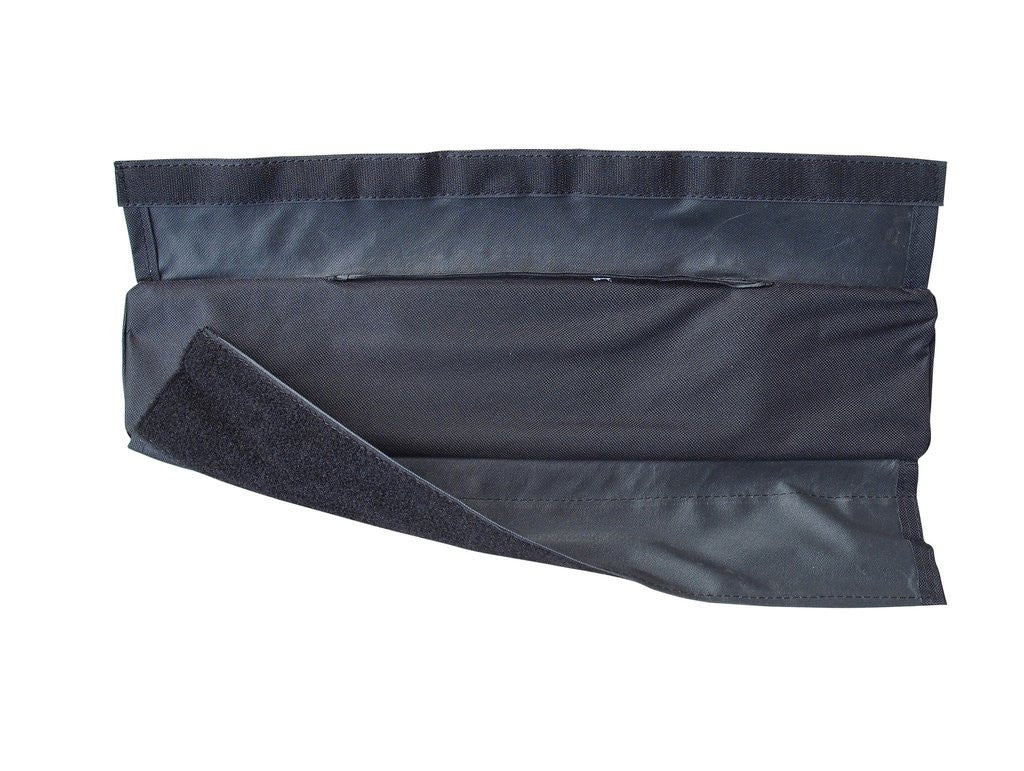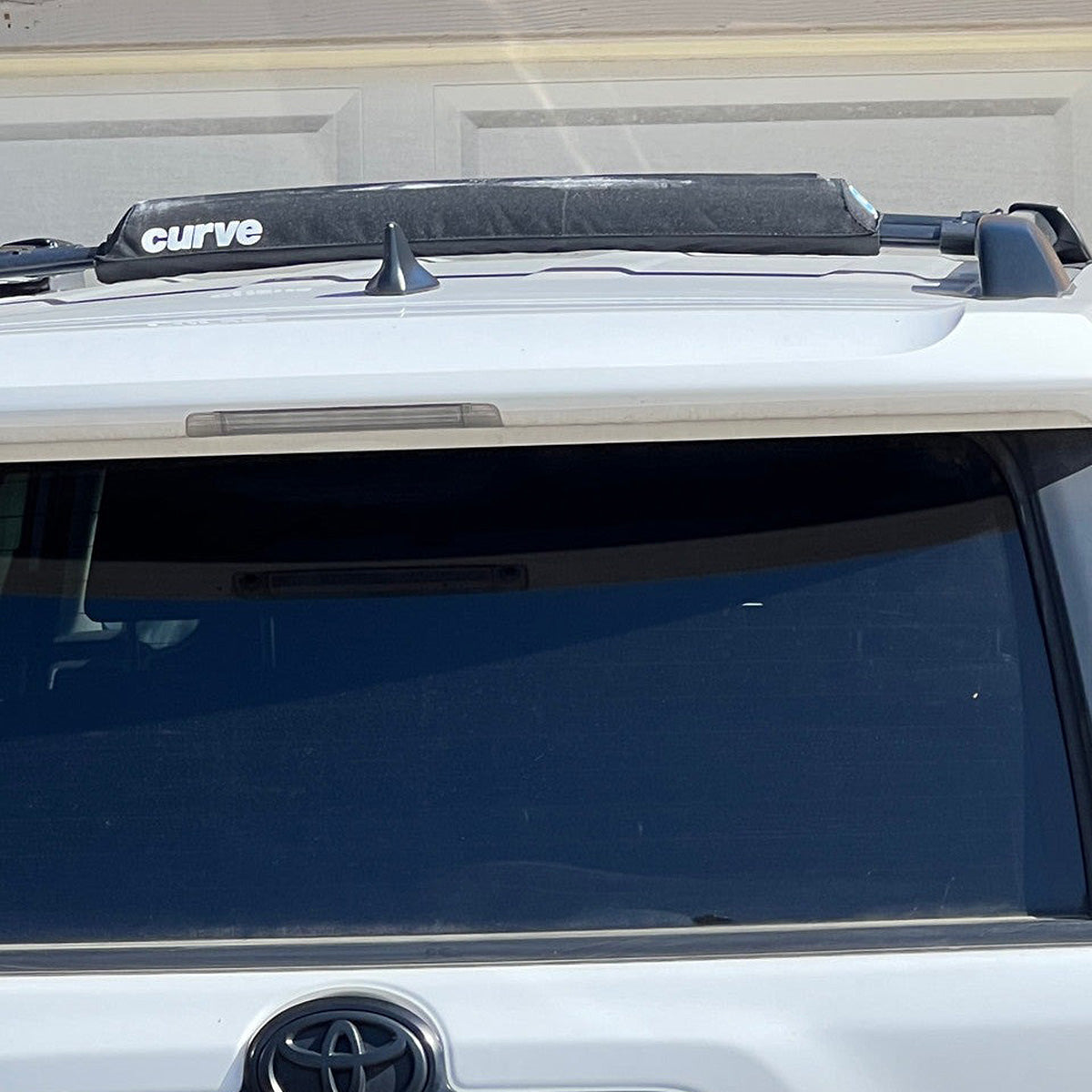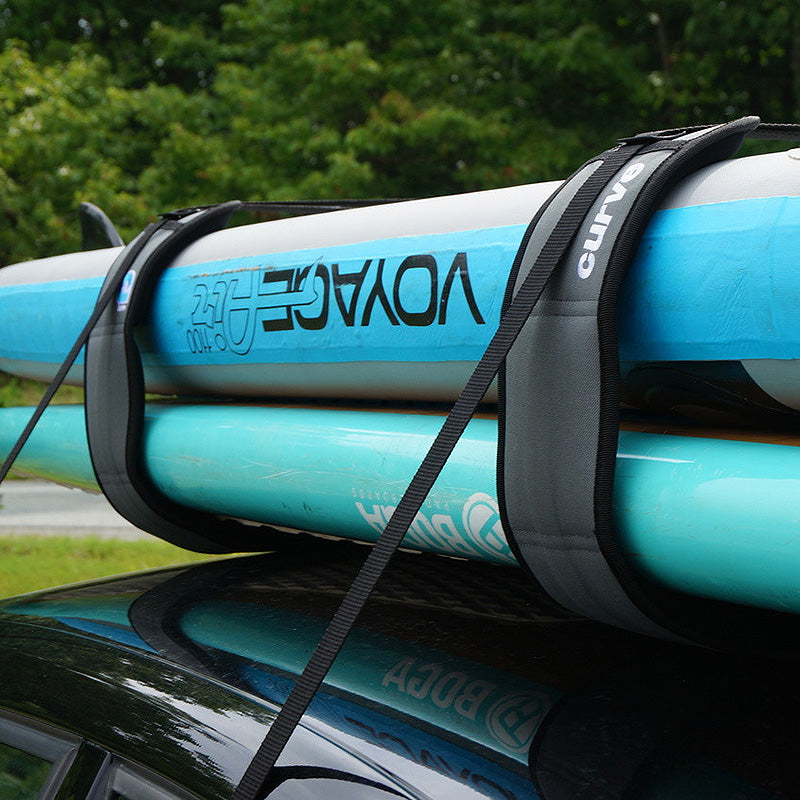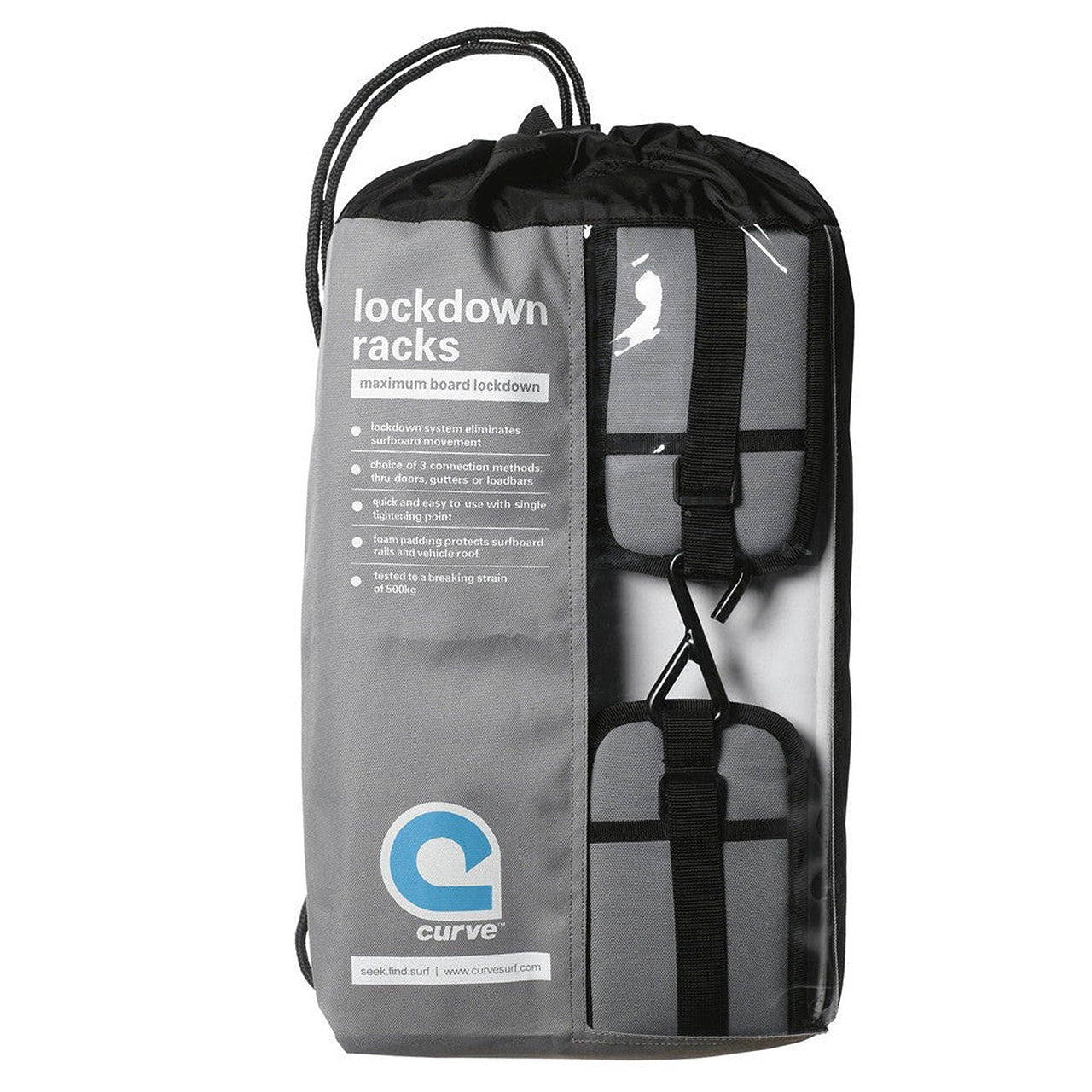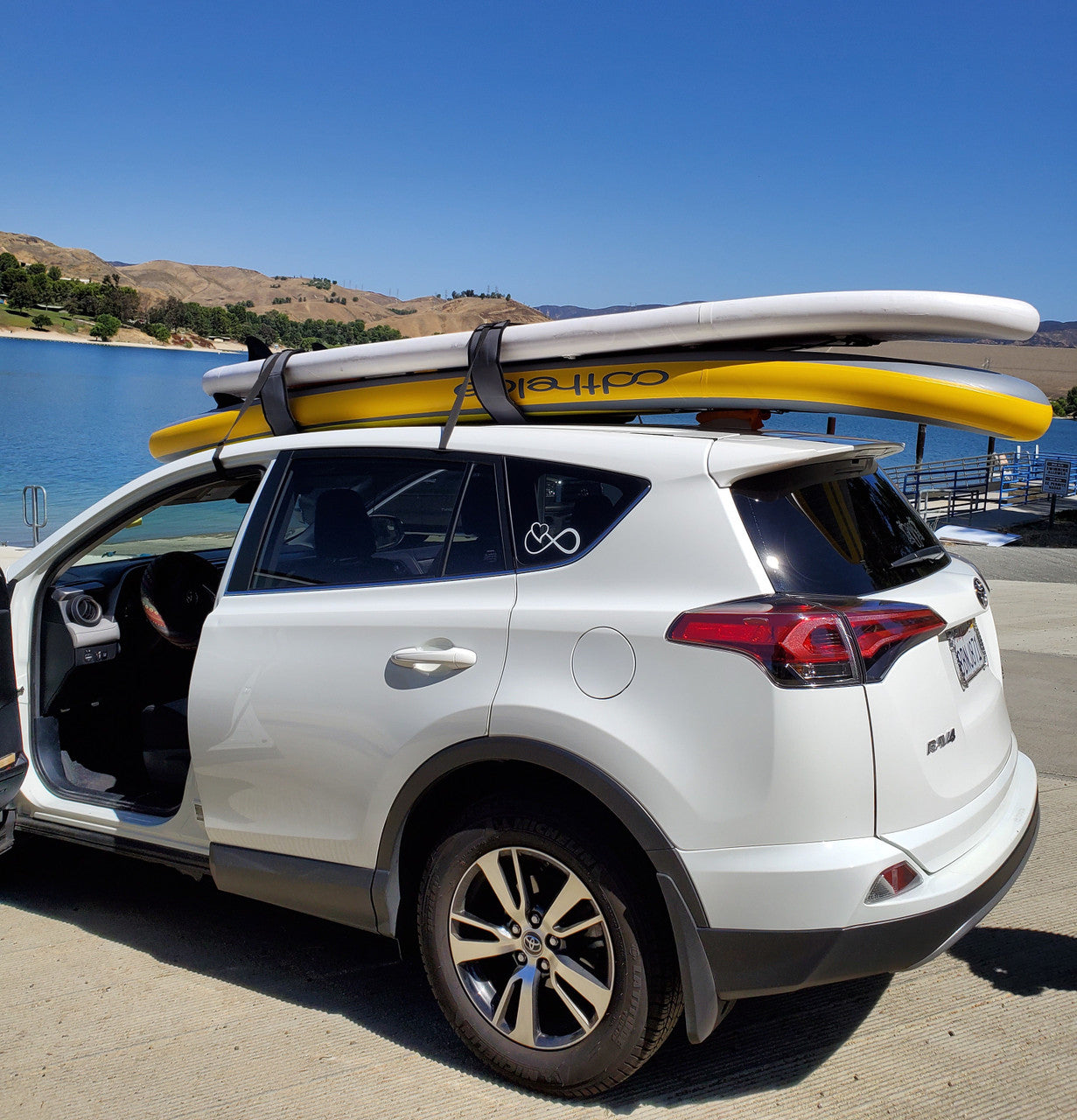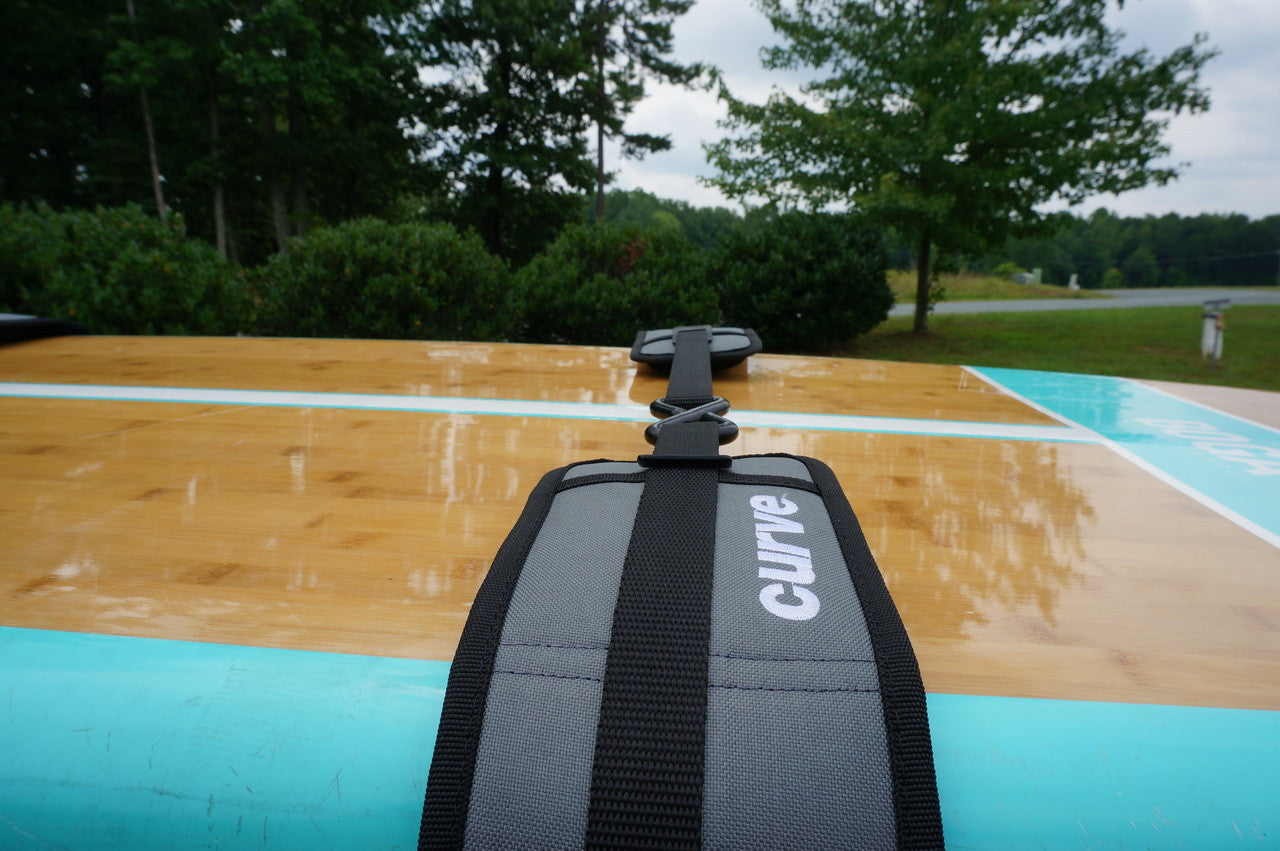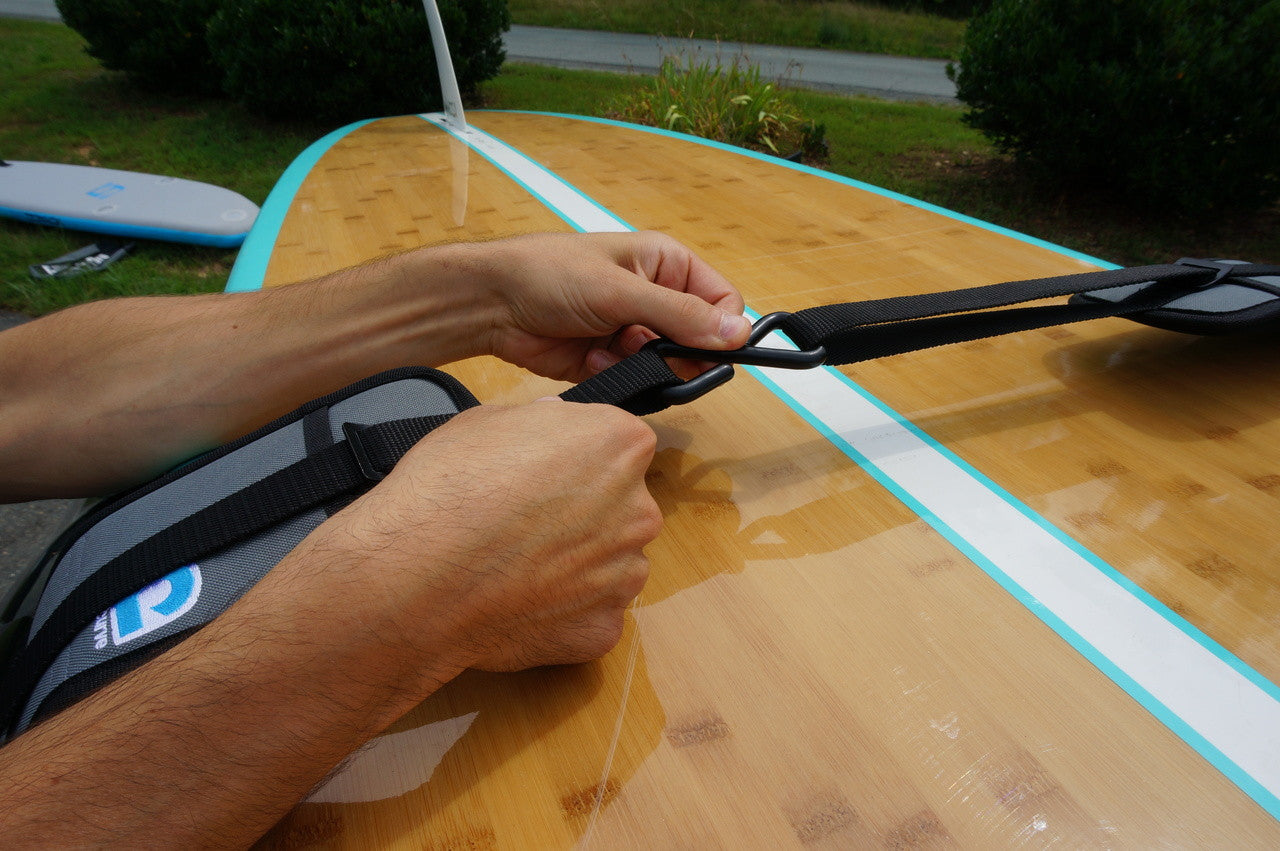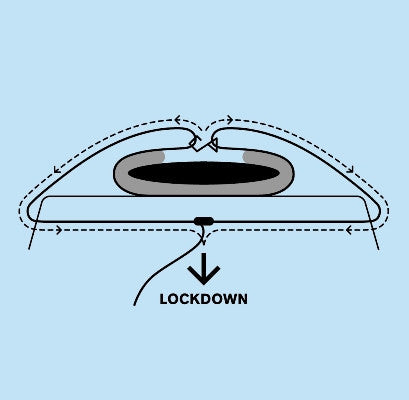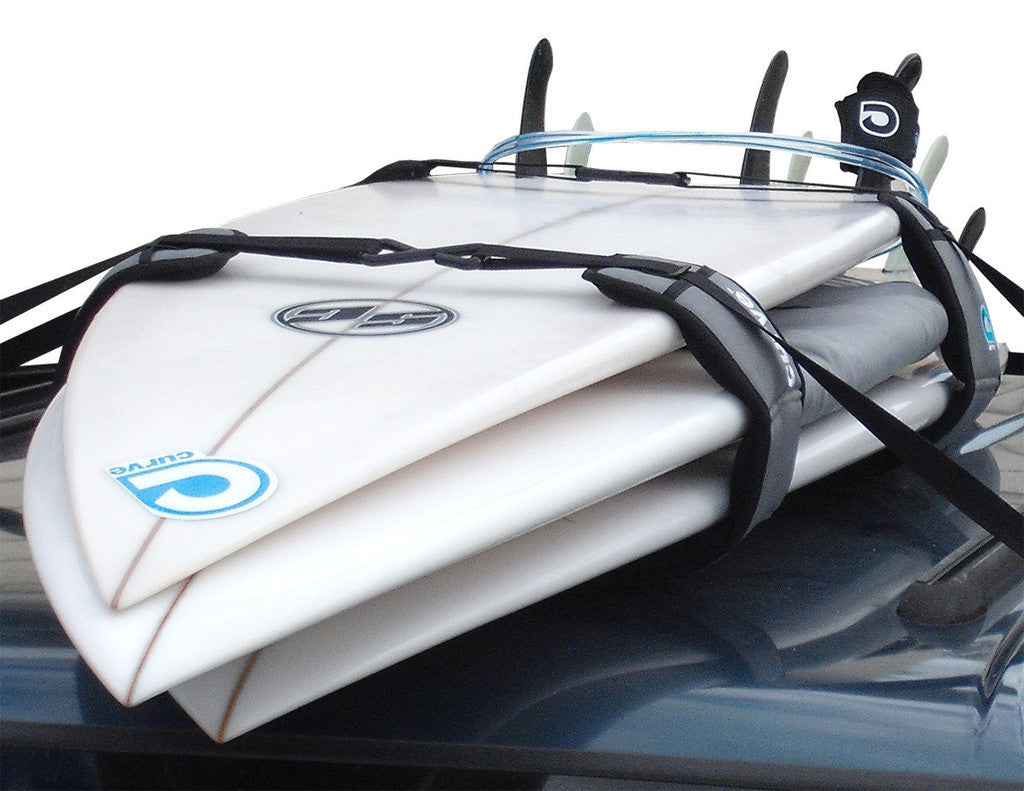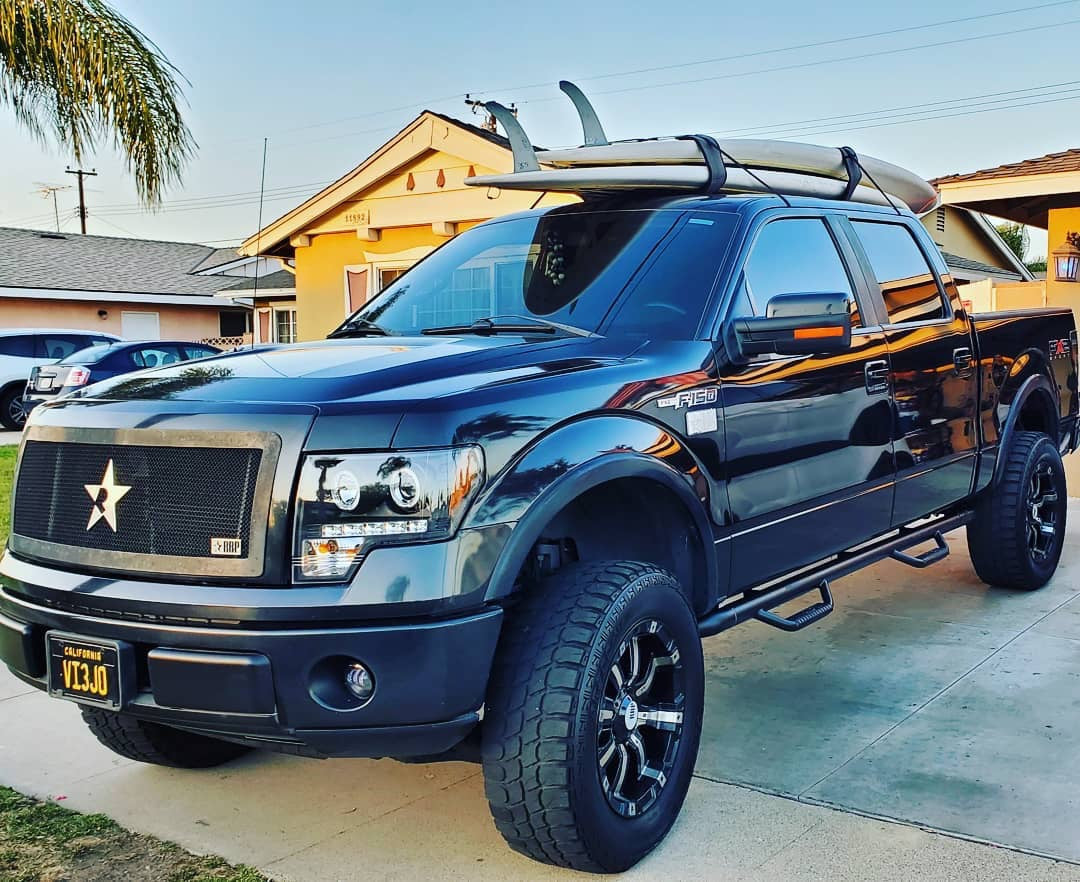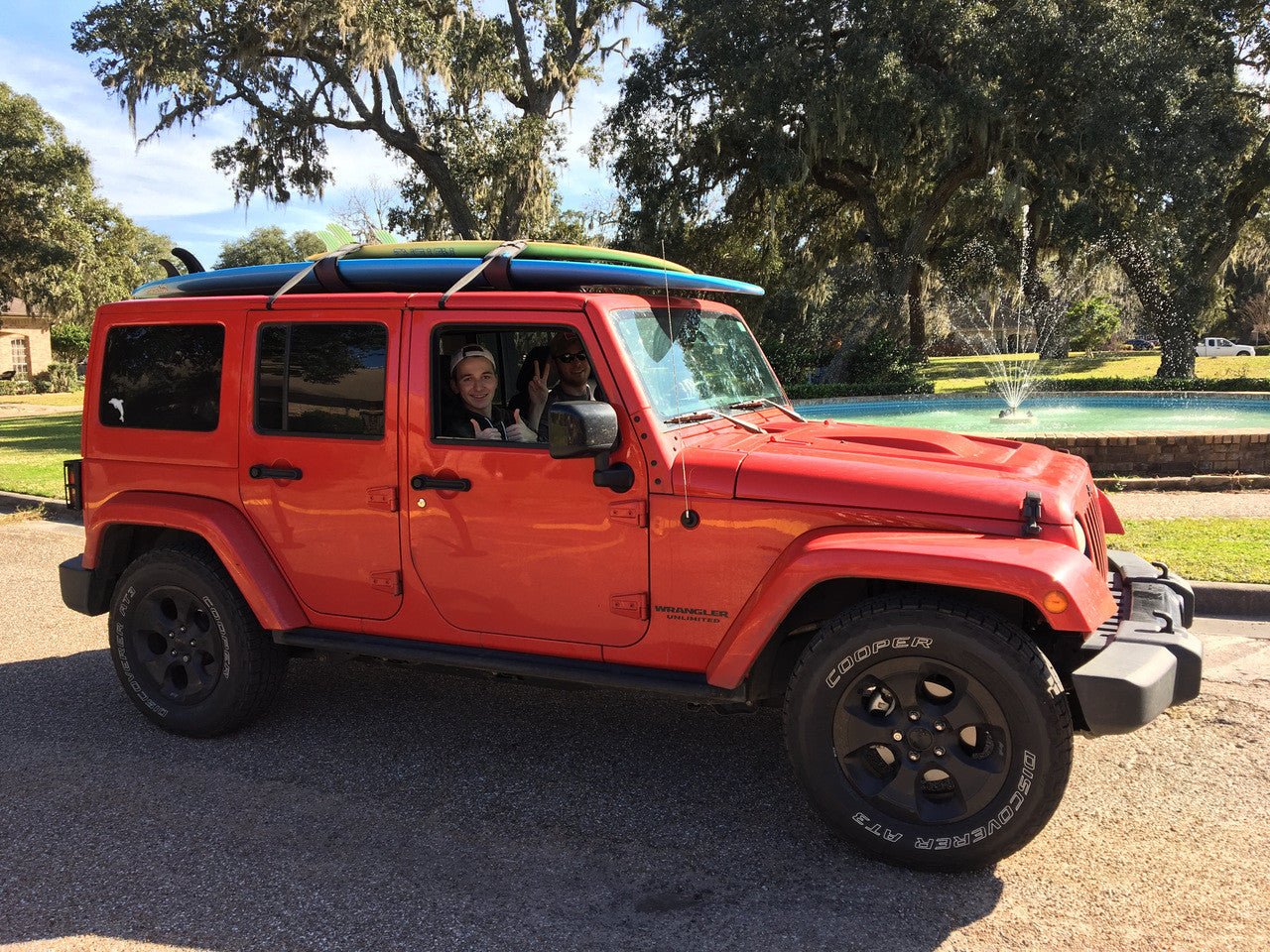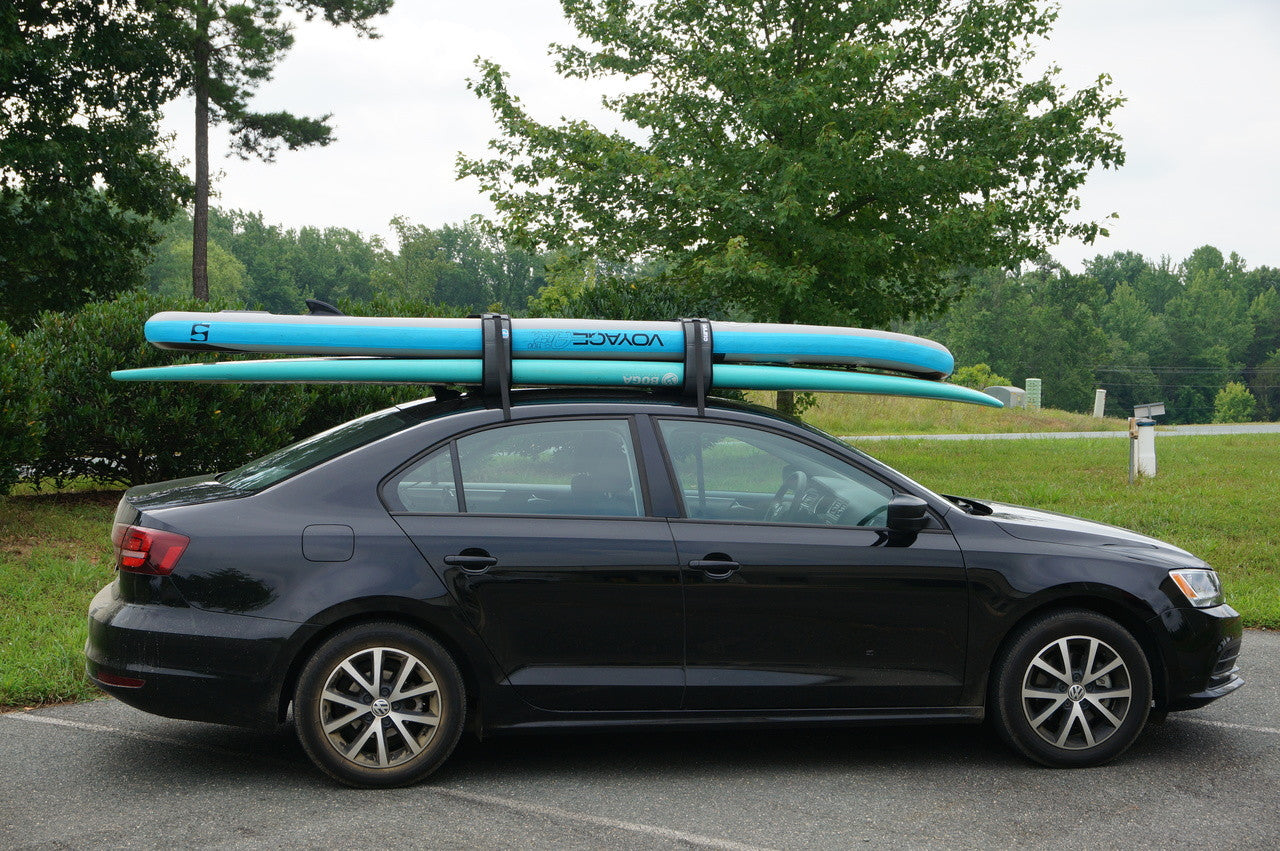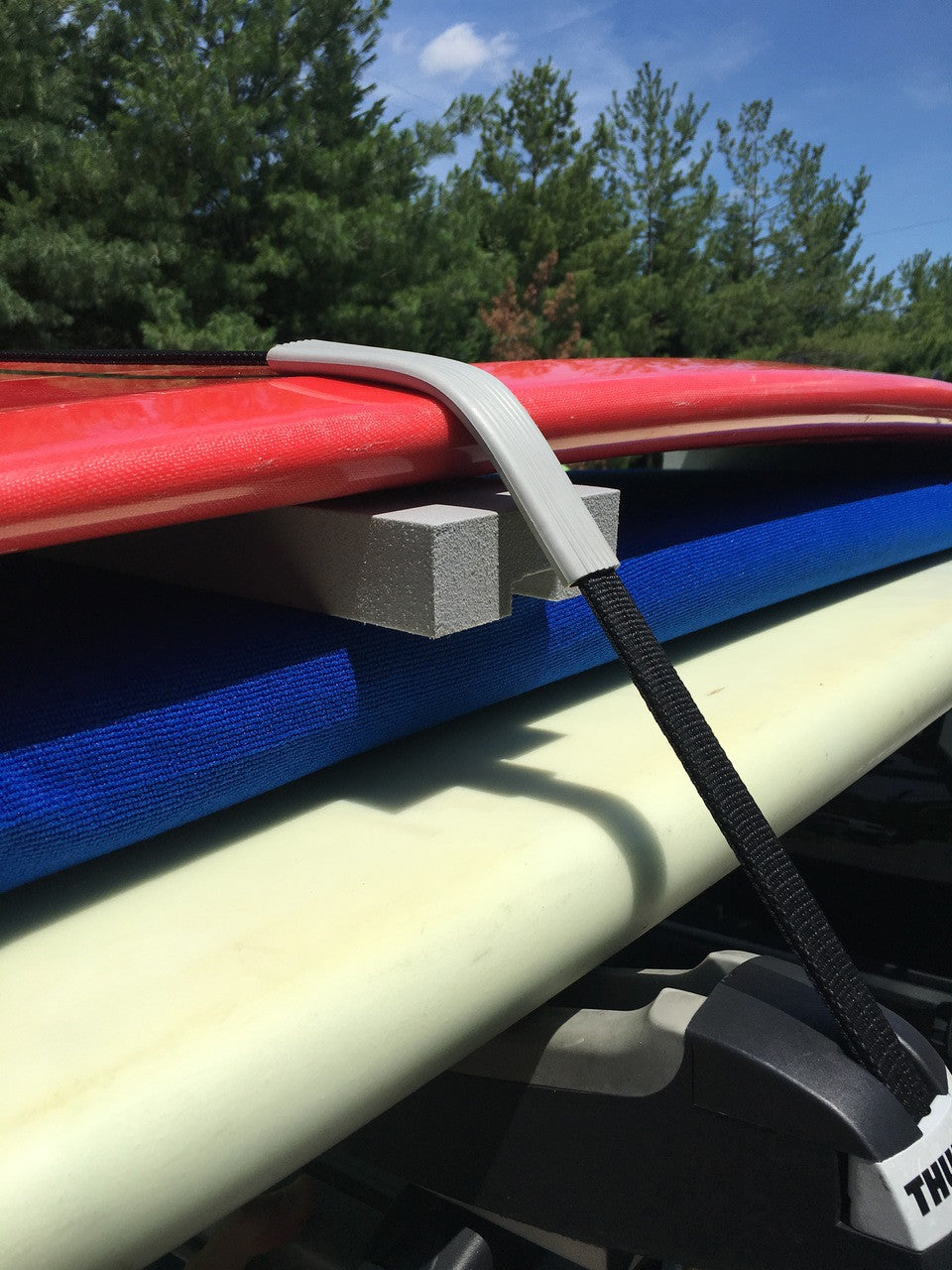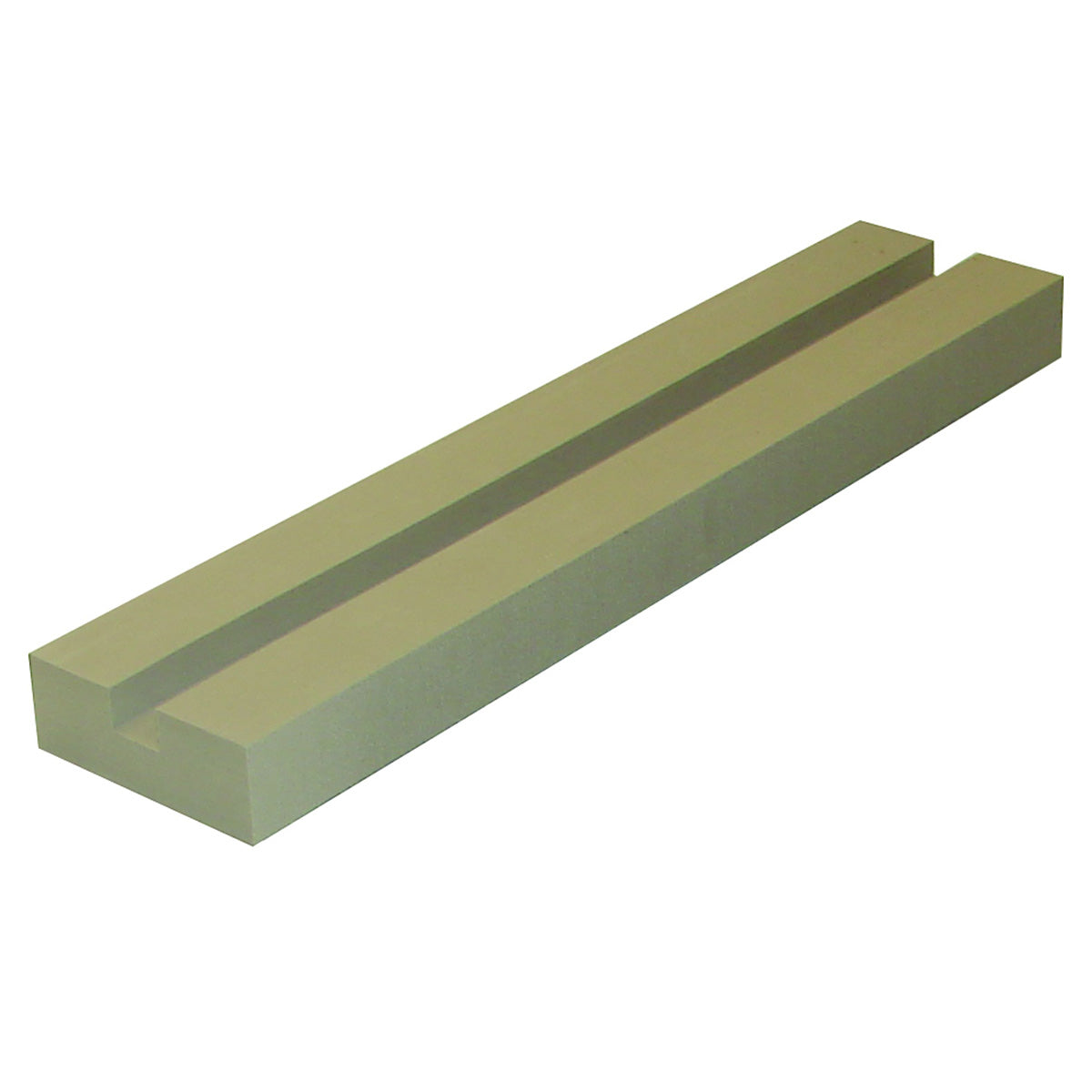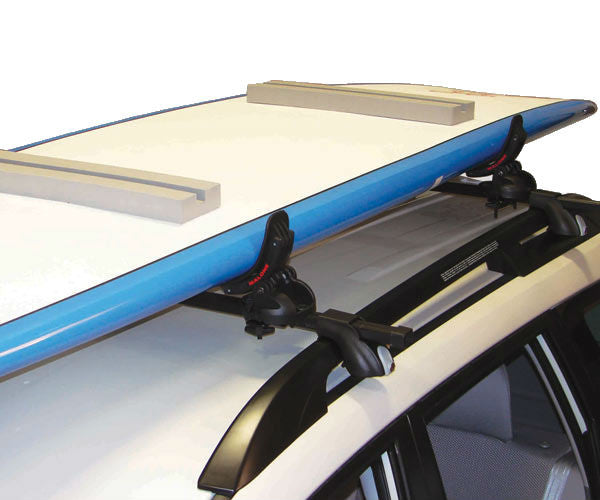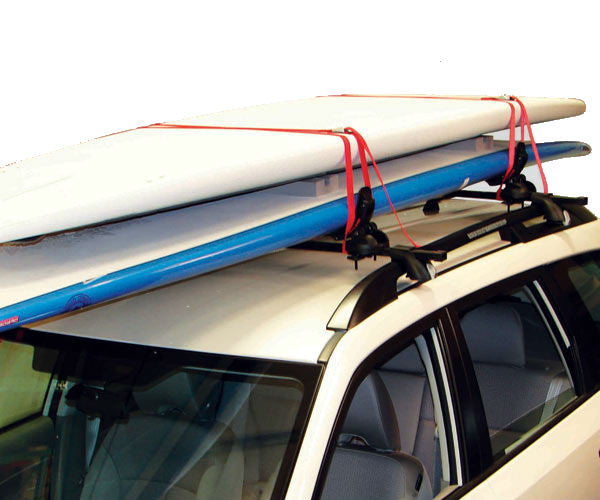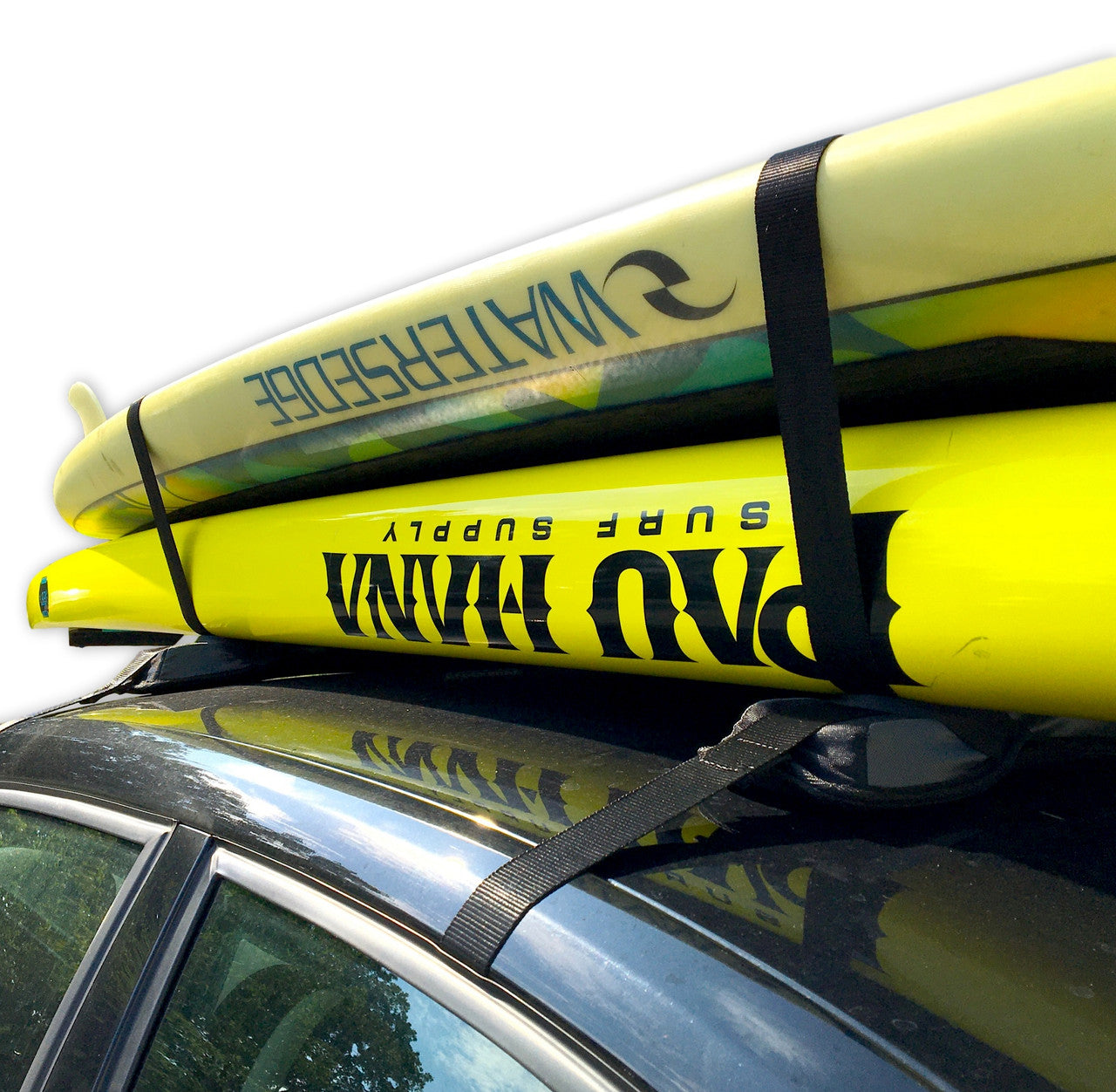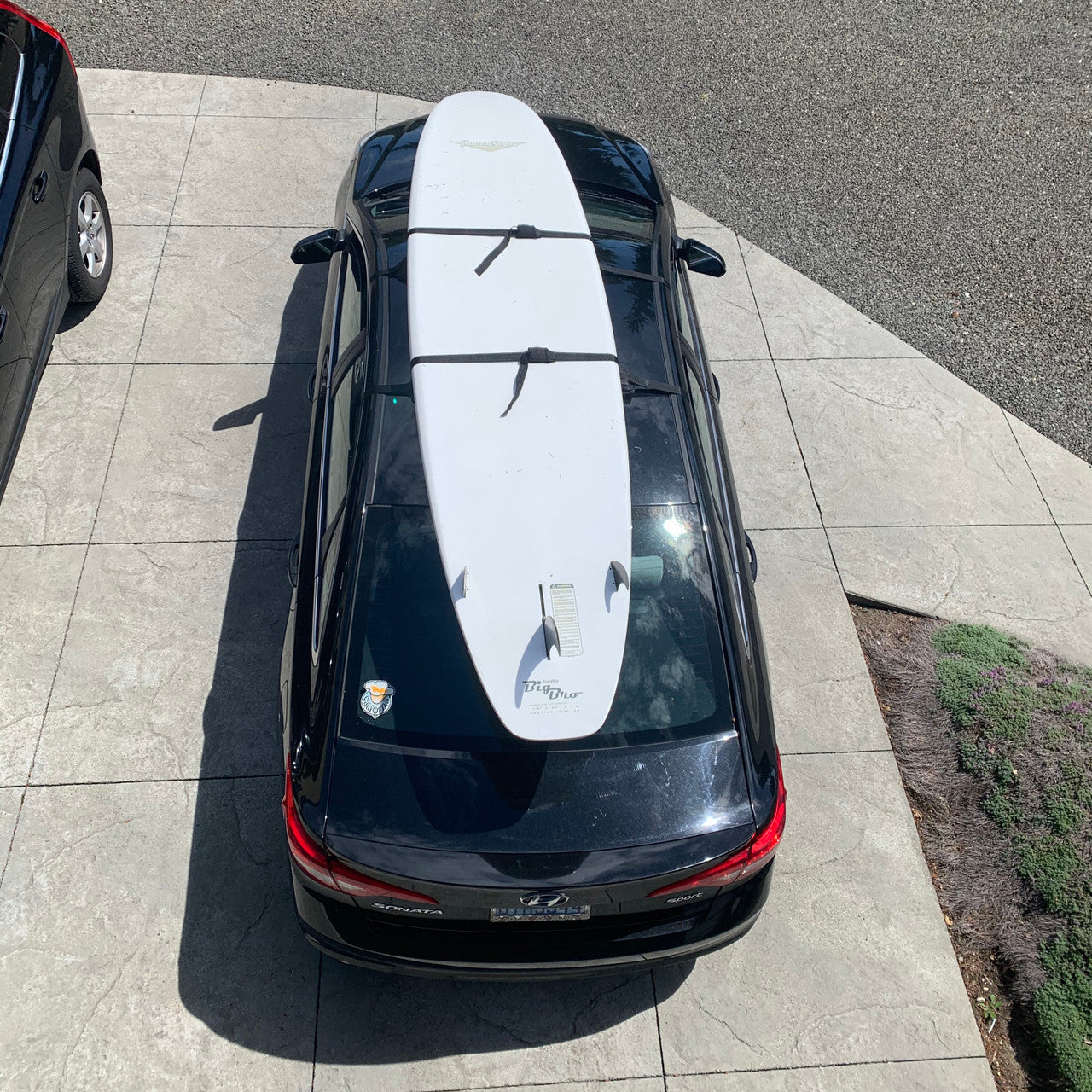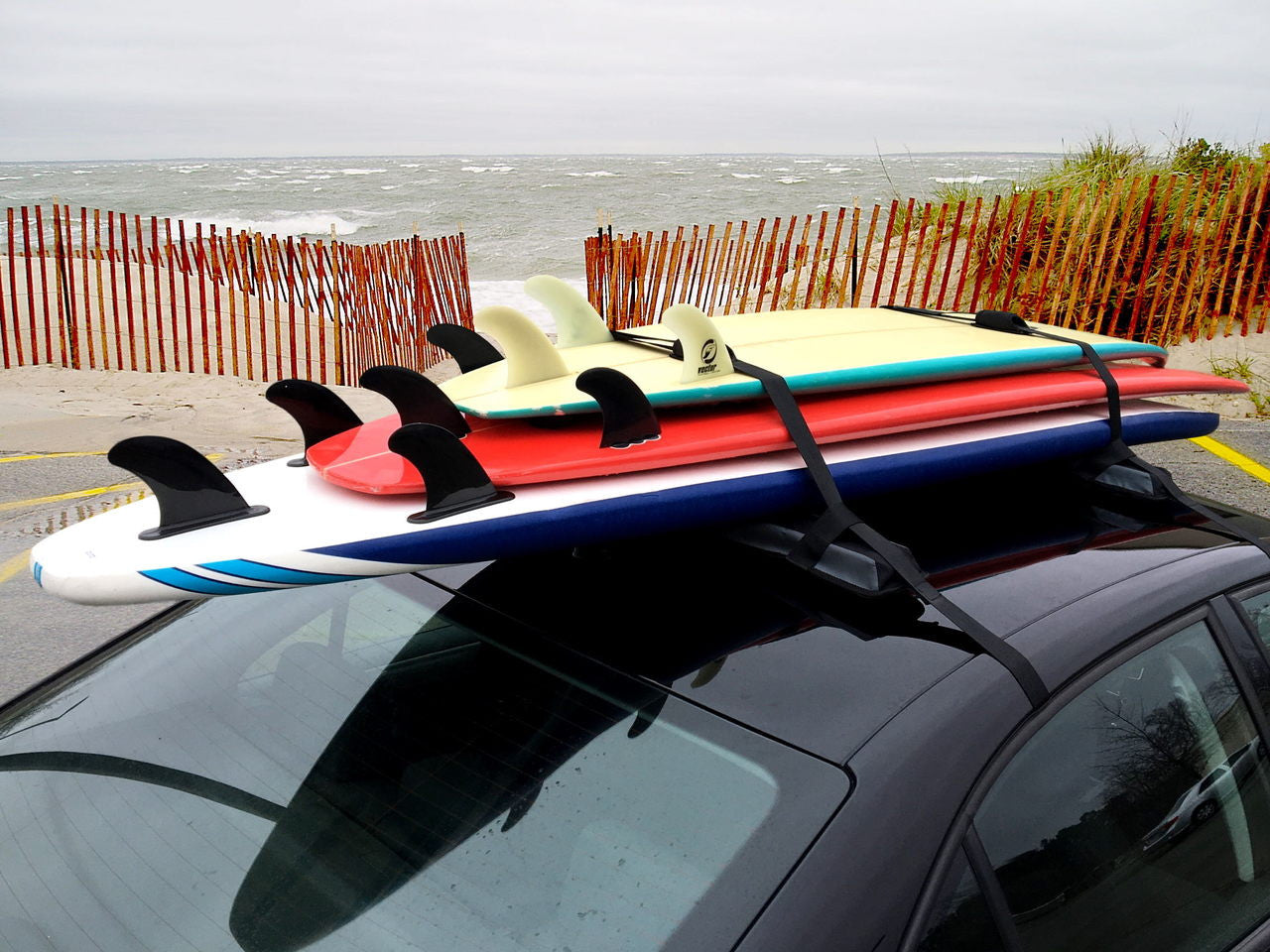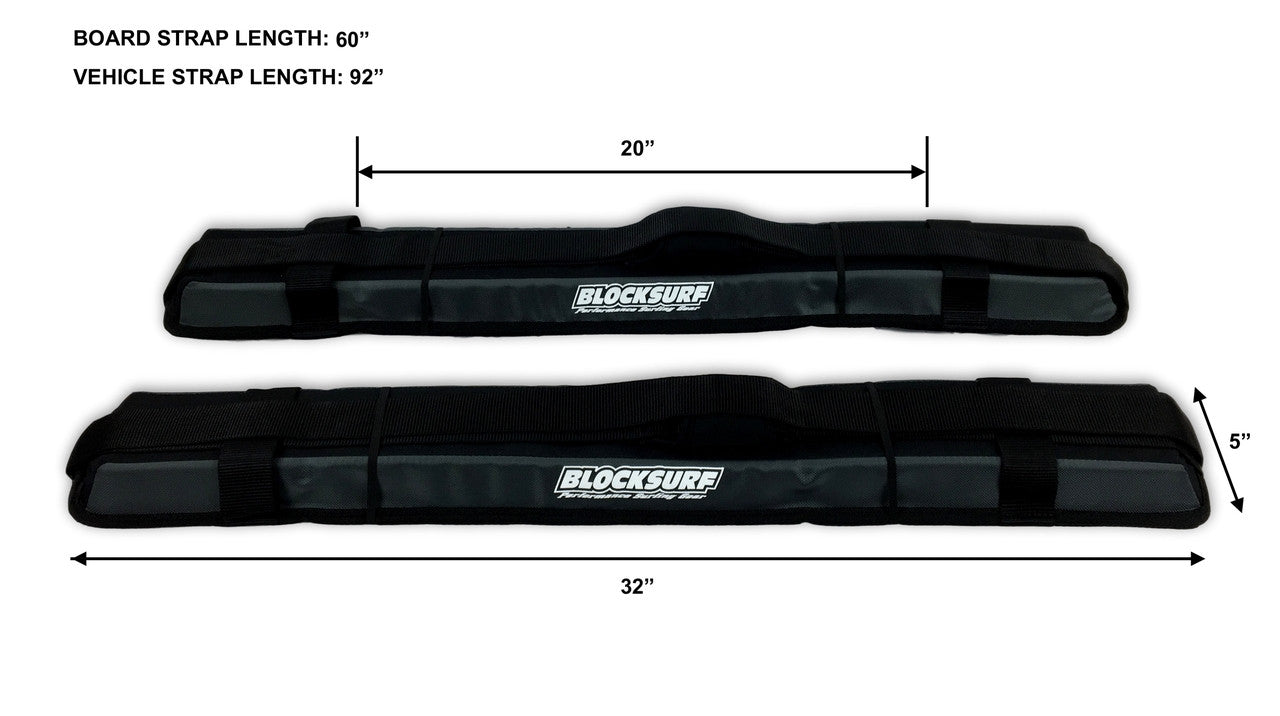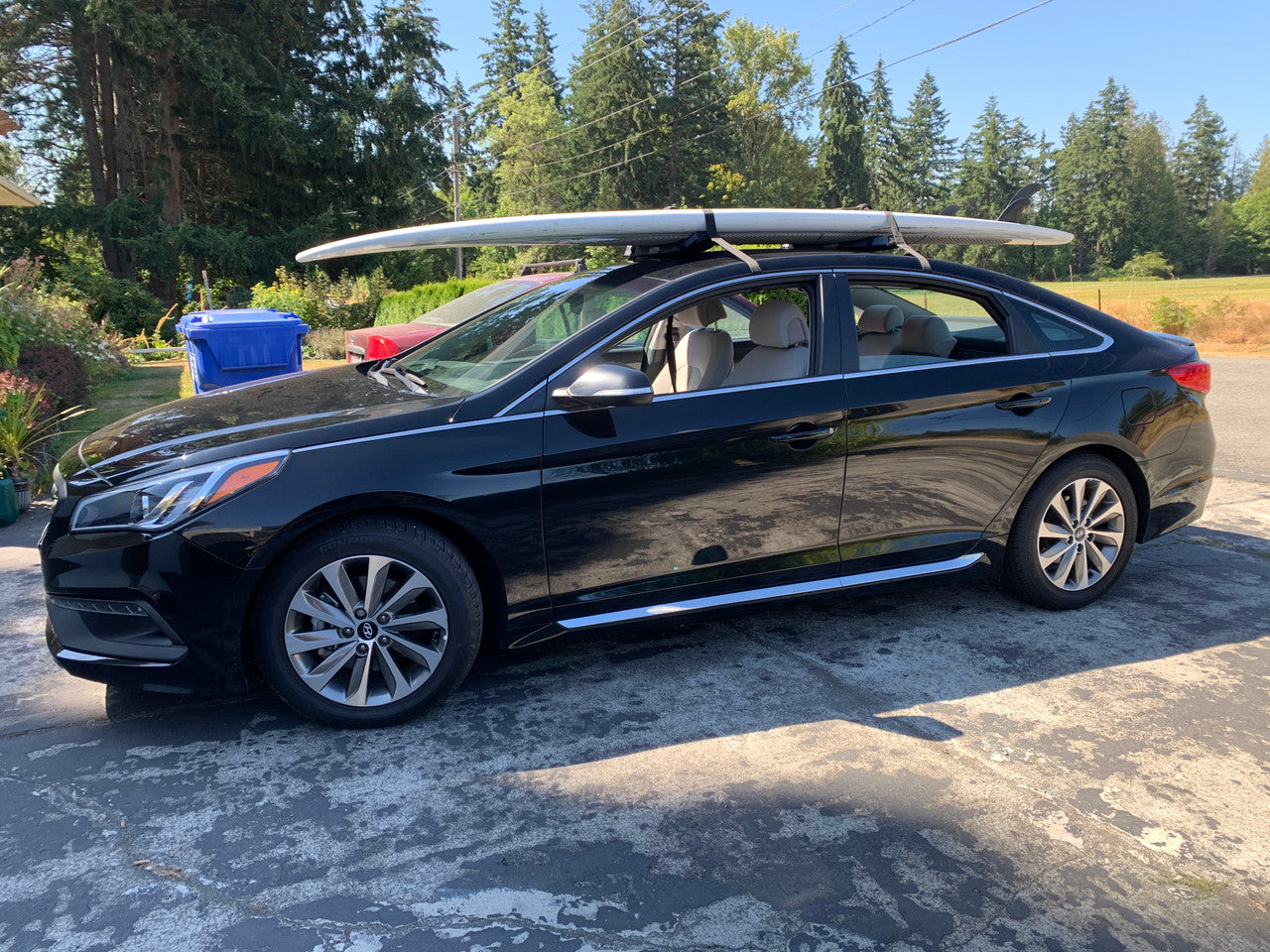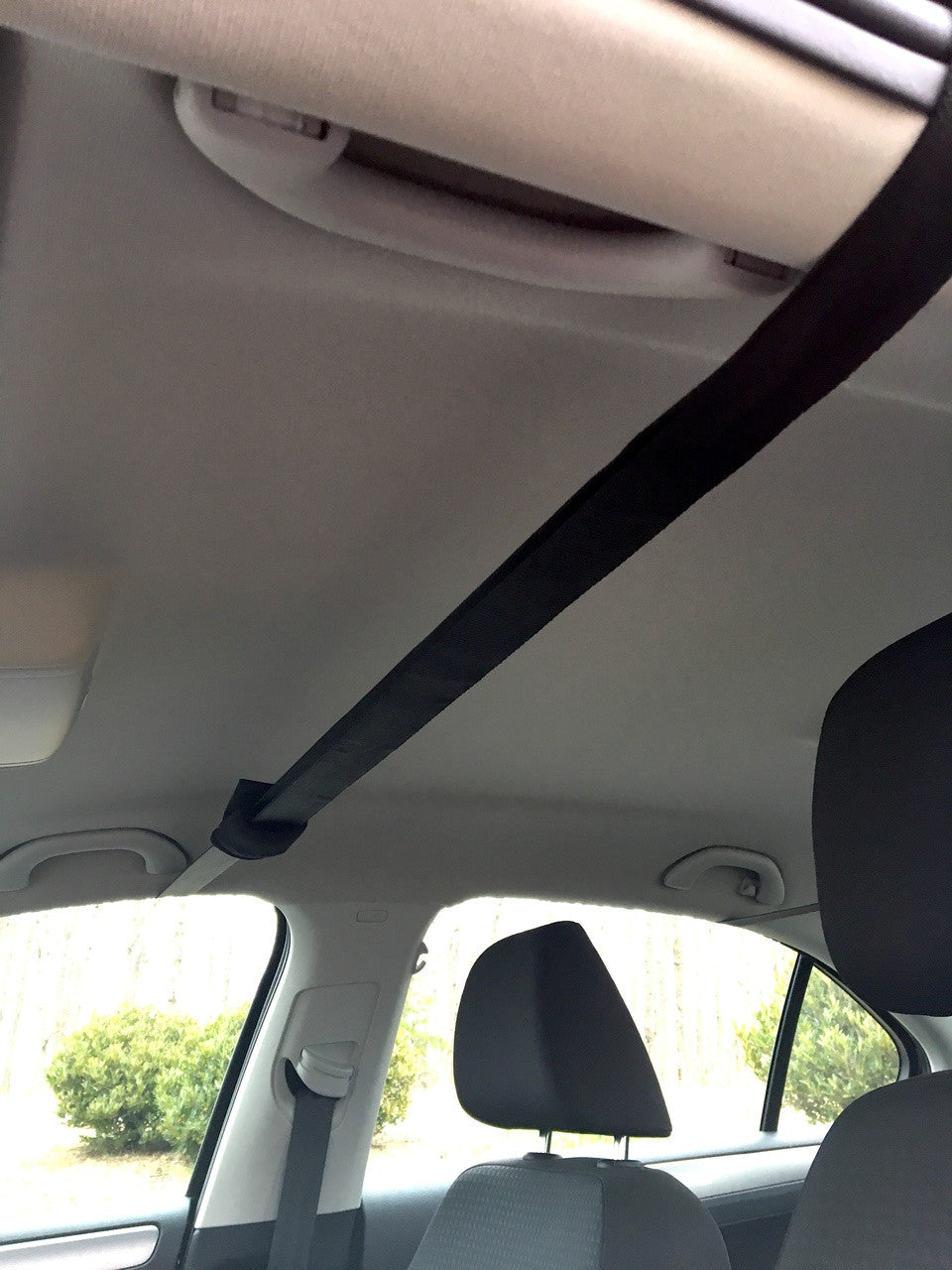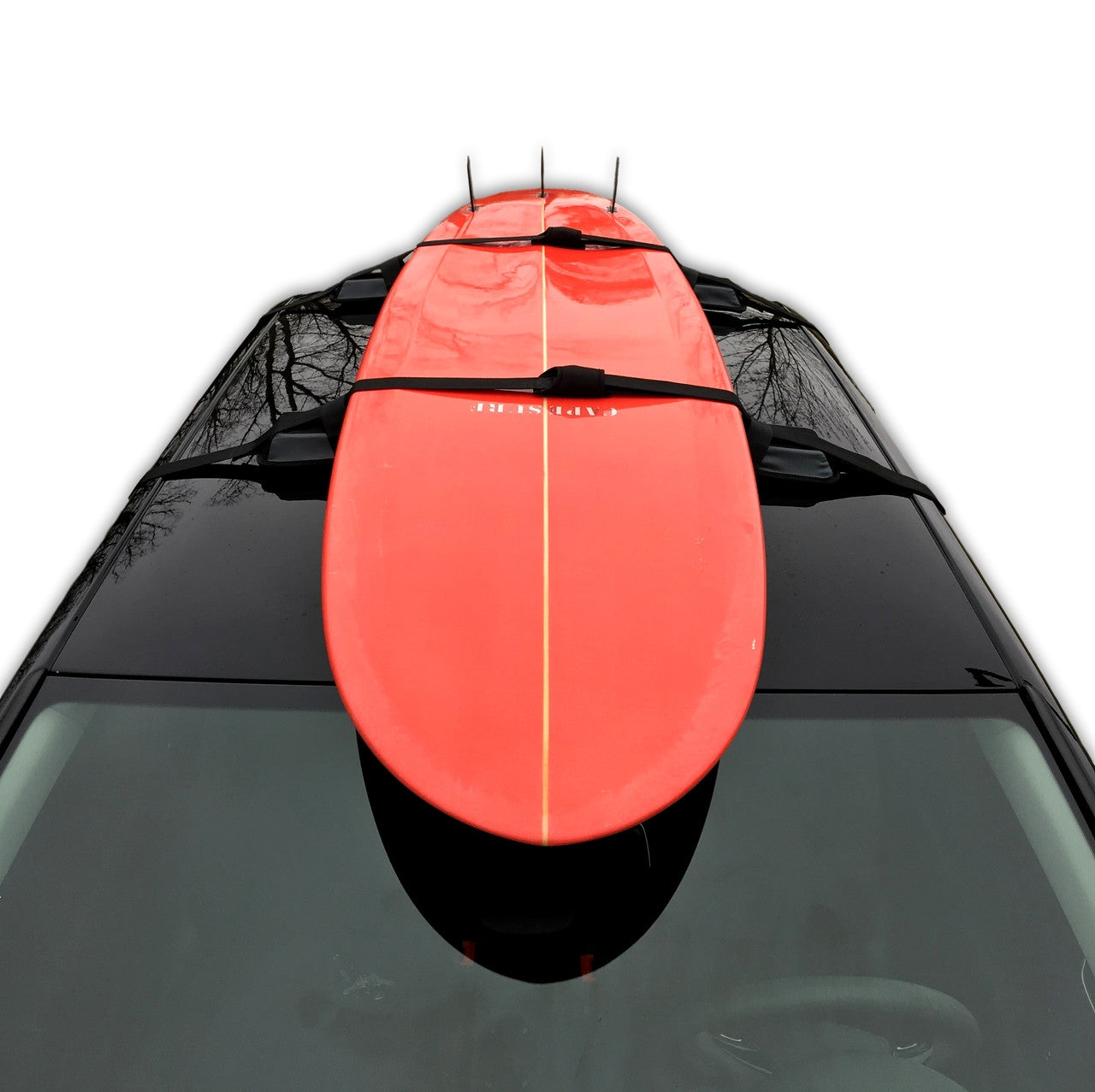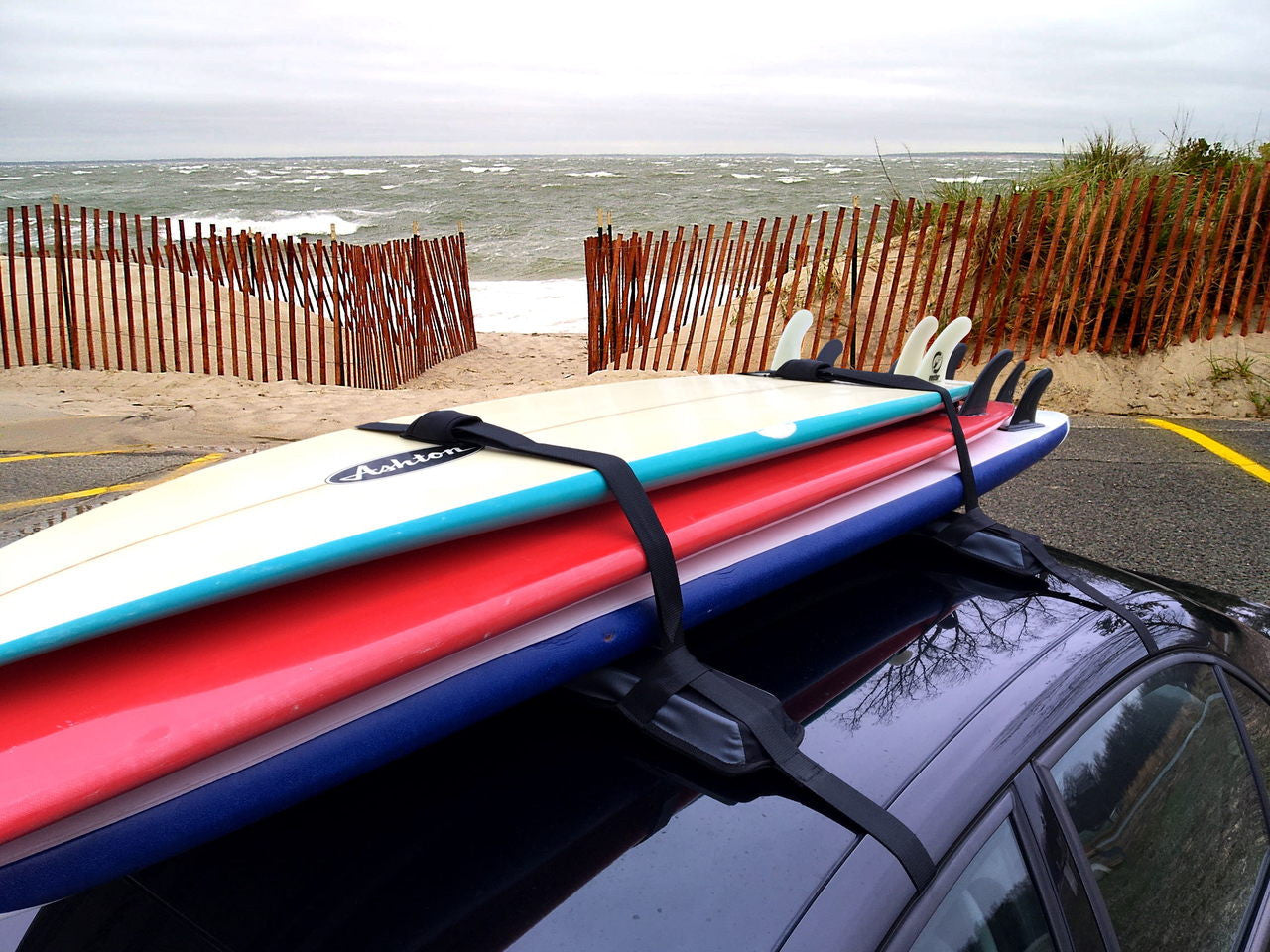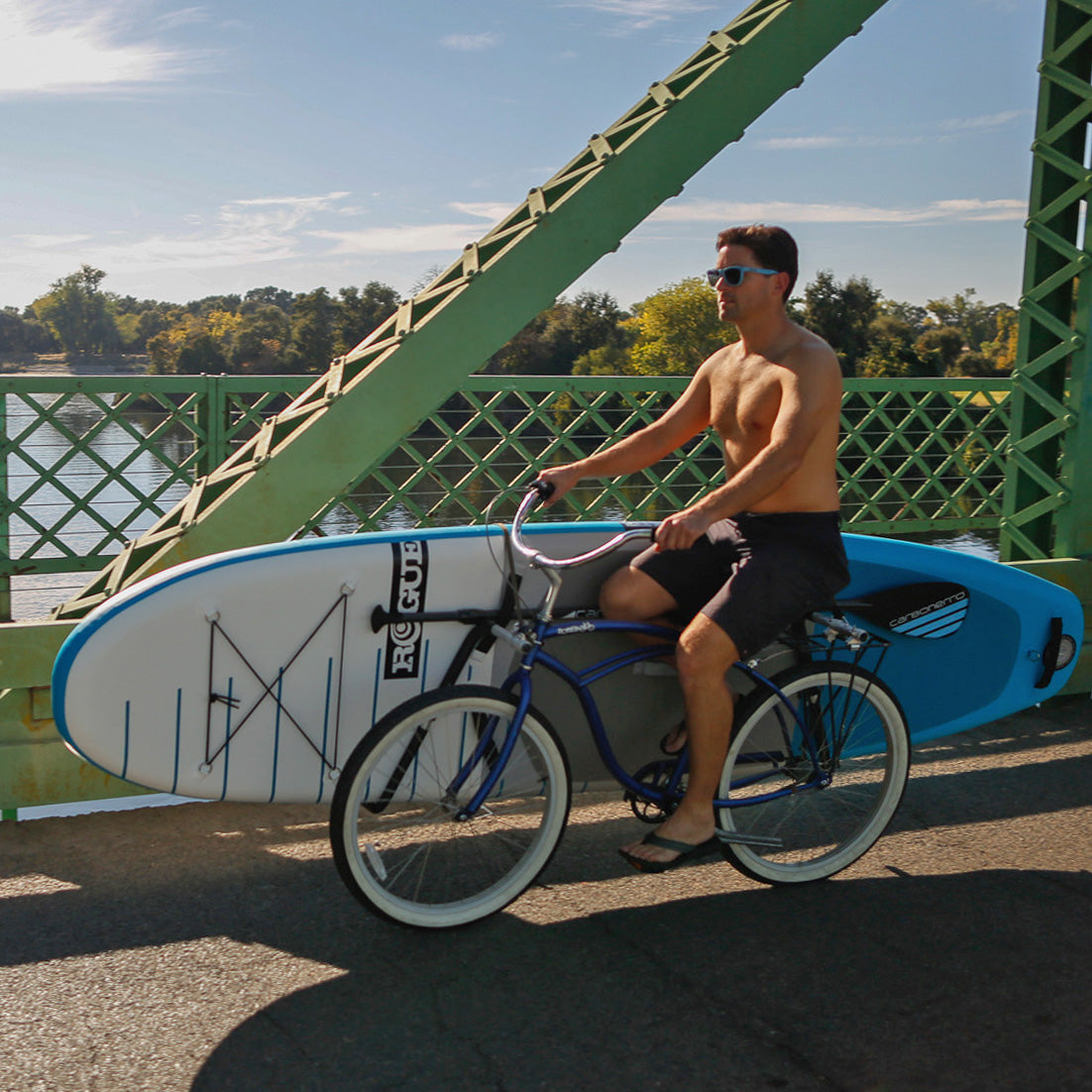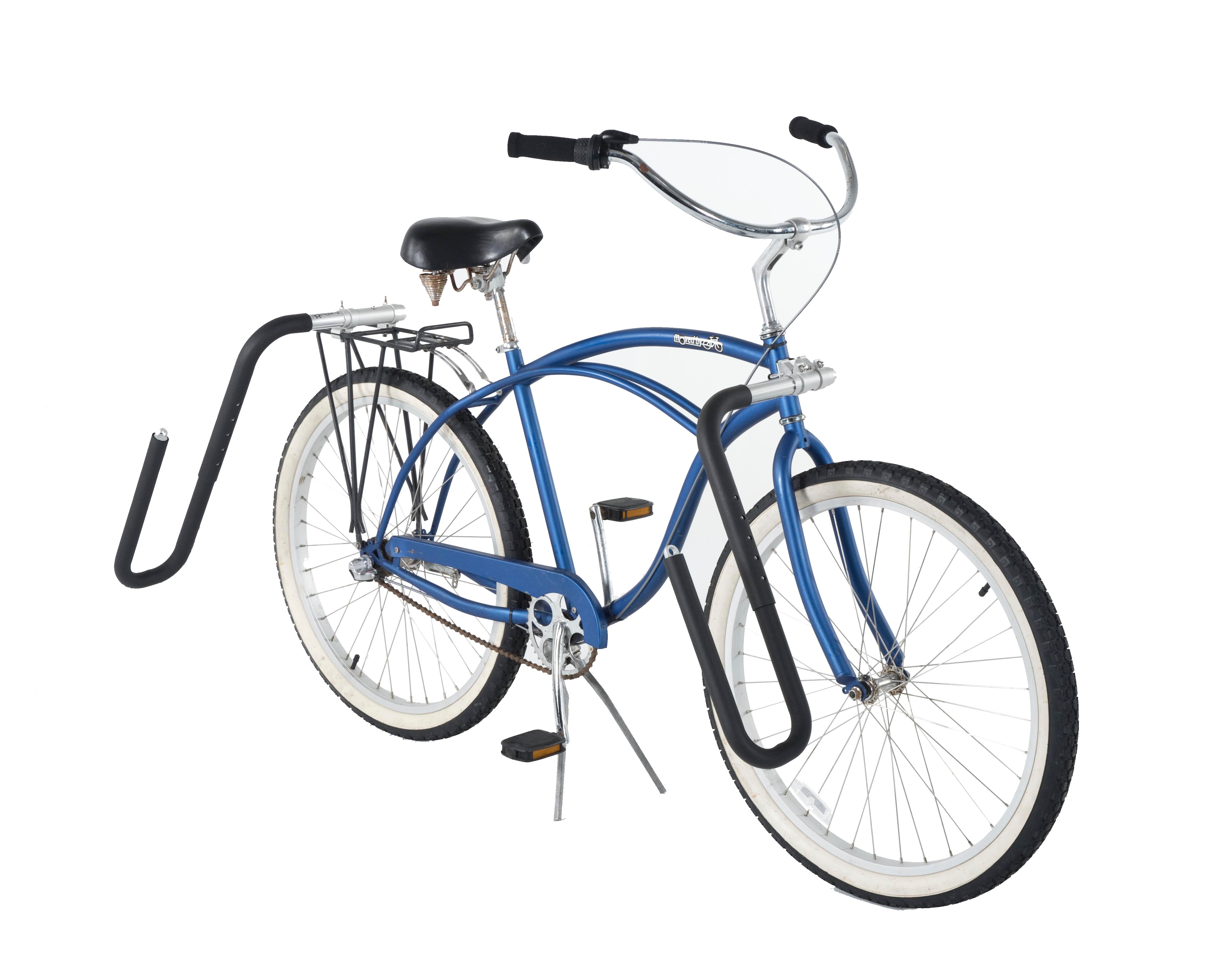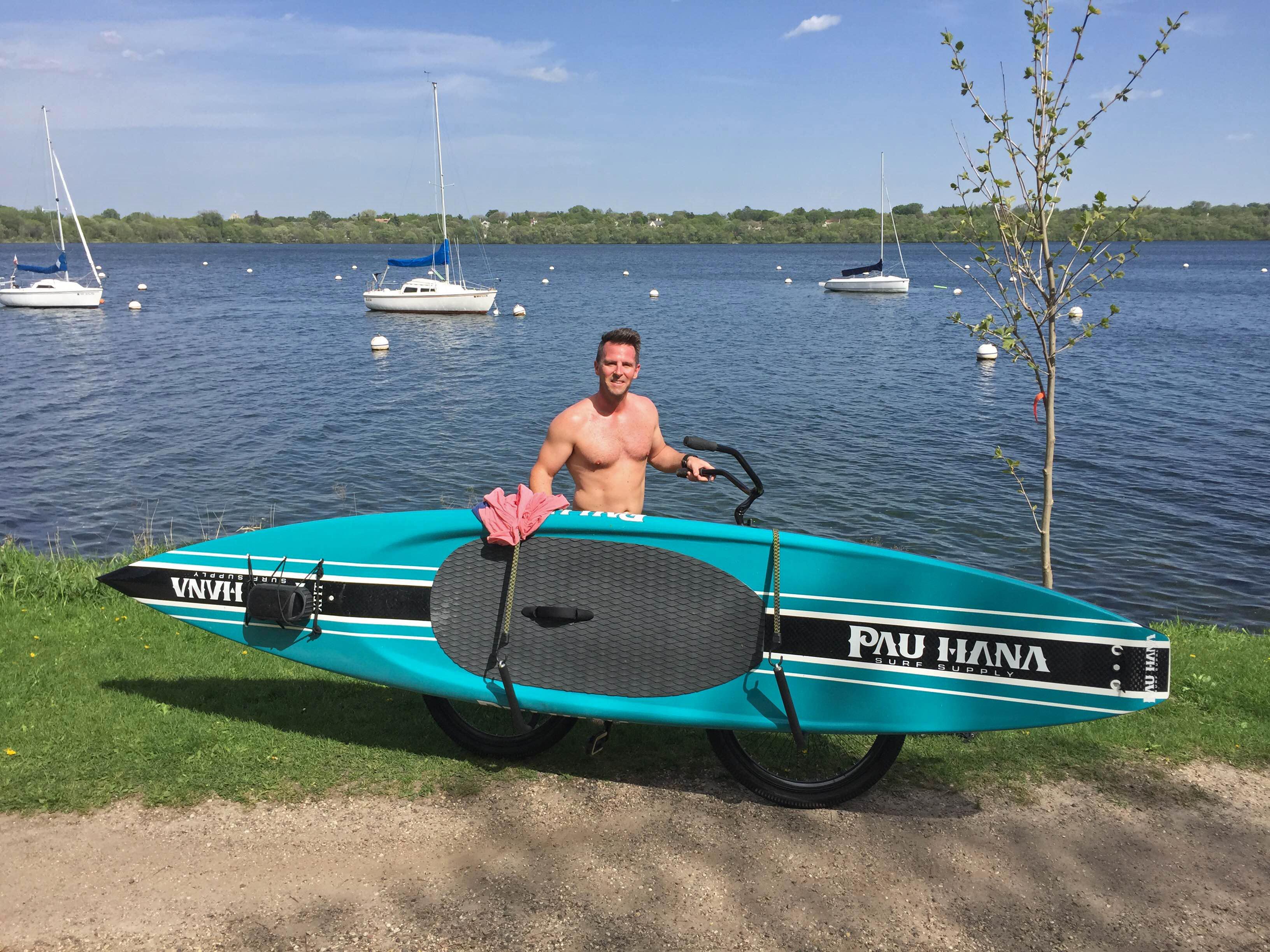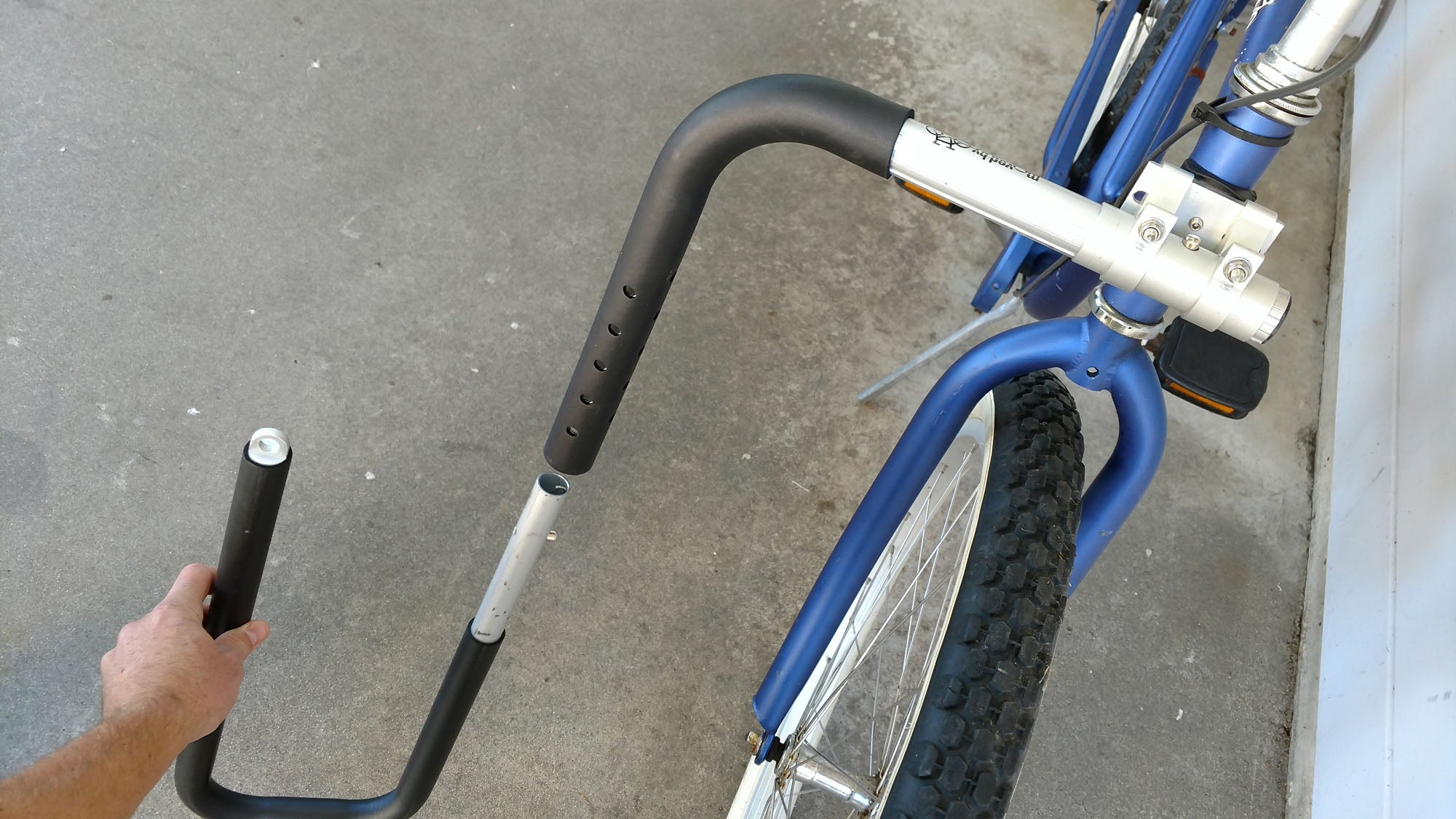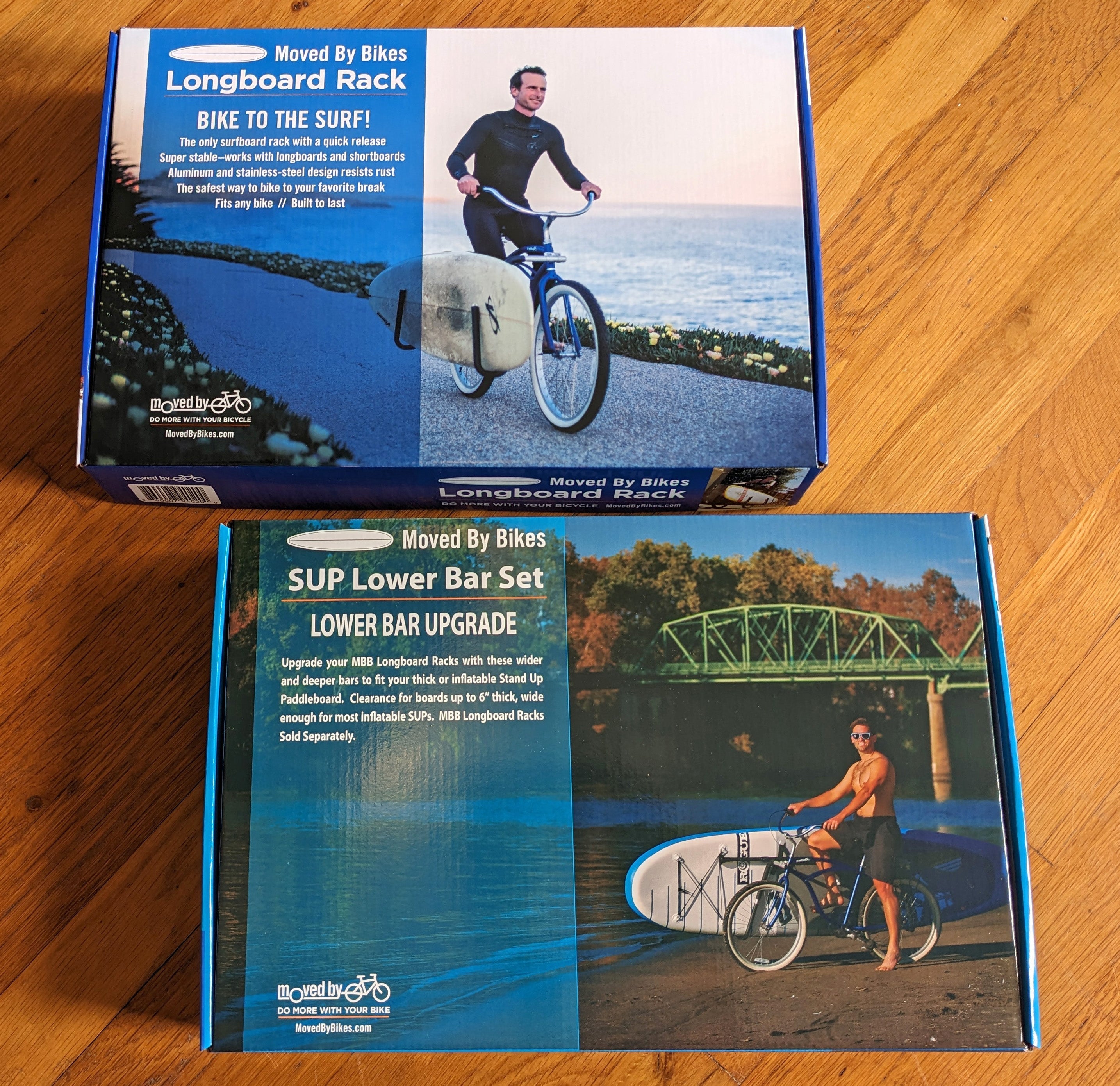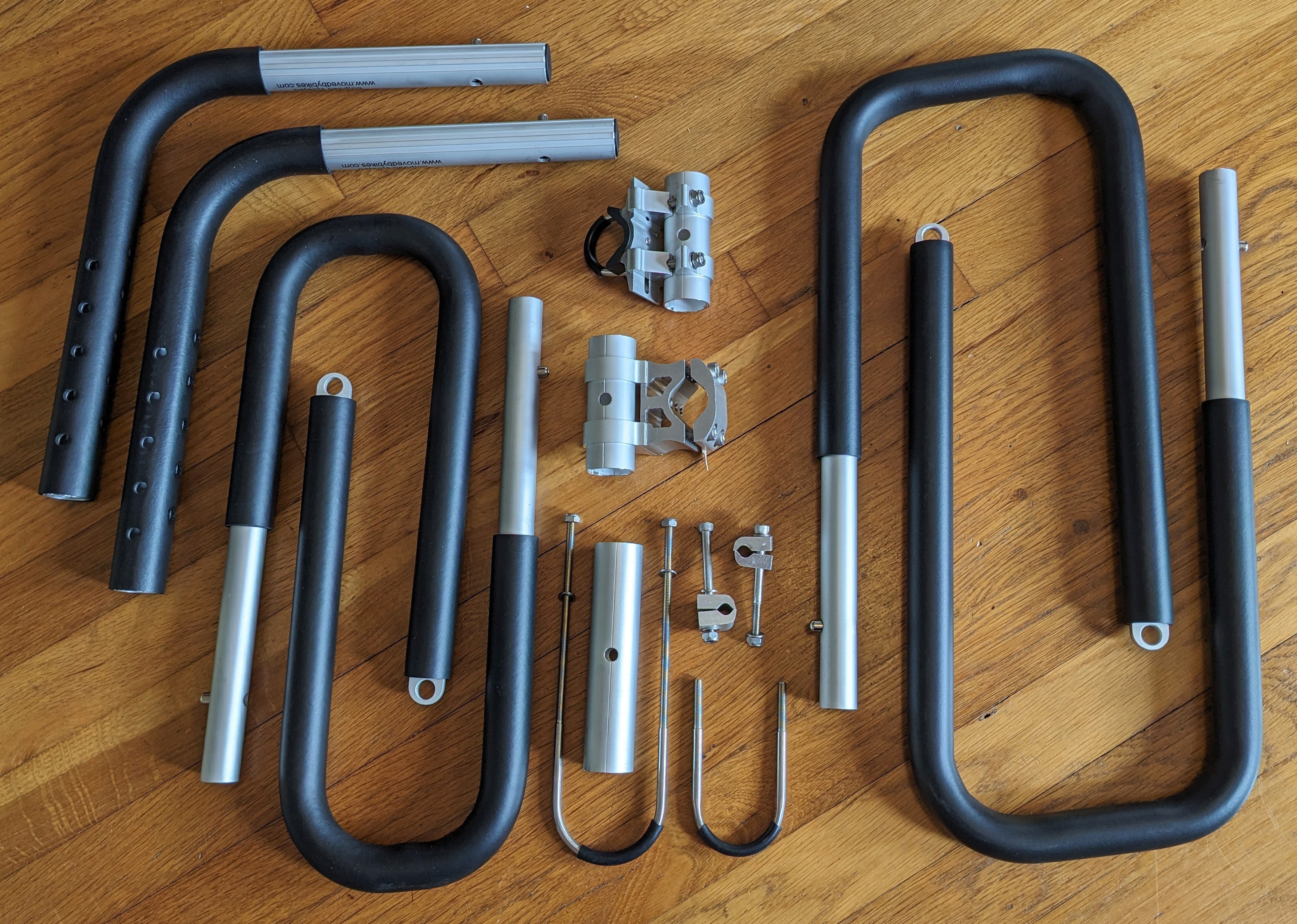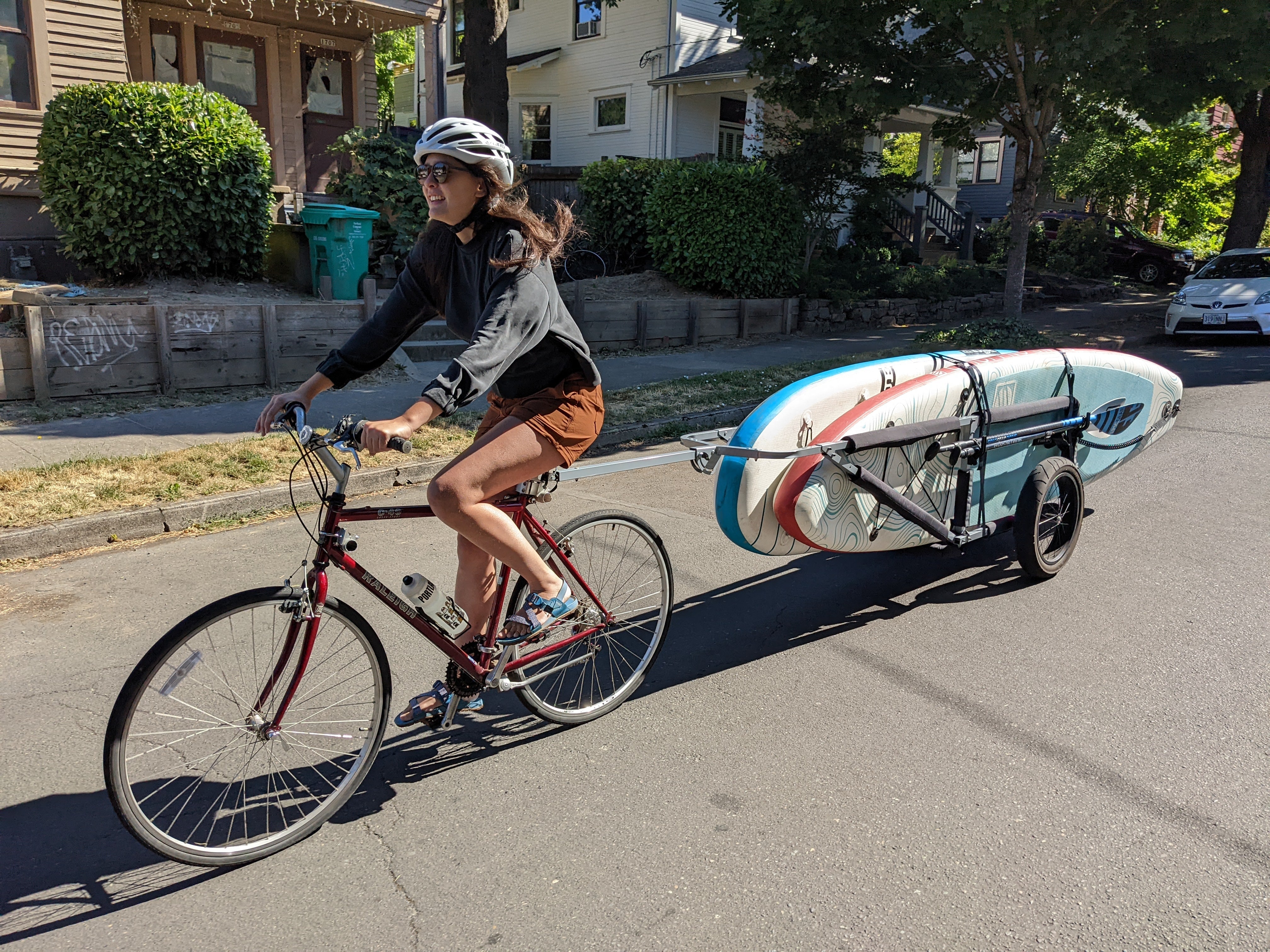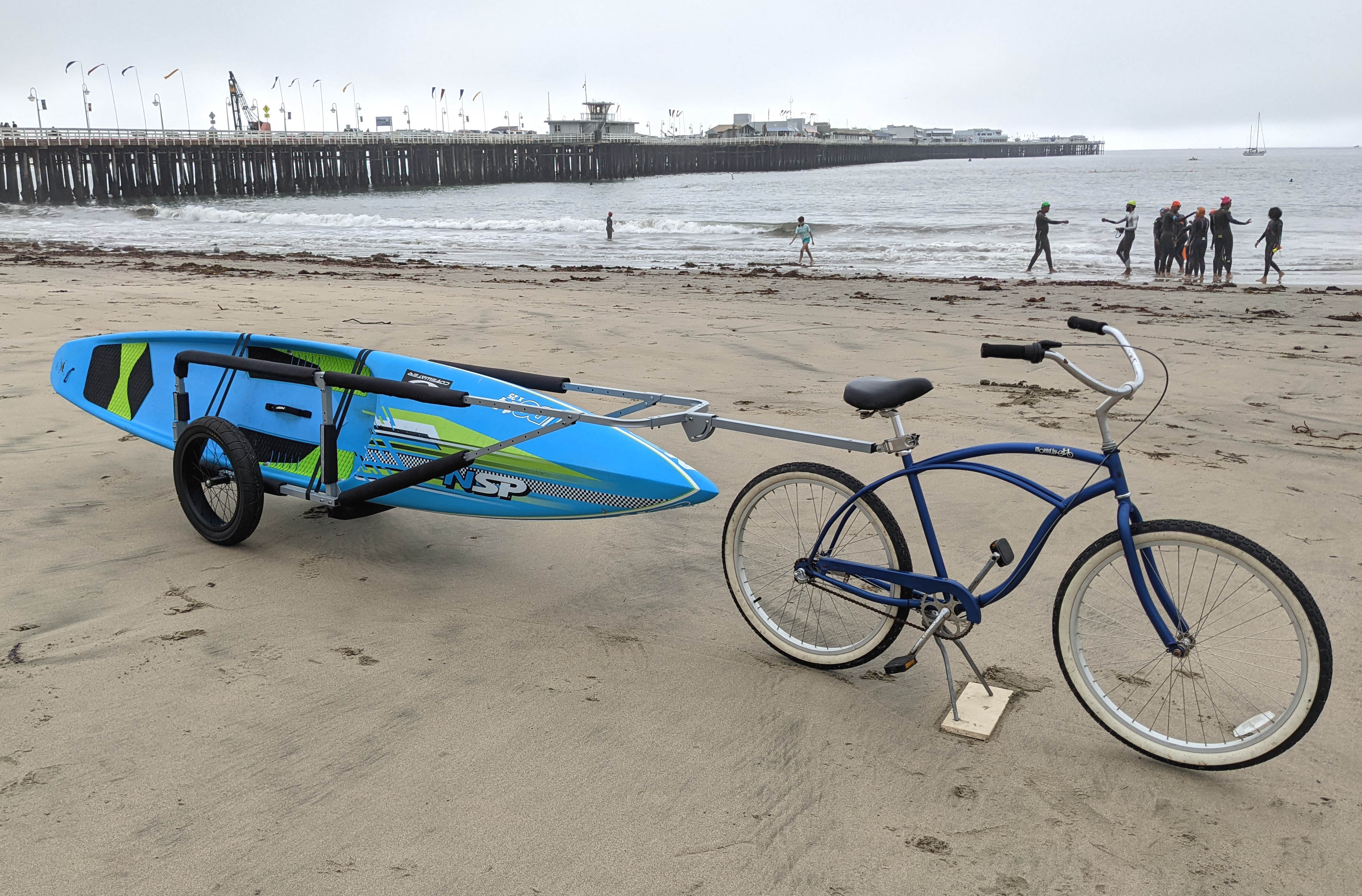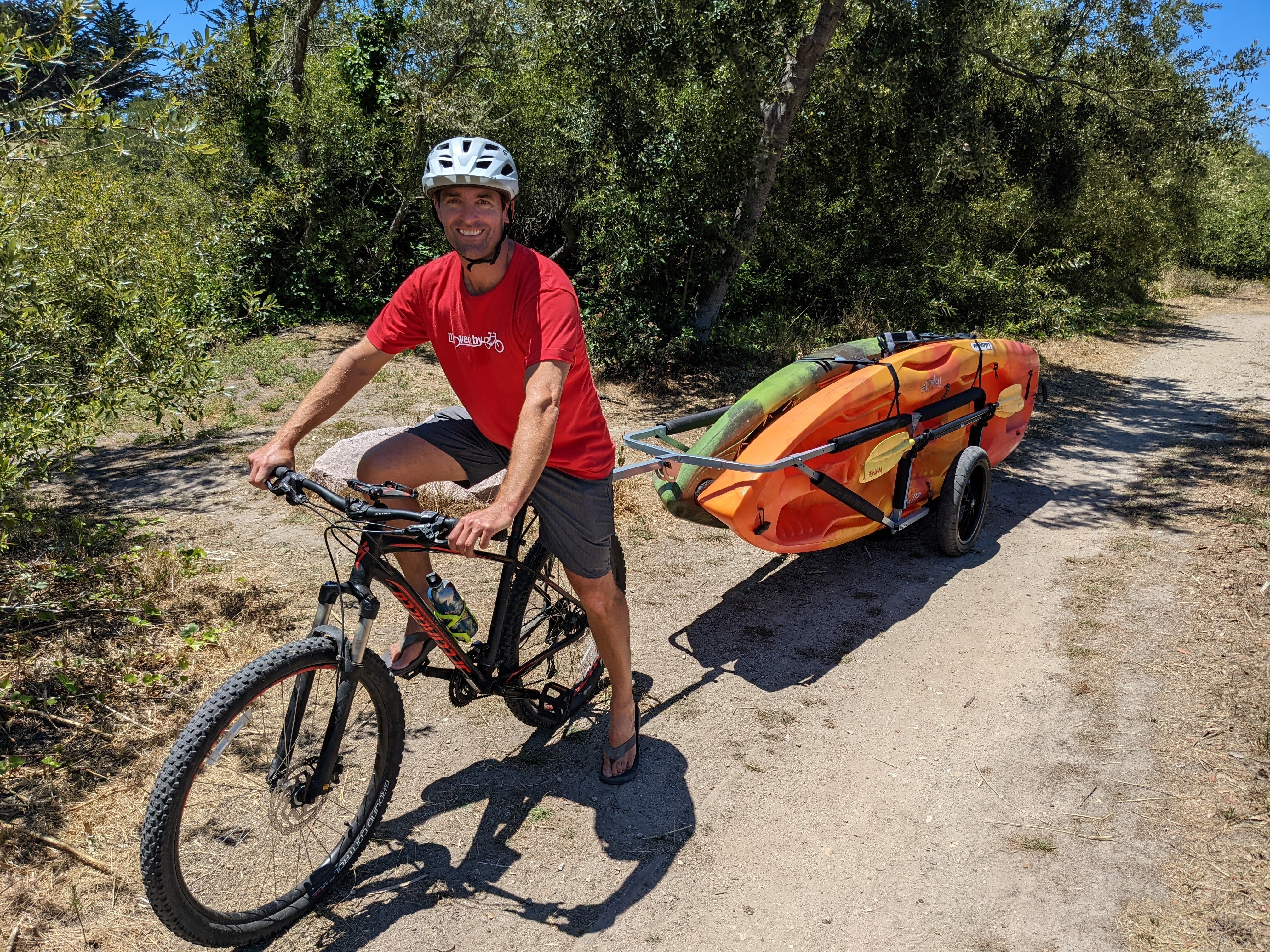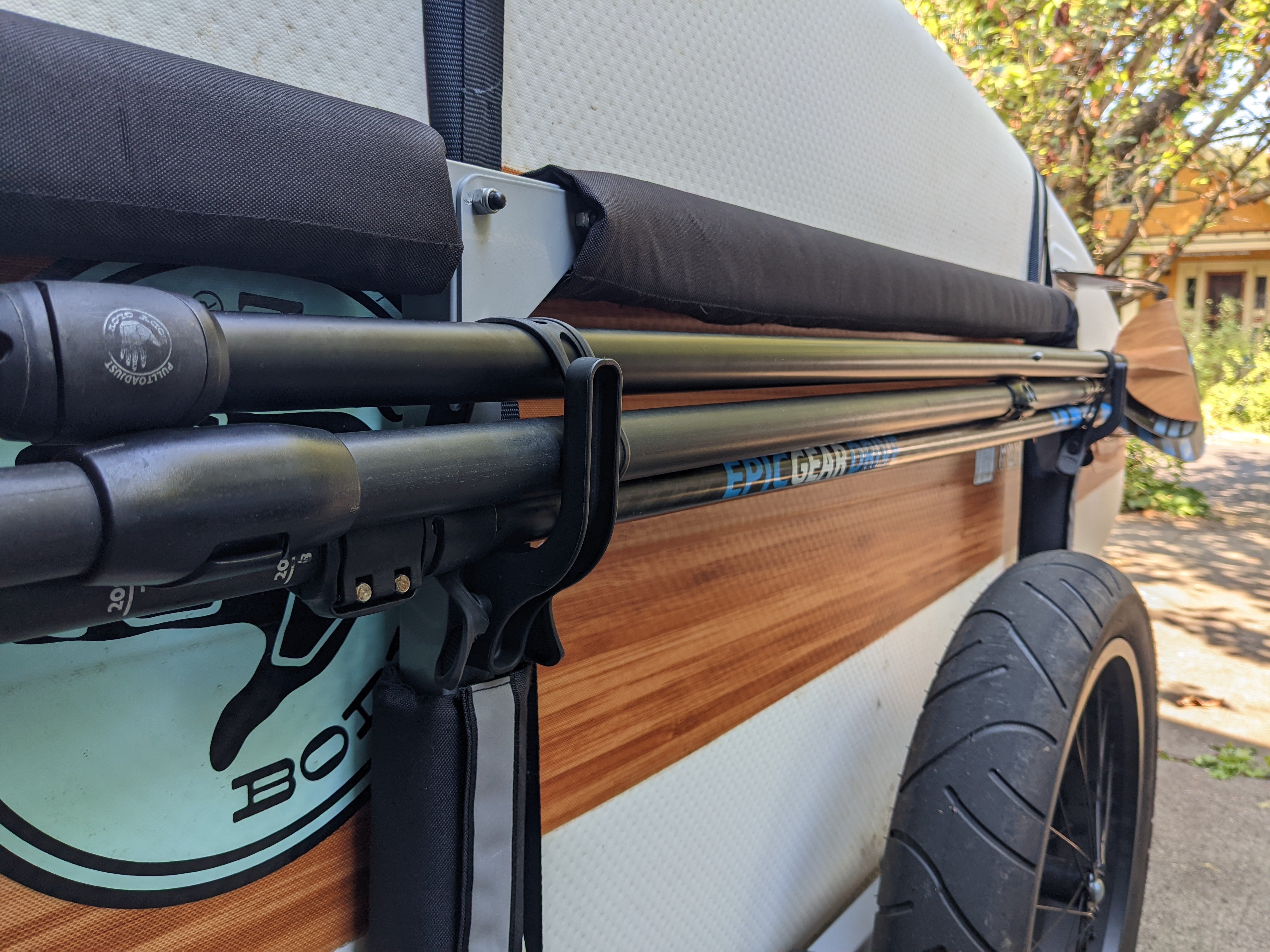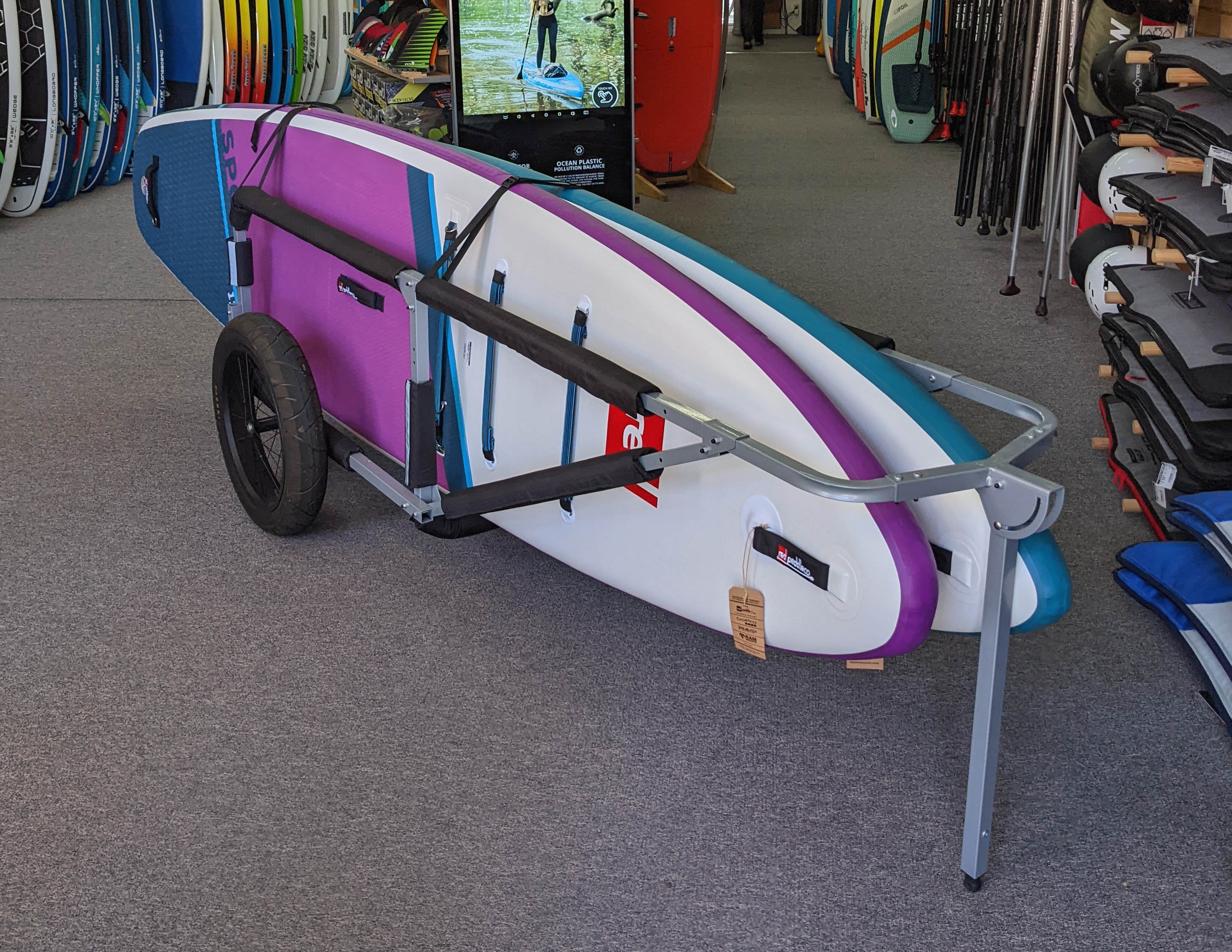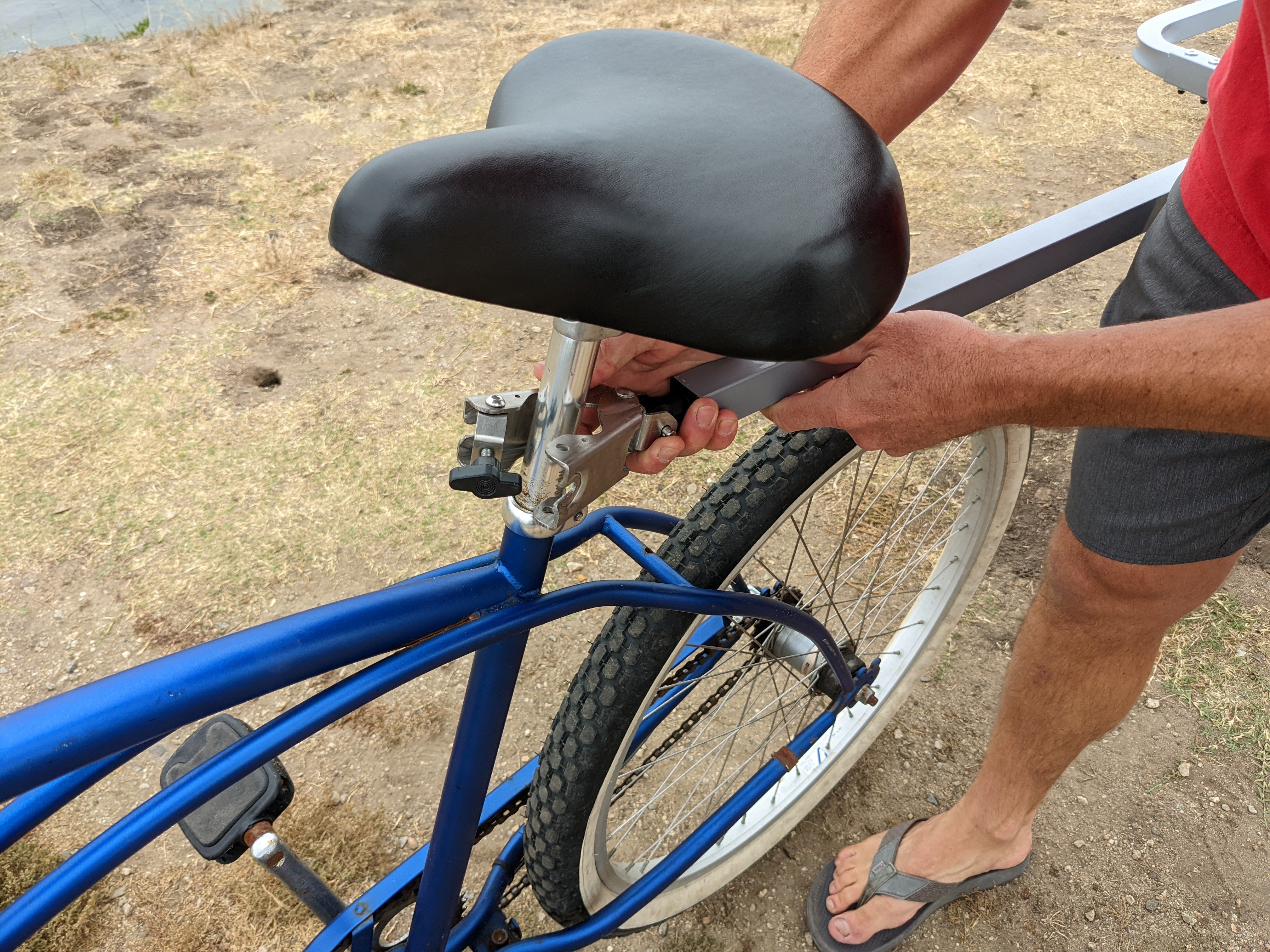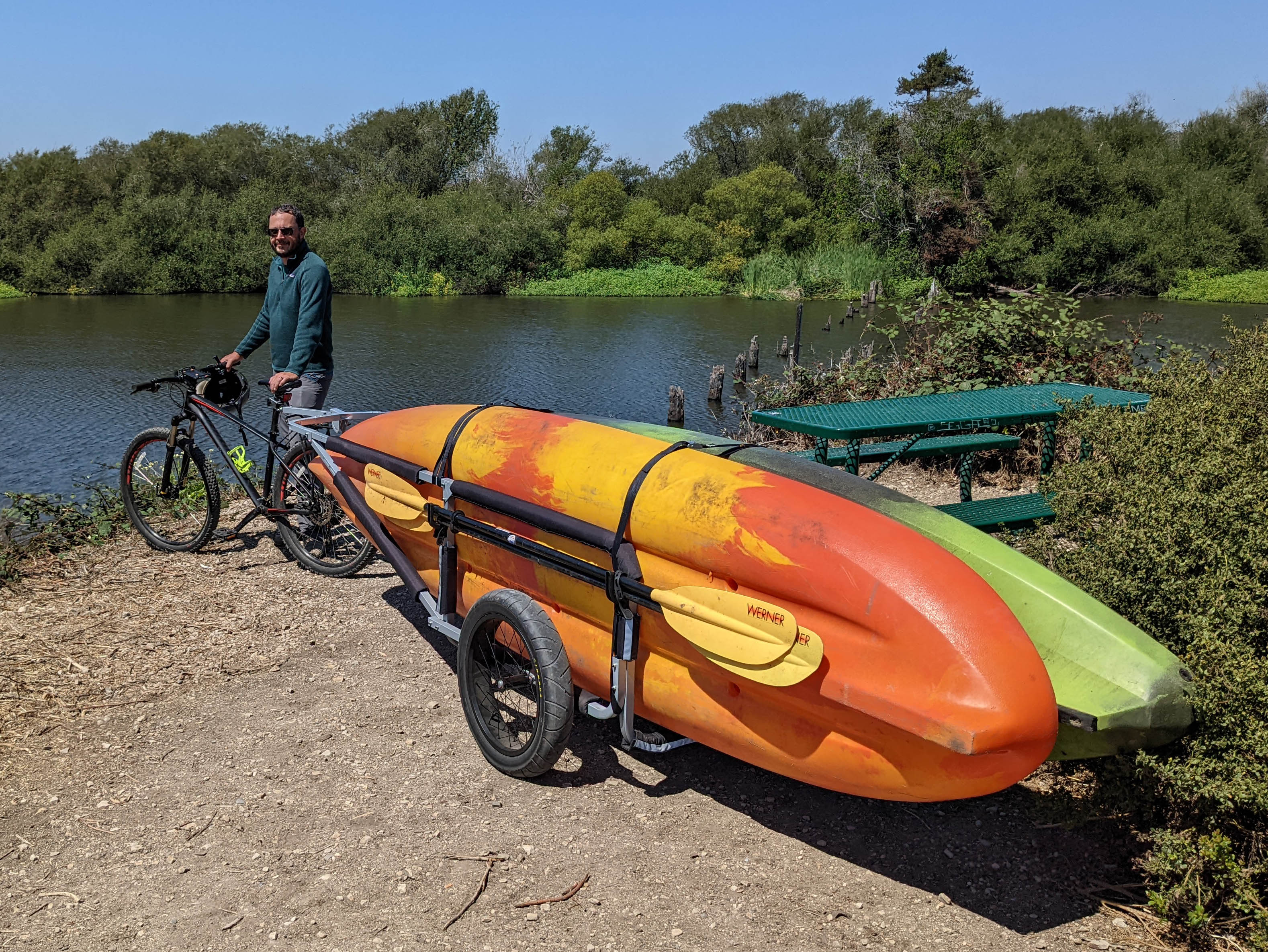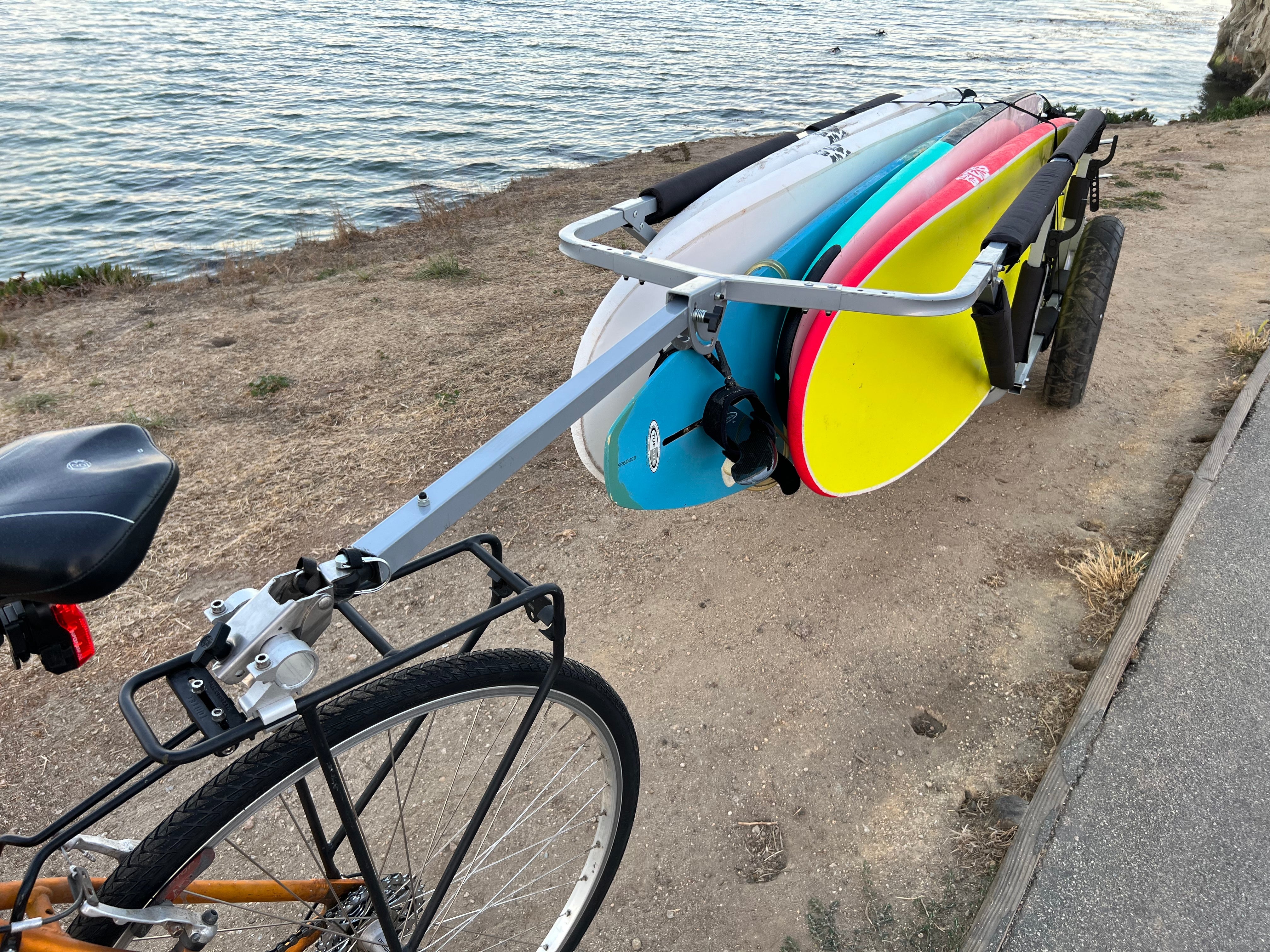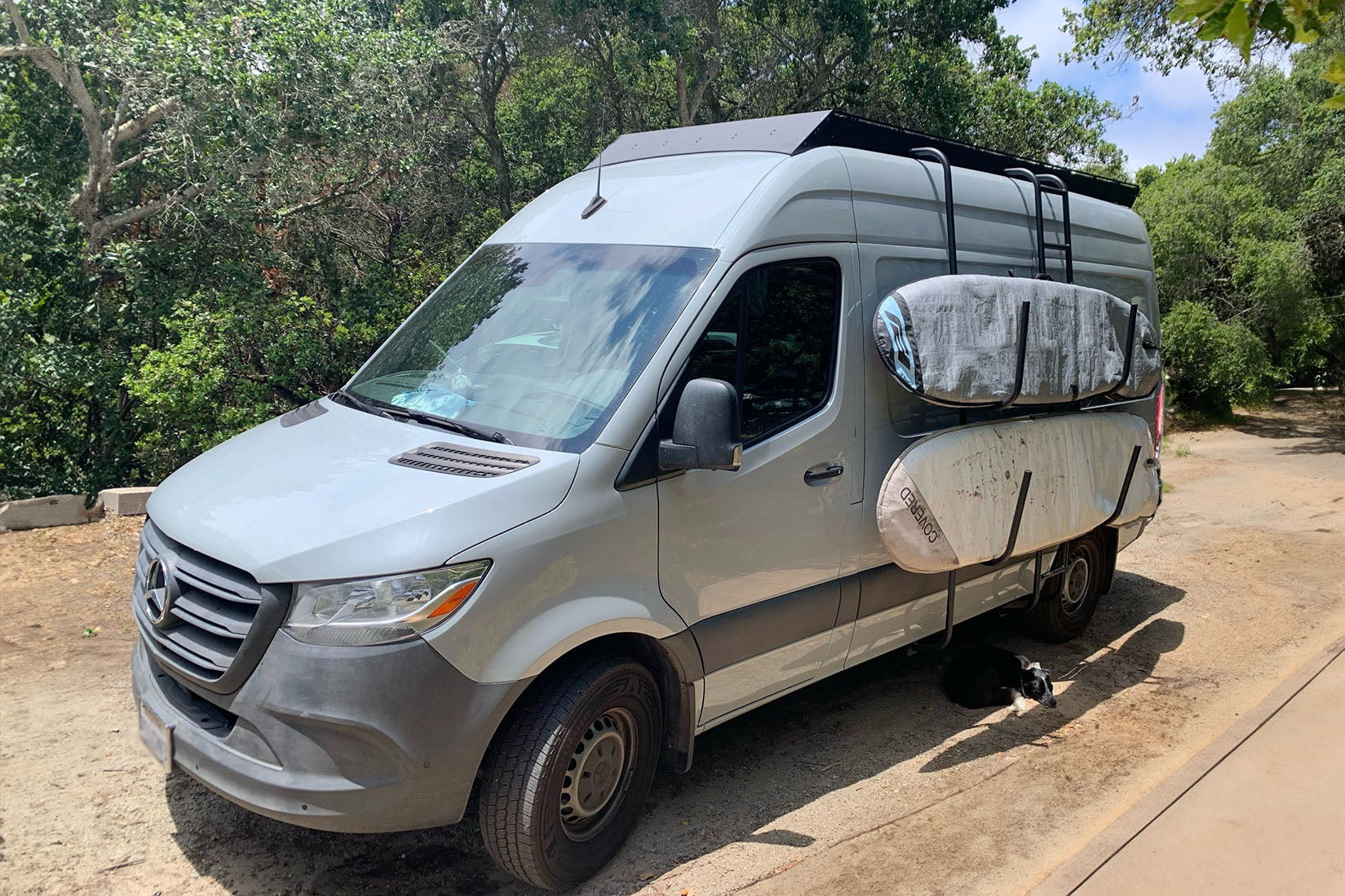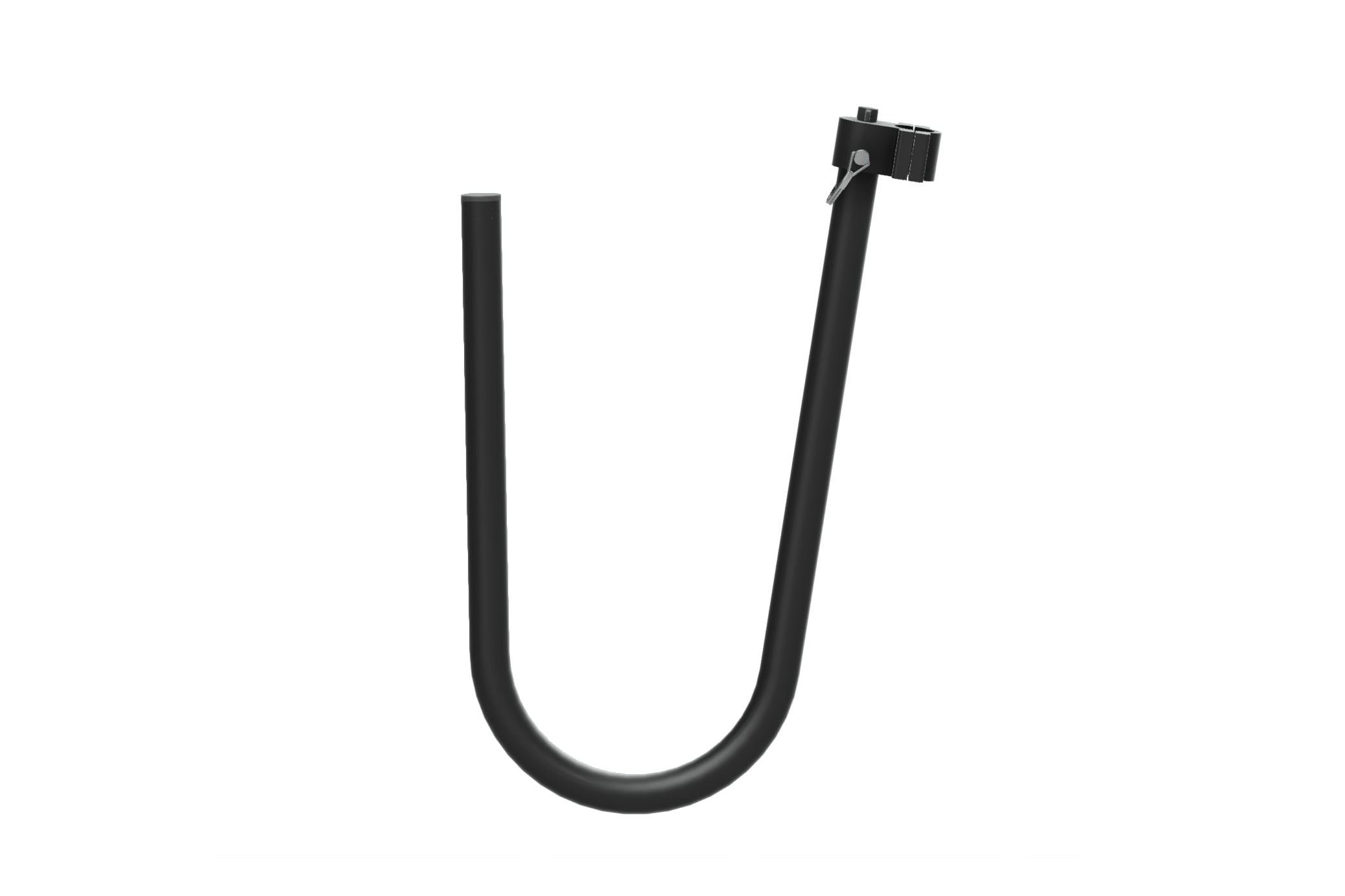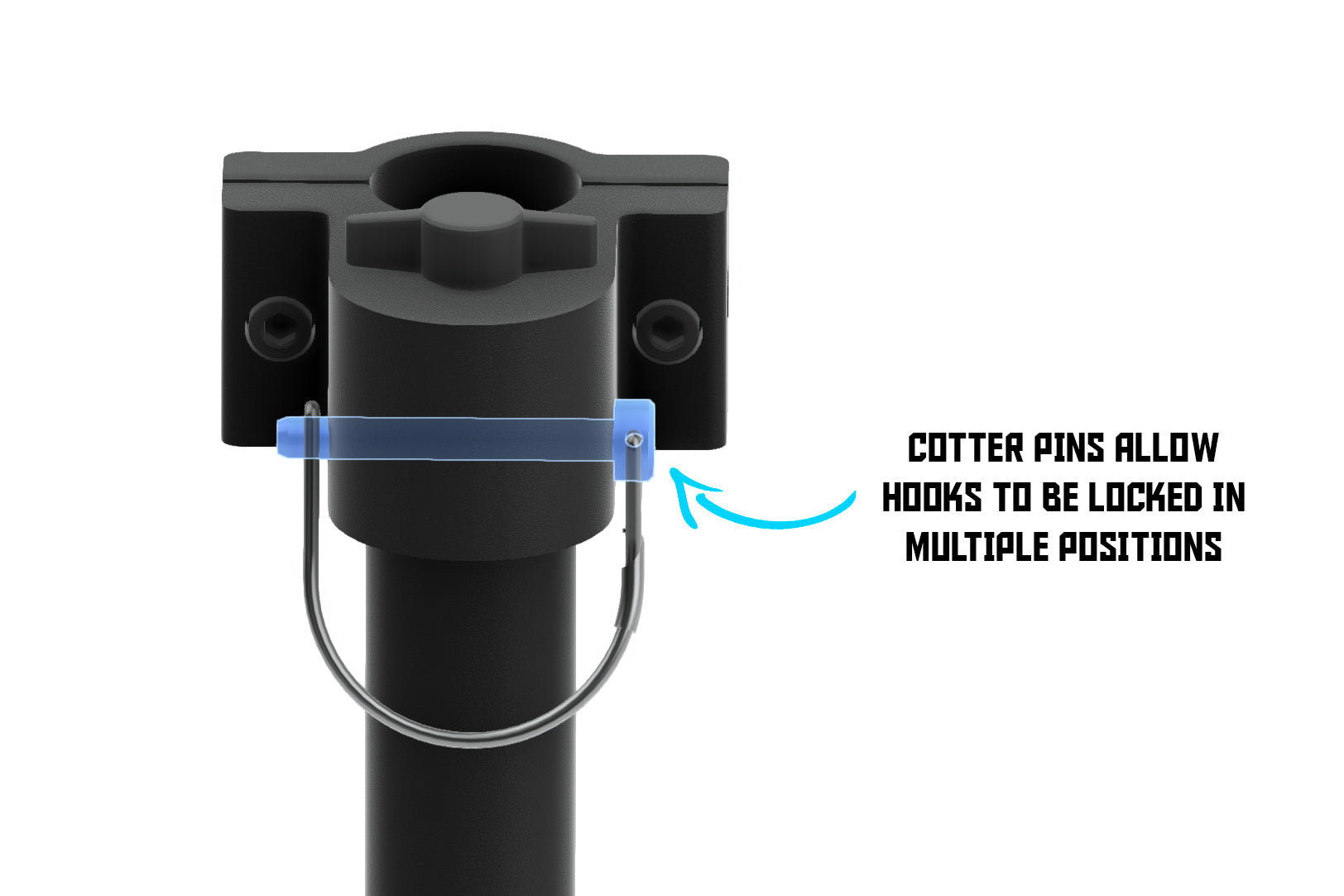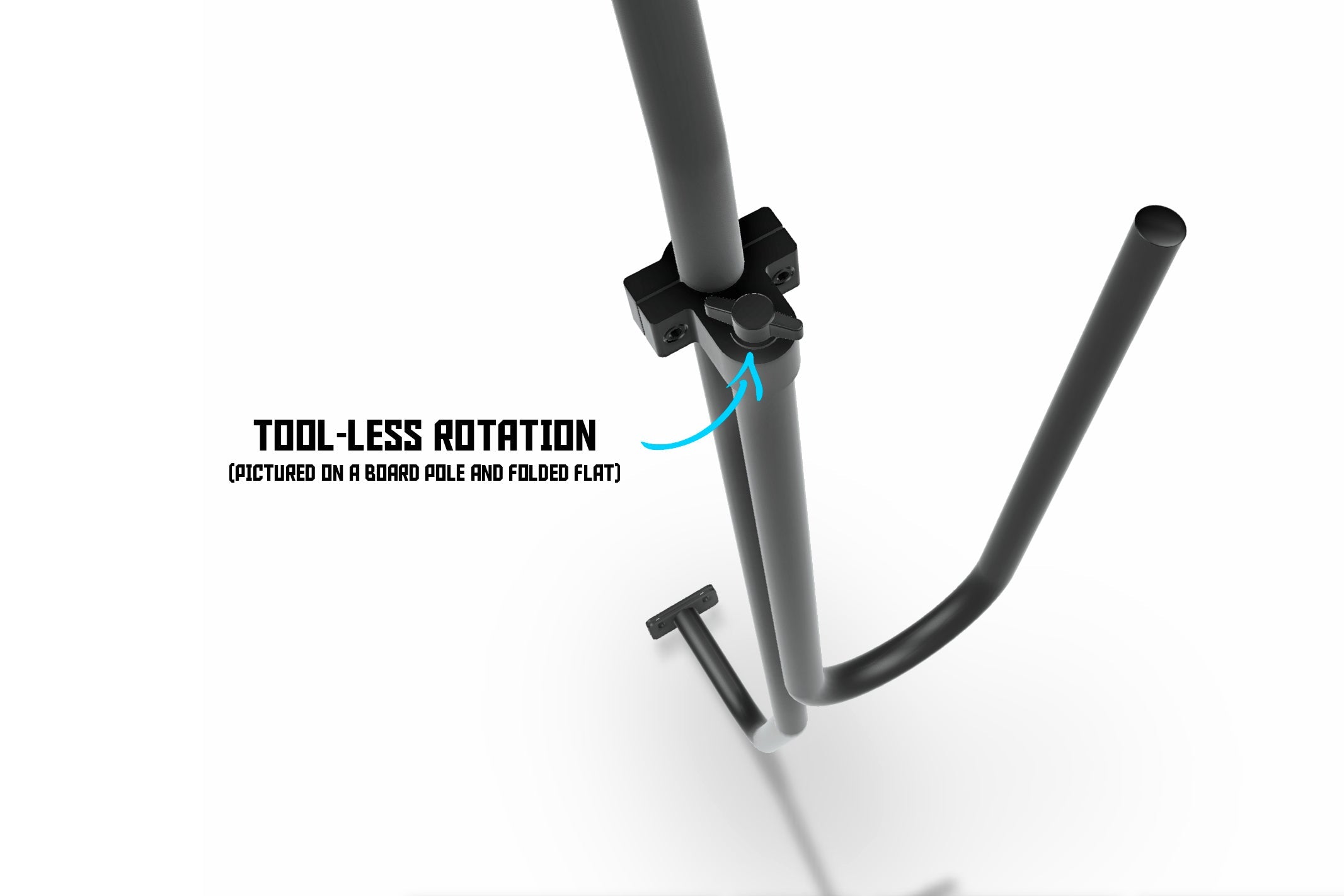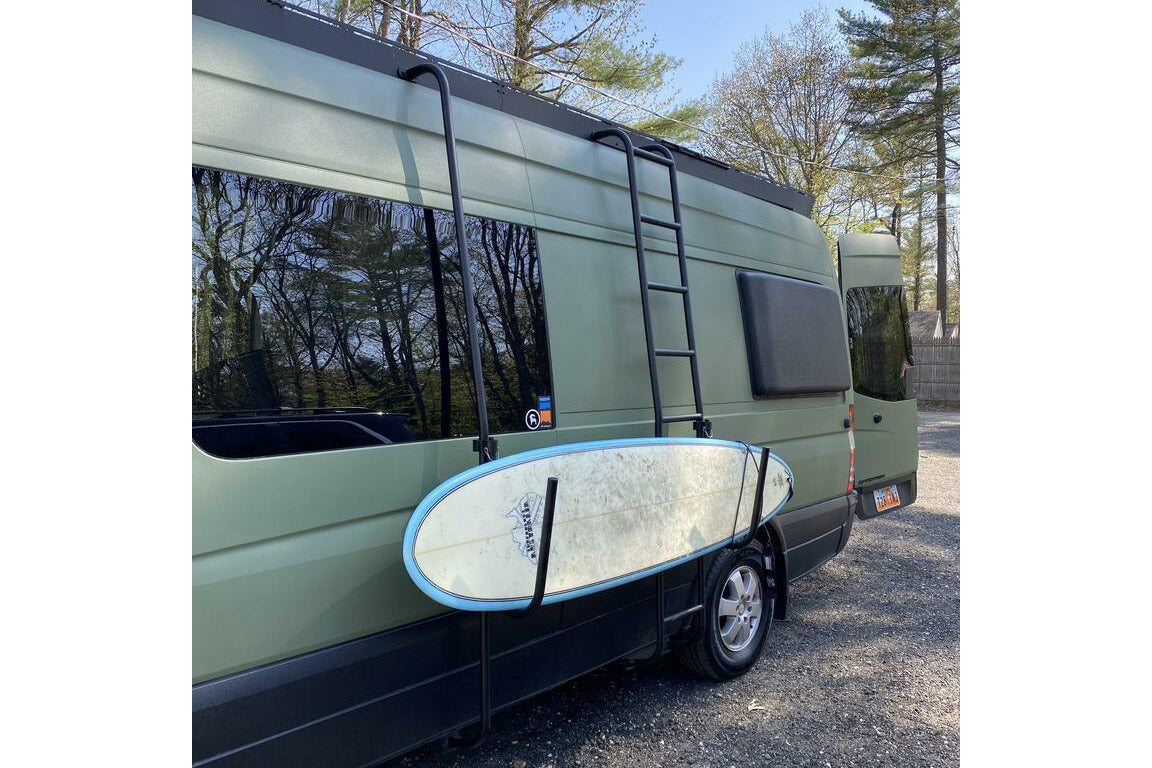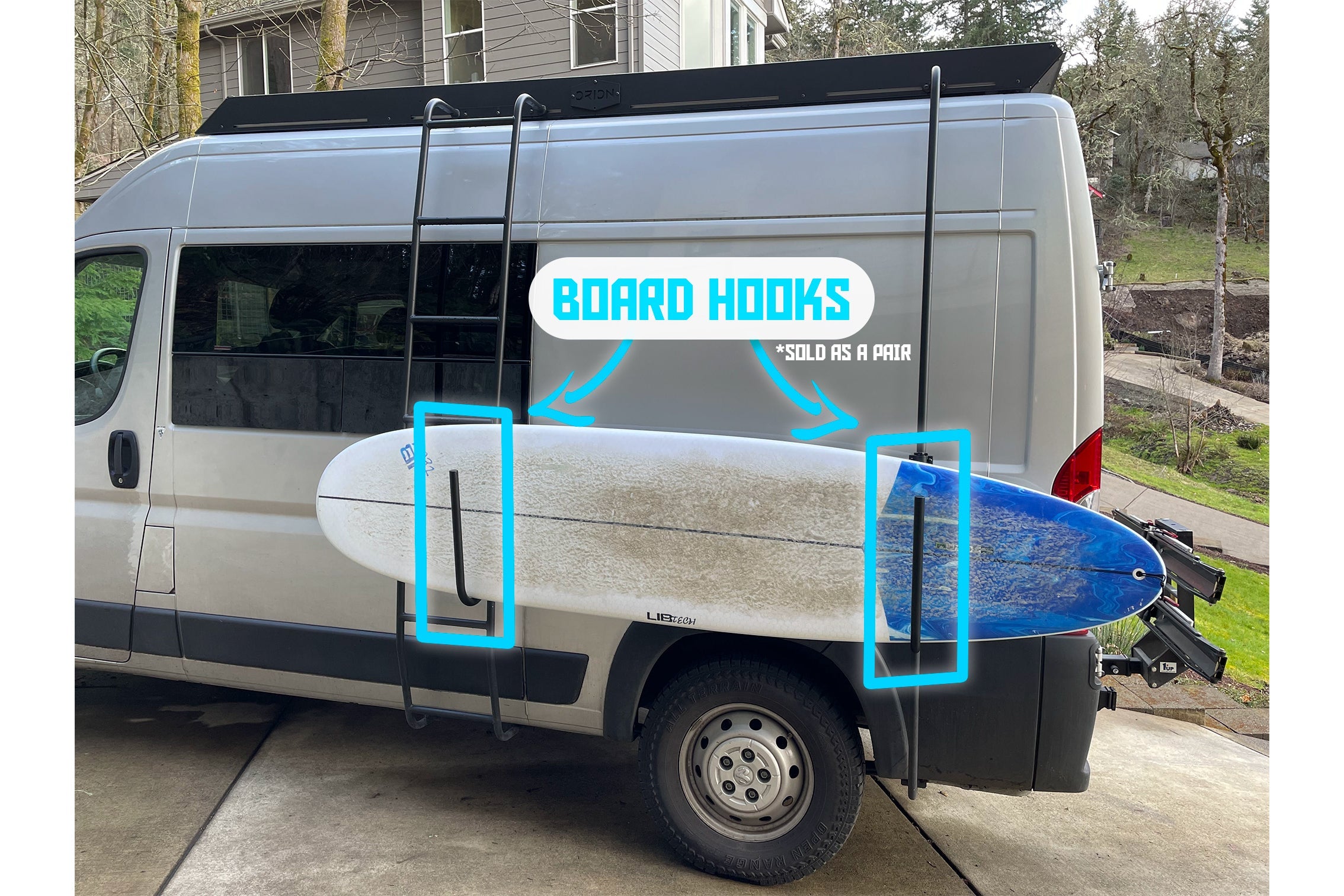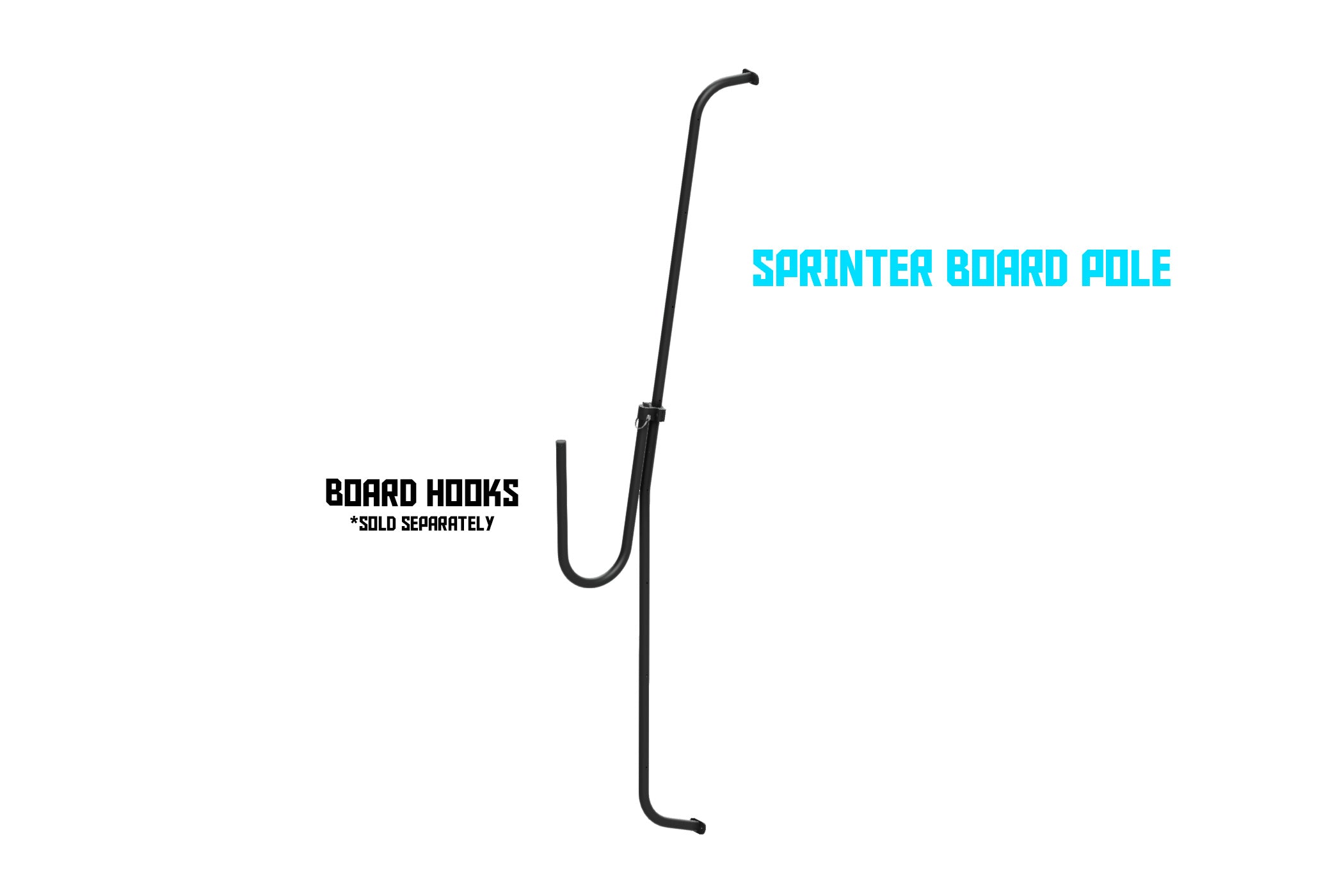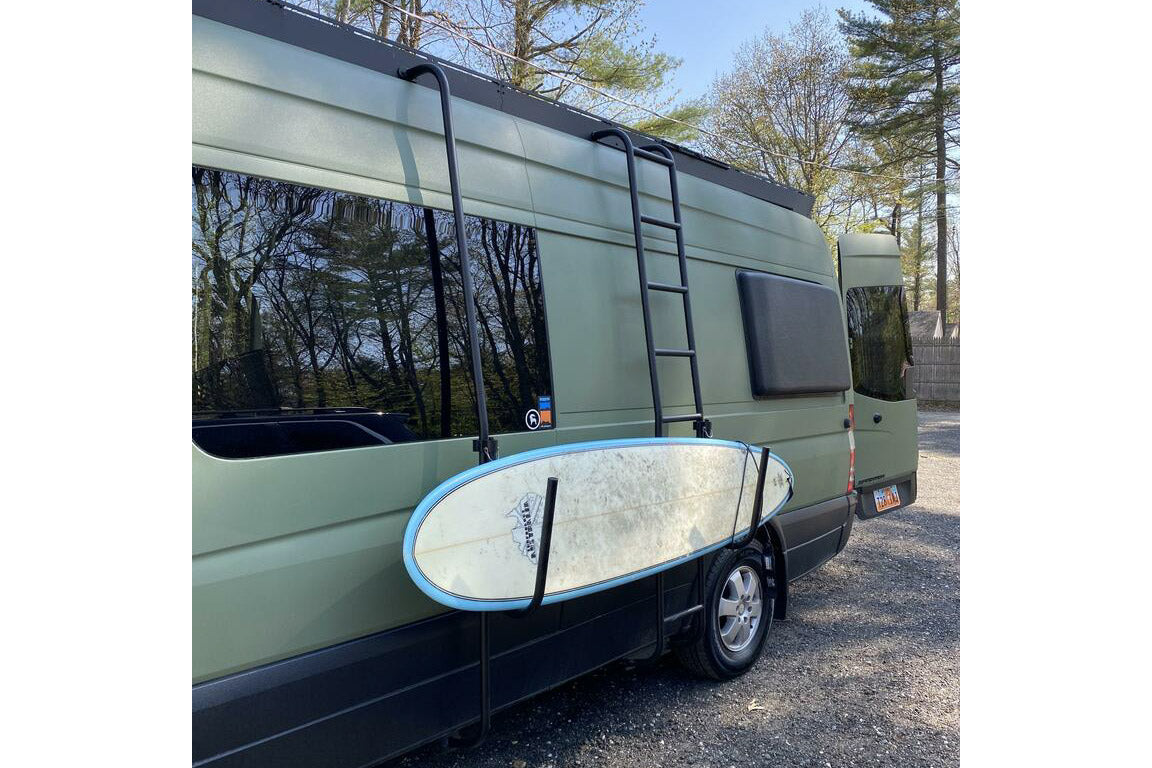Vehicle & Boat Sup Storage
Paddleboard Roof Racks | How to Choose and Install a SUP Car Roof Rack
Your paddleboard is ready – you’ve screwed in your fins, strapped up your leash, maybe grabbed your wetsuit, and are ready to hit the water, whether it’s the surf, the lake, the river, the bay, or otherwise. The only thing you need to do is get your paddleboard from your house to the water. For most people, this means using a SUP roof rack to strap your SUP to the roof of your car. Seems simple – throw it on the roof, strap it up, and get going – but there are a number of finer points about different roof racks and their use and setup to optimize the safety and protection of your paddleboard while it’s strapped to the roof of your car as you drive off at the crack of dawn to catch a glass session.
Choosing a Paddleboard Roof Rack for Your Car
There are lots of different types of paddleboard roof racks to choose from and there are a variety of price points in the roof rack market. Some are simple and affordable paddleboard roof racks, while others have more bells and whistles to strap up your SUP. In picking out your paddleboard roof rack, think about what will be the easiest rack for you to use that will fit your budget, your paddleboard, and your method of transportation. With that in mind, the biggest question in picking out the proper roof rack for your paddleboard is whether your car has rack bars on its roof.
Yes, Your Car Has Roof Rack Bars: Roof rack bars on your car are a bonus because they eliminate the step of having to secure your paddleboard rack to your car; instead, you secure the rack to the rack bars, which provides a very stable frame for paddleboard transport. The simplest mechanism is roof rack pads in the shape of cylinders that strap around your roof rack bars, generally with velcro. Next, you’ll need a set of tie-down straps. The tie-down straps will wrap around your paddleboard and the pads strapped to your rack bars to secure your SUP to your car. Very easy.
But paddleboards are a serious investment and if you want to be more secure in protecting that investment, you can find higher end roof racks that provide the complete package for your paddleboards in terms of safety and security. Thule is one of the biggest names in roof racks and offers a variety of specialized roof racks that attach to different types of roof rack bars, so you should be able to find a match. With the explosion in the SUP industry, it now offers a number of racks targeted specifically to SUPs. For example, its SUP Taxi and its SUP Shuttle are both engineered with padding in the most critical areas to keep your SUP ding-free, and the SUP Taxi includes heavy-duty locking straps so you can stop at the grocery store on the way home from your session and not have to worry about whether your paddleboard will be gone when you come out. Another solid option is this paddleboard roof rack, which uses big foam spacer blocks to secure your car’s roof rack bars and provide robust support for two paddleboards.
No, Your Car Doesn’t Have Roof Rack Bars: Even if you don’t have roof rack bars on your car there are car roof racks designed with you in mind. The standard solution to the no-roof-rack-bars problem is a roof rack designed to strap around your car’s roof and then strap around the paddleboard you put on that roof. Imagine a figure 8: the bottom loop of the 8 is a strap that wraps around the roof of your car and secures with a clamp on the underside of your roof. The top loop of the 8 is a strap that wraps around the paddleboard you will put on the roof. The middle of the 8 is pads that your SUP will rest on while it’s on top of your car. This design is generally 1 piece that is fully connected and is not have separate pads and straps. As mentioned, this is the standard roof rack for cars without roof rack bars, but you can tailor it to your needs with a few options, for example, an inflatable car roof rack, a single wide car roof rack, a locking car roof rack, or a hard paddleboard roof rack.
In addition to the fundamental design of your paddleboard roof rack, you’ve got to check out some of the finer details of the rack with your paddleboard’s safety in mind. First, for any clamp, support, or piece of the rack that will come in contact with your paddleboard – it better have padding around it. Otherwise, it could very easily scratch or ding your SUP while you’re loading it onto the roof or driving down the road. The second thing to consider is whether the rack has spacer pads (or you want to buy spacer pads separately). Some separation between your paddleboards is definitely advised if you are stacking them on top of each other, and spacers will get the job done best. Also if stacking multiple boards, the rack’s straps must have enough length to wrap around your paddleboards. If you grab a set of surfboard straps there’s a chance they might not be built for the size of paddleboards. Finally, I’ll say it again – your paddleboard is a huge investment, so lock it up! Grab a locking paddleboard rack, locking paddleboard straps, or if you have an existing non-locking rack you can outfit it with a separate paddleboard lock system.
Prepping Your Paddleboard for Roof Rack Travel

We’re getting closer to strapping up your paddleboard, but there are still some maintenance items to take care of on your paddleboard before you throw it on your roof.
Paddleboard Bags: You should consider putting your board in a paddleboard bag or paddleboard sock before strapping it up. This might be overkill in some situations, no doubt (like a quick trip), but a lot of times it will be beneficial for your paddleboard. At the least the bag will save your paddleboard from some sun exposure that can age the fiberglass or other materials that your board is made out of. It will also provide a layer of protection from the general debris that flies up off the road (rocks, dirt, trash, etc.) or from the car in front of you (cigarettes, trash). Also if you’ve waxed up your board and it’s hot out your wax could melt and run, even with the board facing down, but that generally won’t happen if it’s in a bag.
Leashes: I advise that everyone take a couple of extra seconds and remove the leash from your paddleboard before throwing it on your roof. Leashes are bound to get loose in the wind and can only cause trouble. Don’t risk something crazy happening, remove your leash.
Fins: Yes, it’s best to leave your fins in your paddleboard on a road trip as they can act as a last line of defense against your paddleboard flying off your car. Imagine your straps getting loose, and with the direction of your car forward, your SUP starts to slide backward a bit. At some point, the fin sticking up in the front of your car will catch on the straps and prevent your paddleboard from sliding any further backward. Depending on whether you’re stacking a few paddleboards on one another, you’ll have to watch how you stagger them backwards to make sure your rack can support them all properly.
Securing Your SUP Roof Rack to Your Car
Once your paddleboard is ready to go, you can attach your SUP roof rack to your car. Because of the different roof racks, each will be attached differently, but it’s important that no matter what rack you have you take care in installing it properly. For rack pads, velcro them on your roof rack bars tightly. For straps, clamp them down tightly and check them for any worn or weak spots. For more specialty paddleboard racks, follow the instructions and make sure they fit properly with your car. After you’ve installed the rack, do a quick post-inspection so you really know that everything is snug and secure. You don’t want to lose a paddleboard because you were in a rush and forgot to attach a part of your rack.
For cars with roof rack bars, the standard setup is roof rack pads that fasten to your bars and act as a cushion between the bars and your paddleboard, and a strap system to secure your paddleboard to the rack pads. The pads fit around the roof rack bars and secure with (usually) velcro. Secure the two pads, one on the front rack bar and one on the back rack bar, and make sure that they’re straight so when you set your paddleboard on them it won’t be rubbing up against the roof rack bars at all.
For cars without roof rack bars, the focus in using the one piece rack system is on securing it to your car. Set the pads out in the general area on your roof where they need to end up, 1 towards the front and 1 towards the back. Straps will be protruding each side of the pads – run the straps underneath your car’s roof so that they meet in the middle, than clamp the front 2 straps together and the back 2 straps together. You’re free to clamp the straps as tightly as possibly because they secure against your metal car (different when strapping down your paddleboard). Double check that your paddleboard is resting fully on the pads and is straight (parallel with your car).
If you have a small car, you may have a problem! Paddleboards come in different sizes, but they’re all pretty big, and if you have a small car the straps on your roof rack setup may not be wide enough apart to adequately secure your paddleboard. For example, if you’re trying to strap a rack to a car without roof rack bars, it secures underneath the roof via the inside of the car. Generally, the front strap runs through the open space created by the front door and the back strap runs through the open space created by the back door. If you have a coupe, you only have a front door! So both your front and back straps will have to be secured via that space. The distance then between your front and back roof rack pads and straps will not be that great, and if you strap in your paddleboard the straps may only be 3 or so feet apart. On a 12 foot paddleboard, that leaves almost 5 feet in the front and back of the board without any support. A potential solution is to take a page from the transport of other large equipment, like canoes and kayaks, and to get additional tie downs straps that secure the front and back of the paddleboard to the bumper and trunk of your car. The point is, it is tough to transport big paddleboards on small cars without roof rack bars. Keep this in mind when planning your next SUP adventure.
Paddleboards on Your Roof – Upside Down and Backward
Here’s how to load your paddleboard onto the roof of your car:
Bottom of the paddleboard up: Logistically, if your fins are in, the rack will only work with the paddleboard fins facing up in the air, or else your fins would hit your car’s roof. Also, you prefer not to expose your wax or board pad to the sun, so top side faces down. And generally strapping the board upside down is better for travel based on any concave of the paddleboard
Fins in the front: It may sound like a Jimmy Buffett song, but as mentioned, in a worst-case scenario, fins act as a last line of defense against your paddleboard wiggling free and flying off your car because if your boards start to slide backward, the fins catch on the straps and restrict how far backward the boards slide (i.e. not off your car). Also, depending, it’s more likely the tail of your paddleboard is thicker and flatter, so it has more strength and better shape to cut through the air as you’re cruising down the freeway.
Securing Your Paddleboard to Your Roof Rack
Once you’ve loaded up your paddleboard, it’s time to strap it down.
For cars with roof rack bars, it’s all about feeding the straps around the bars and your paddleboard in the right direction for max security. You’ll have 2 straps, one in front and one in back. Start with the clamp end of the first strap on the outside of the board, underneath the roof rack bar. Run the strap across the top width of the paddleboard to the other side of the board, underneath the rack bar, and back along the width of the board. There it will meet the clamp end and you will tighten appropriately. Tie off the excess strap and give your paddleboard and the straps a couple of pulls to make sure nothing is loose.
For cars without roof rack bars, securing the roof rack straps is a bit more straight forward. The front straps and back straps each extend from both sides of the car. Pull them up from each side over your paddleboard and secure the plain end through the clamp and tighten. Repeat for both front and back straps, once again giving the straps a couple of pulls to double check.
Don’t overtighten your straps. Avoid damaging your paddleboard by wrenching your roof rack straps too tightly around it. Different paddleboards are made of different materials, but you can crack fiberglass or other board materials if you pull your straps too tight. Find that just right tightness for your paddleboard.
Mind your straps. Take the extra couple of seconds and make sure your straps are straight and not twisted around your board for maximum contact and hold. Then tie off the ends of the straps, nothing good can come from them flapping in the breeze.
Stacking Multiple Paddleboards
When you’re heading out with a couple of your friends and need to stack multiple paddleboards on the roof of your car, one on top of the other, a few more issues come into play for you need to think about.
Biggest paddleboard on the bottom. I’m no engineer but common sense says that the biggest paddleboard goes at the bottom of the stack of SUPs because it provides the best foundation / stability.
Watch the spacing of fins and tails. Make sure there’s some space between the tails of the paddleboards and the fins facing up from the boards below them. If you stack your SUPs too closely together, with some wiggle or if you hit a bump, the tail of one paddleboard could be cut by the fins from the paddleboard below it.
Put something between paddleboards. If you’re not using a SUP bag, the something between paddleboards can be as simple as an old towel, but it’s always better to put something between the boards you stack on your roof rack than nothing. The best solution is a foam board spacer block.


